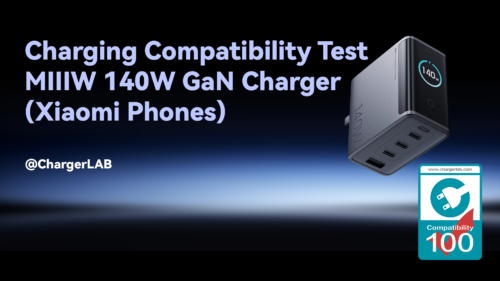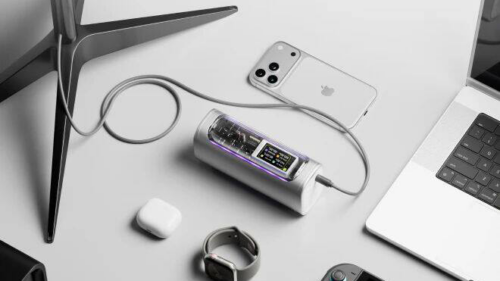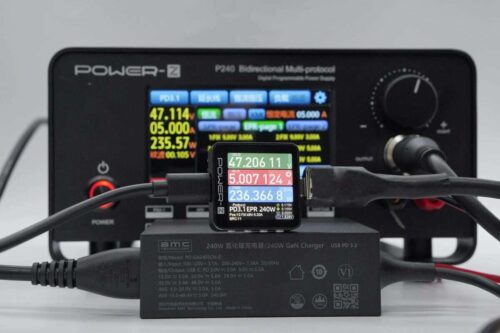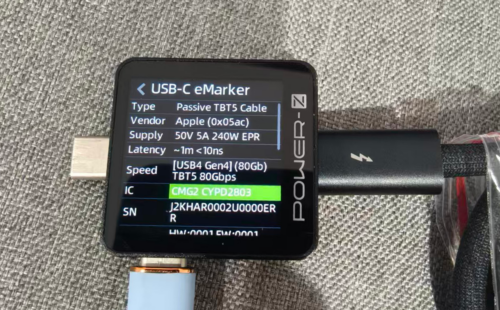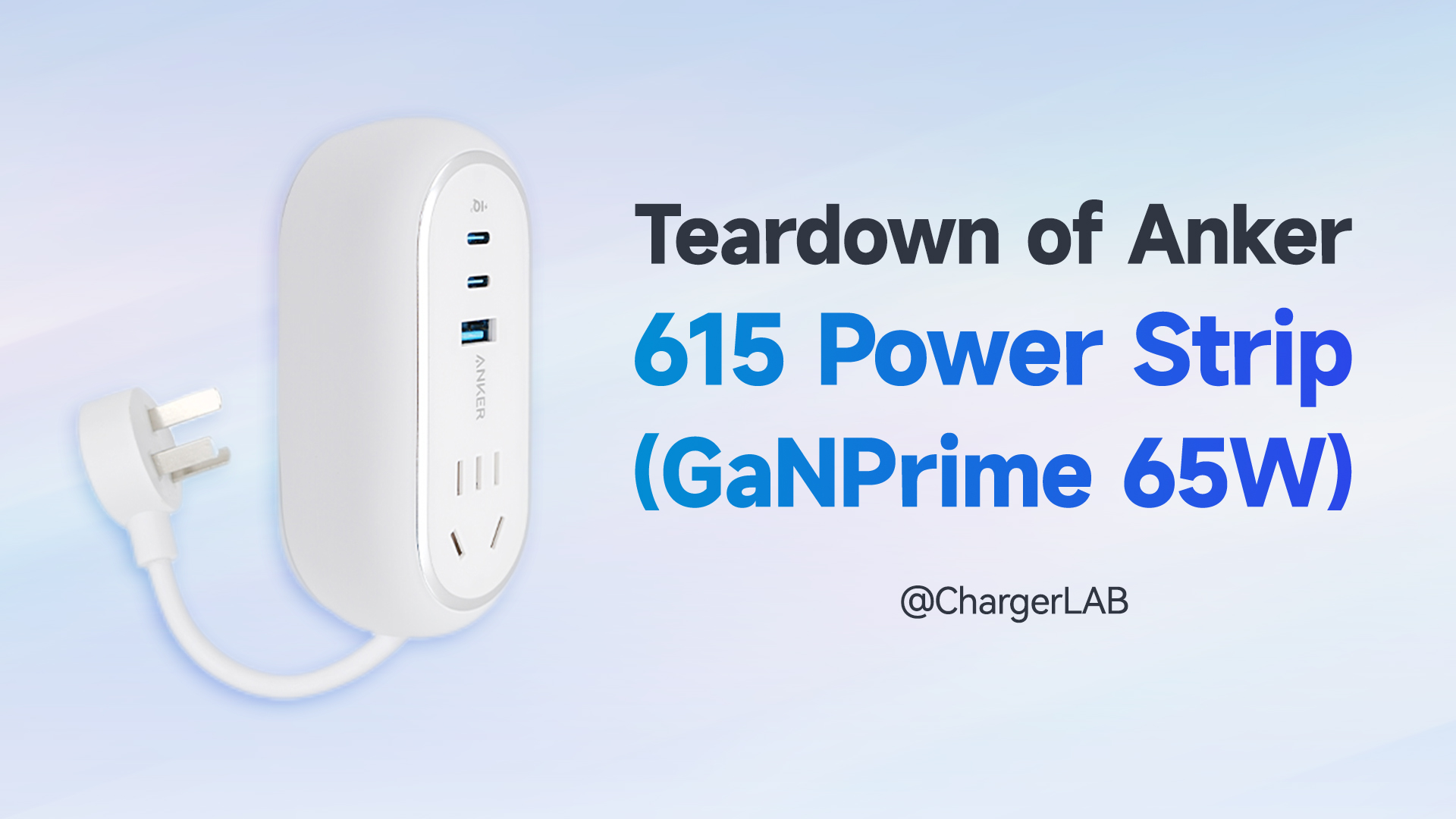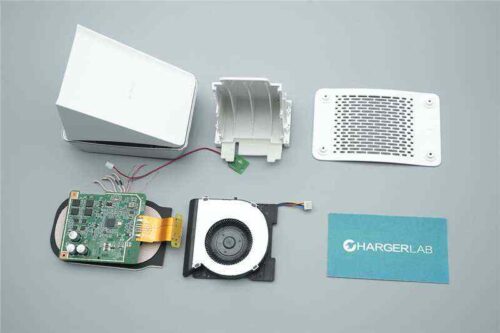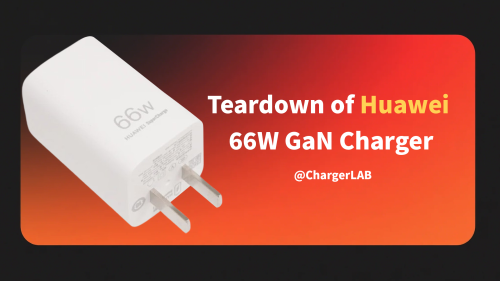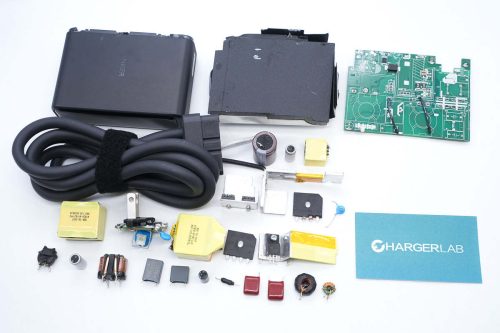Introduction
Momax, a well-known brand, has introduced a 45W GaN 3-in-1 power bank that can function either as a wall charger or as a portable battery, depending on the scenario. It features a built-in retractable USB-C cable, eliminating the need to carry an extra cable and allowing it to automatically retract for convenient storage. The device is elegantly designed and equipped with an intelligent display that shows remaining battery level, real-time charging power for each port, and temperature information. Built on a GaN-based architecture, it offers high efficiency and compact performance. Let’s dive into the internal design and build quality of this product.
Product Appearance
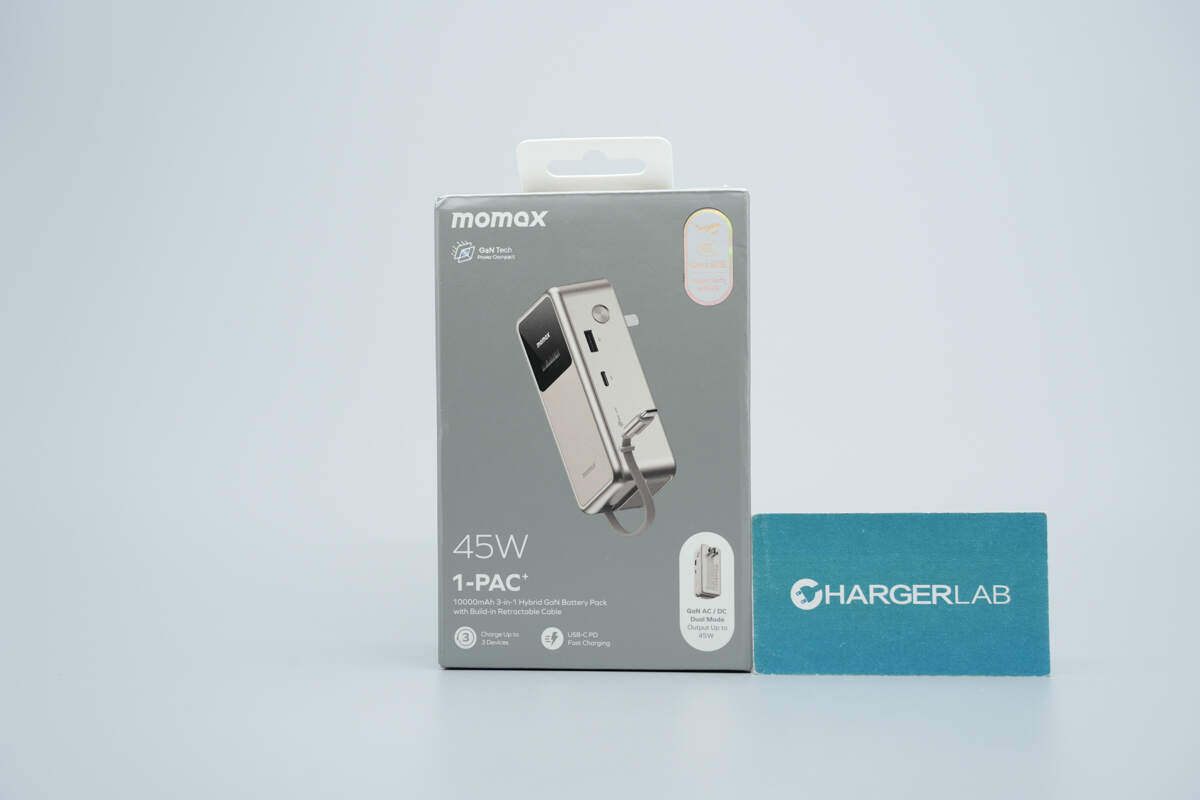
The front of the packaging box features the MOMAX logo, the product image, its name, and key selling points.
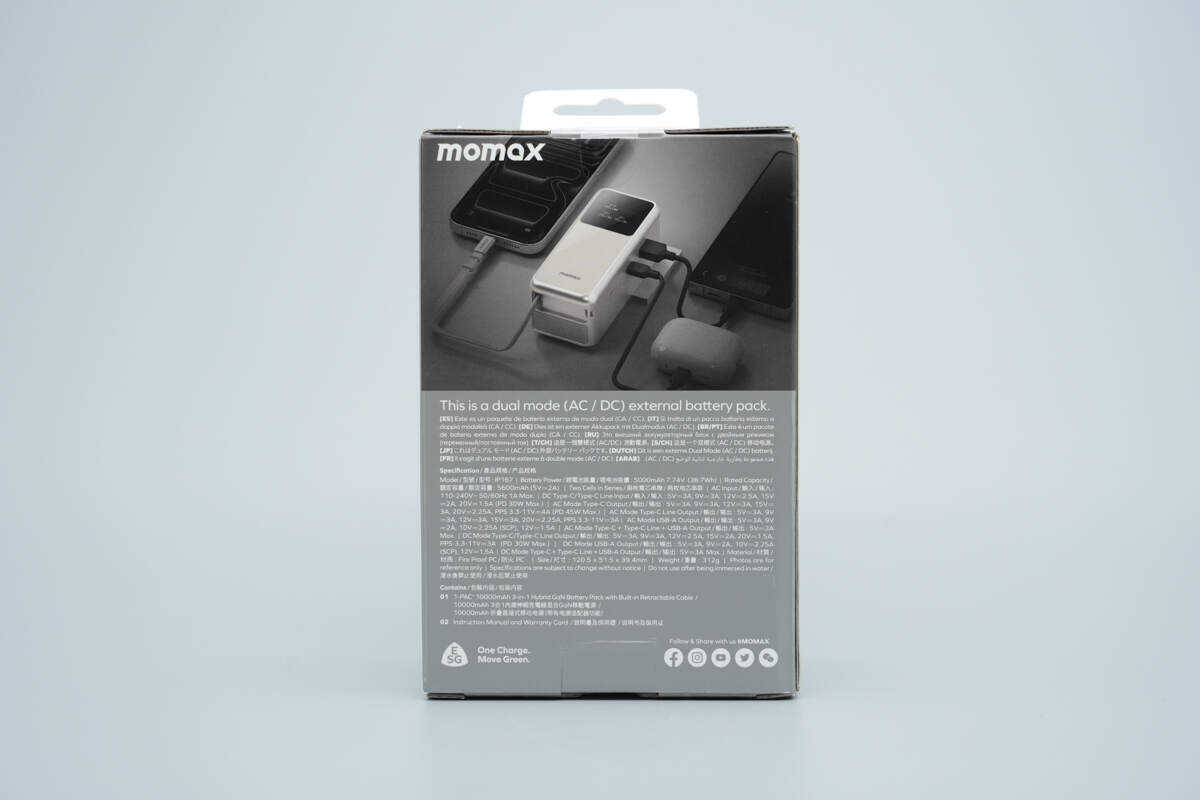
The back of the box shows usage scenarios along with the product’s specifications.
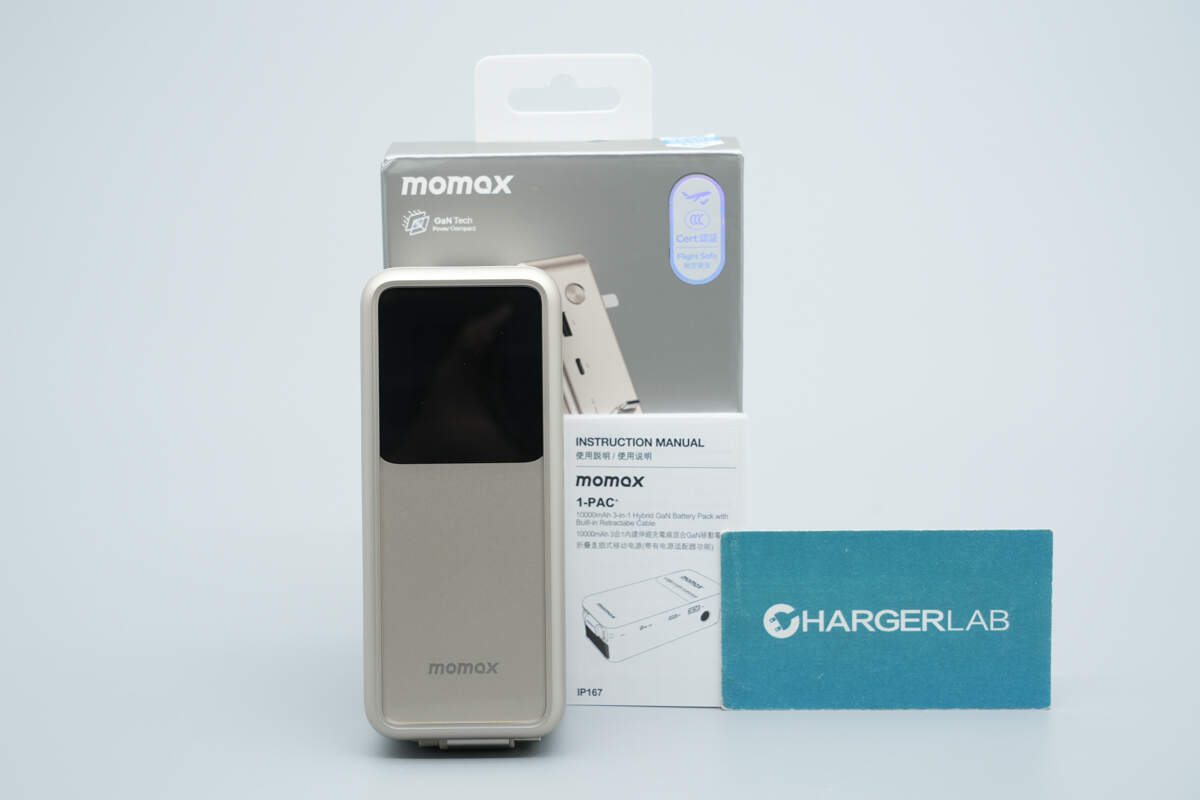
The package includes the power bank and a user manual.

The enclosure is made of flame-retardant PC material with smoothly rounded edges and a metallic-painted surface.
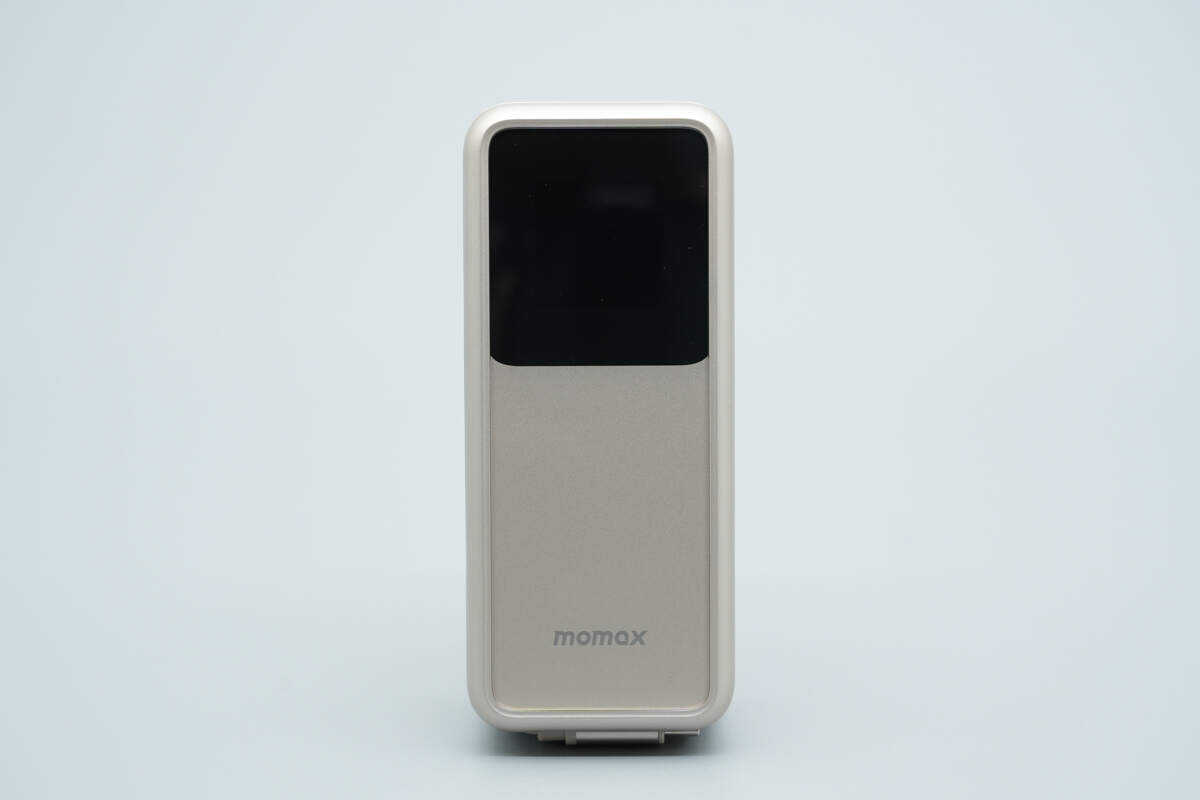
A digital display is positioned at the top, and the MOMAX logo is printed below it.
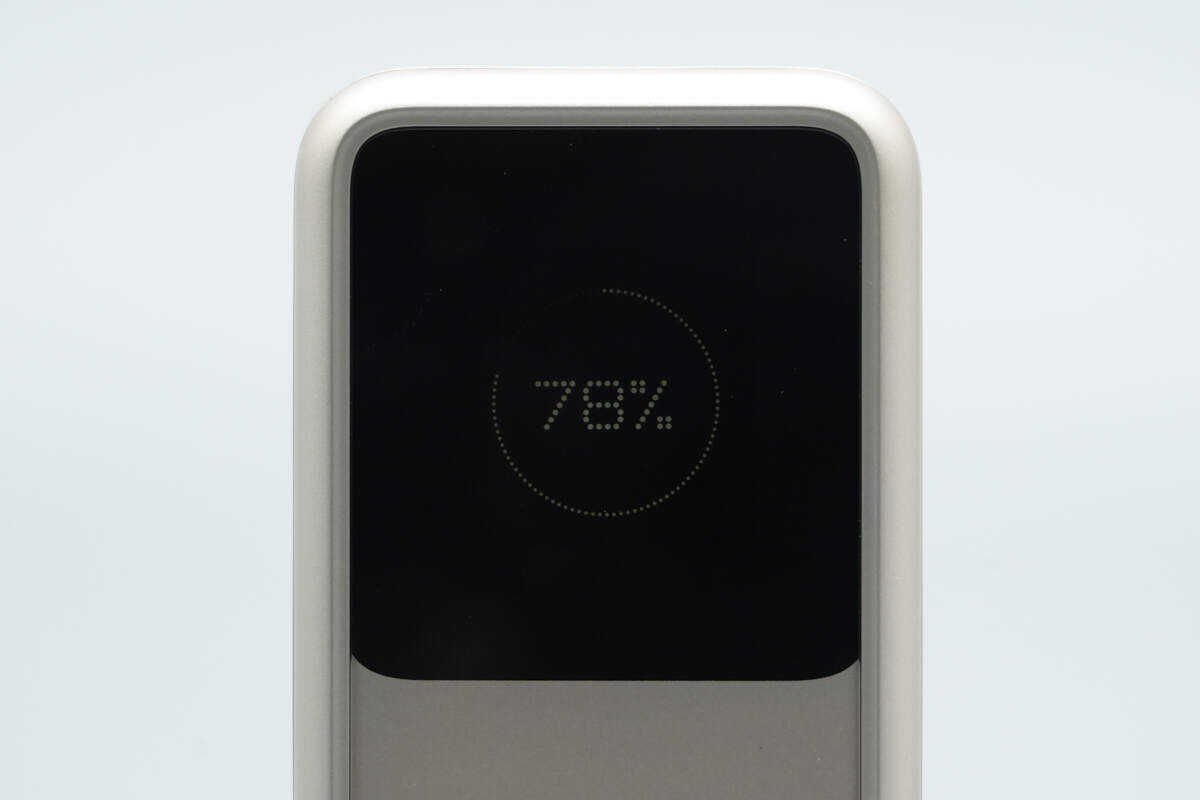
The digital display shows the remaining battery level.
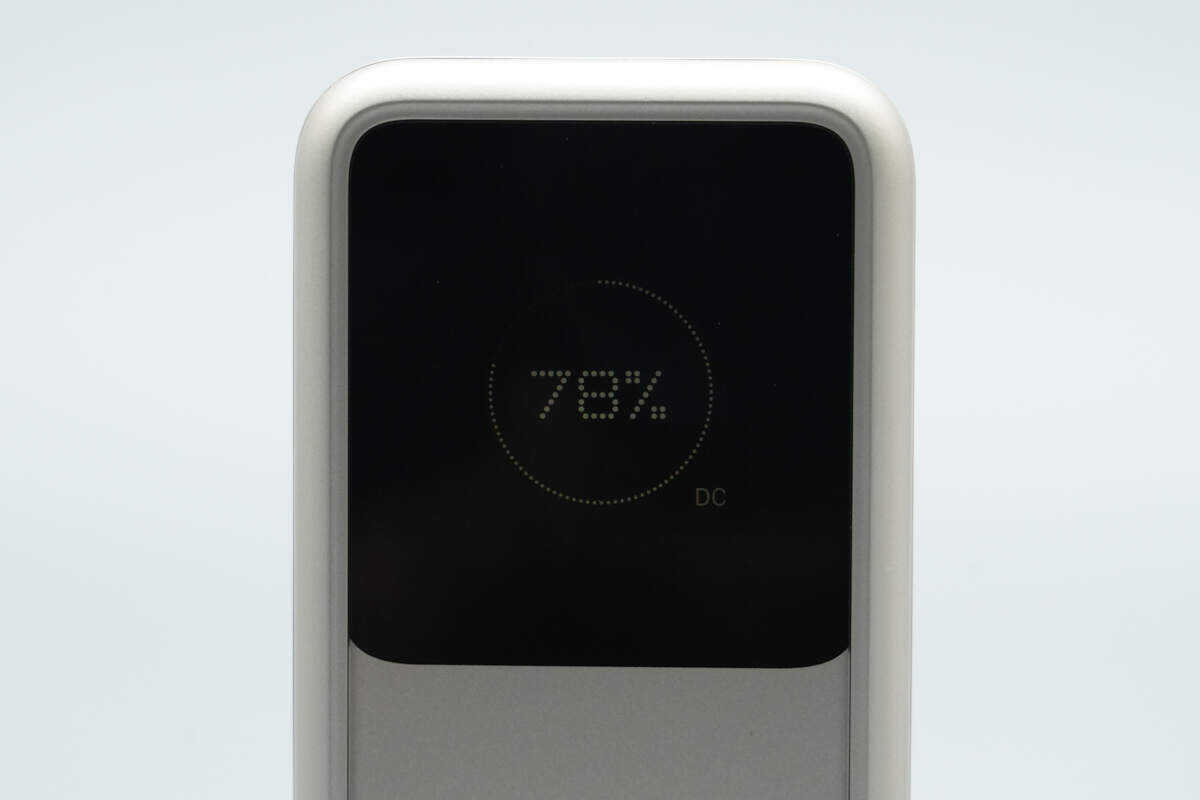
In power bank mode, a DC indicator appears at the bottom right corner.
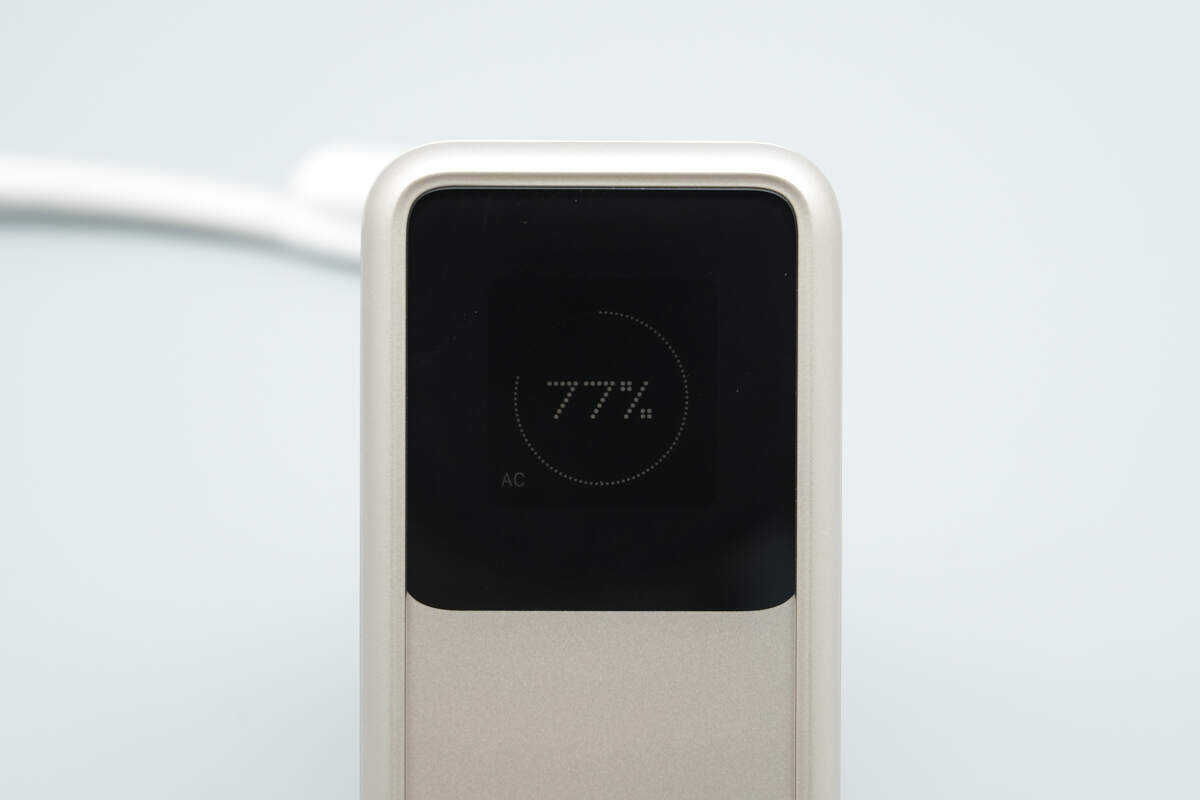
In charger mode, an AC indicator appears at the bottom left corner.
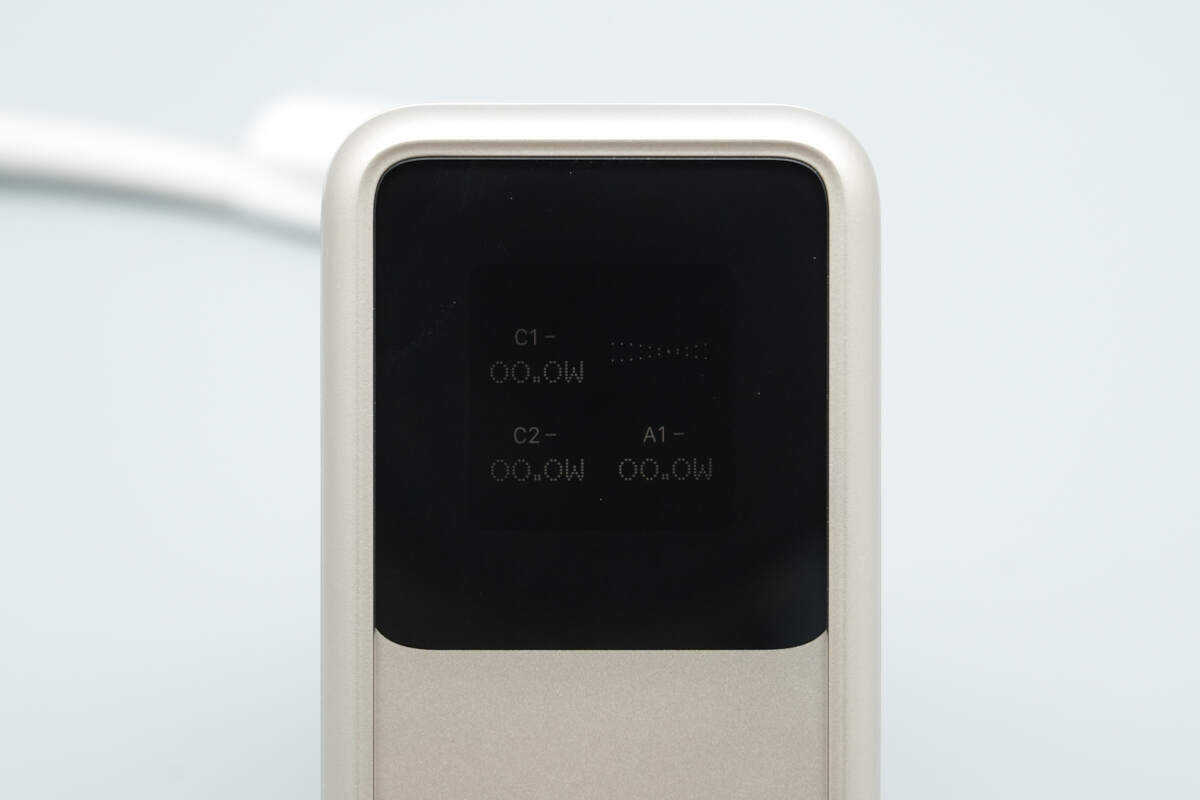
In both modes, the display shows the status and power output of each port.
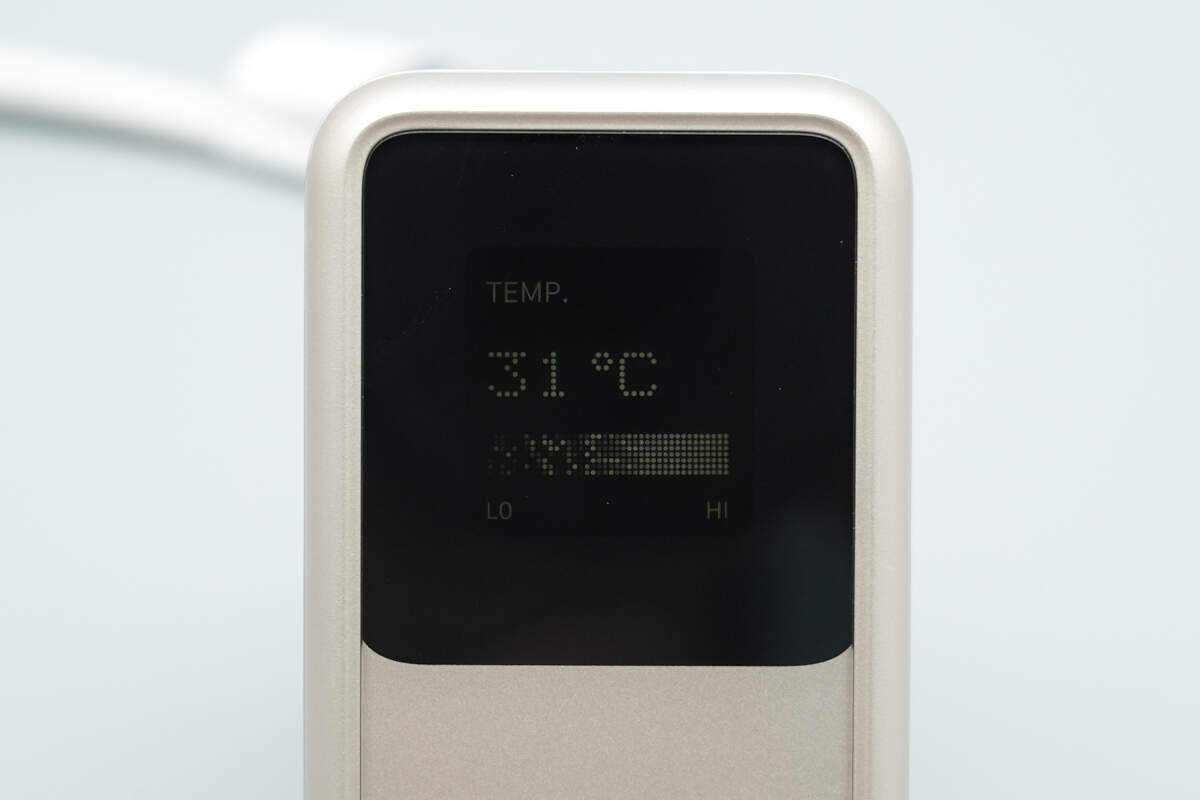
It can also display the temperature.
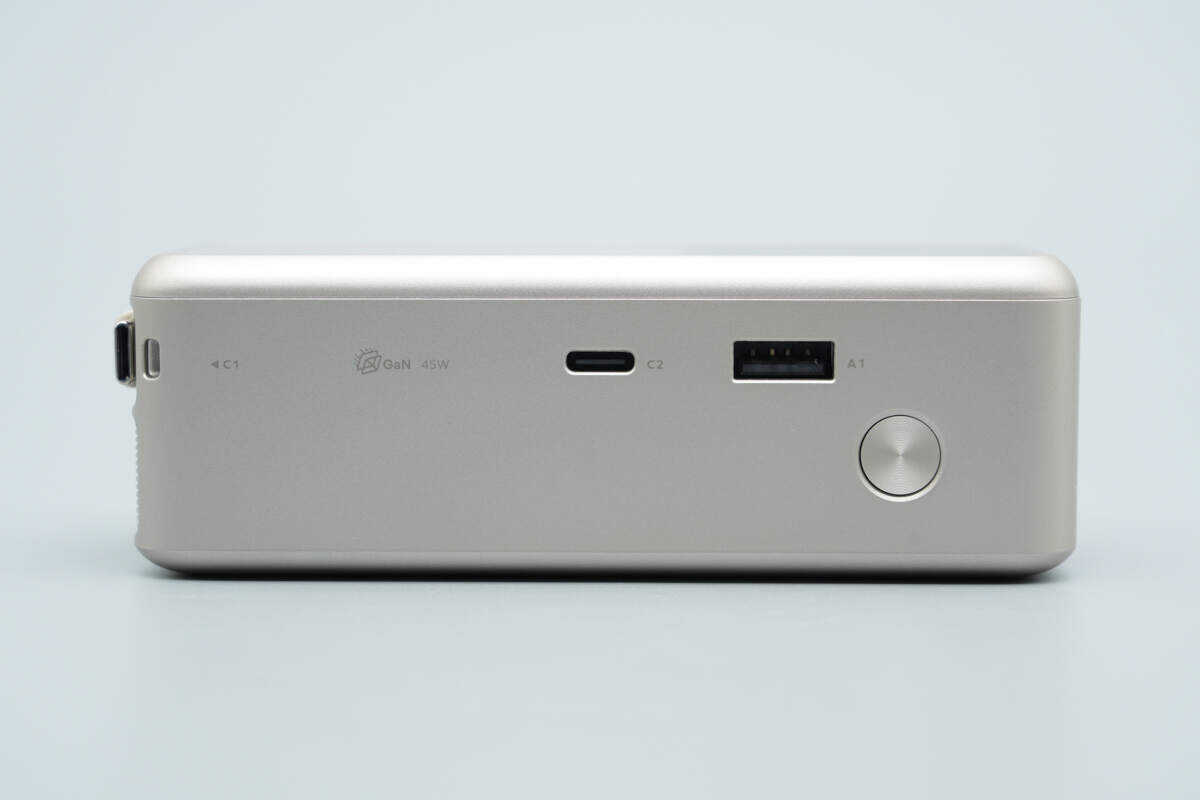
This side is equipped with a function button, as well as one USB-A port and one USB-C port.
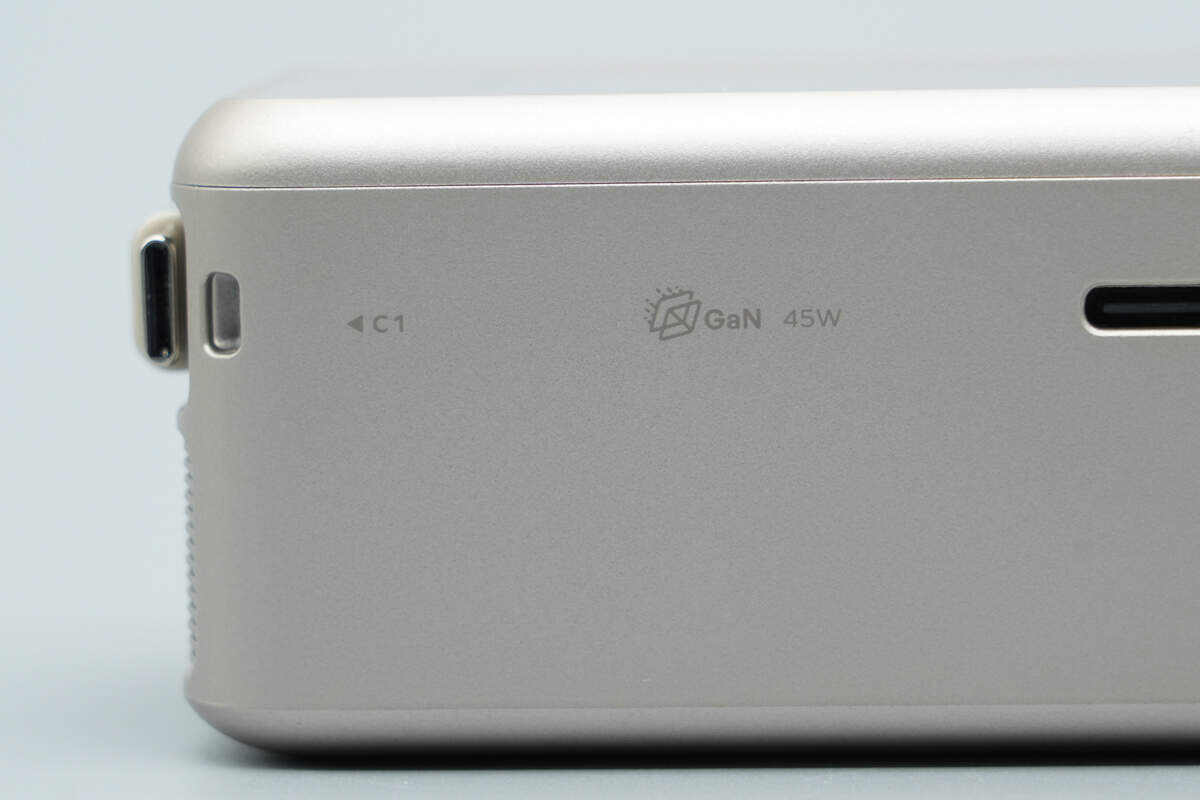
There is also a lanyard hole on the left side.
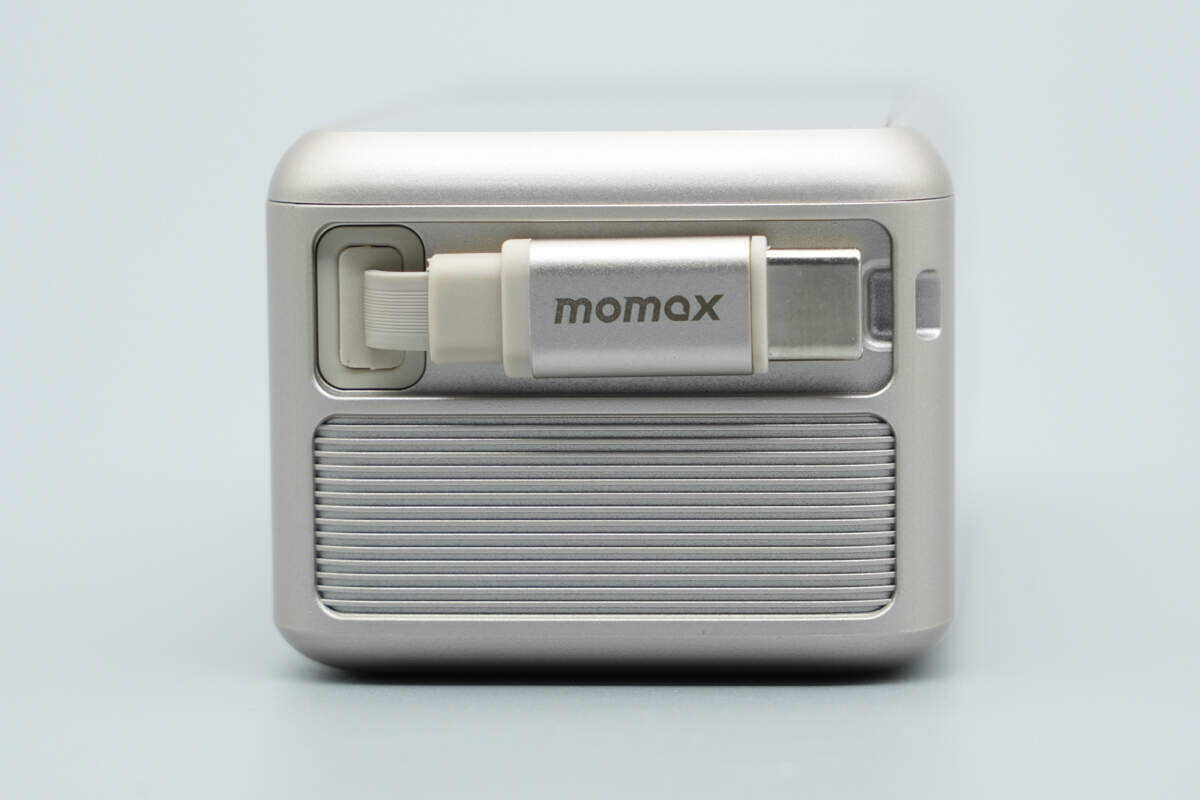
The USB-C retractable cable connector features a metal casing, and the storage slot is equipped with a magnet to hold the connector in place.

The USB-C retractable cable has a flat cable design.
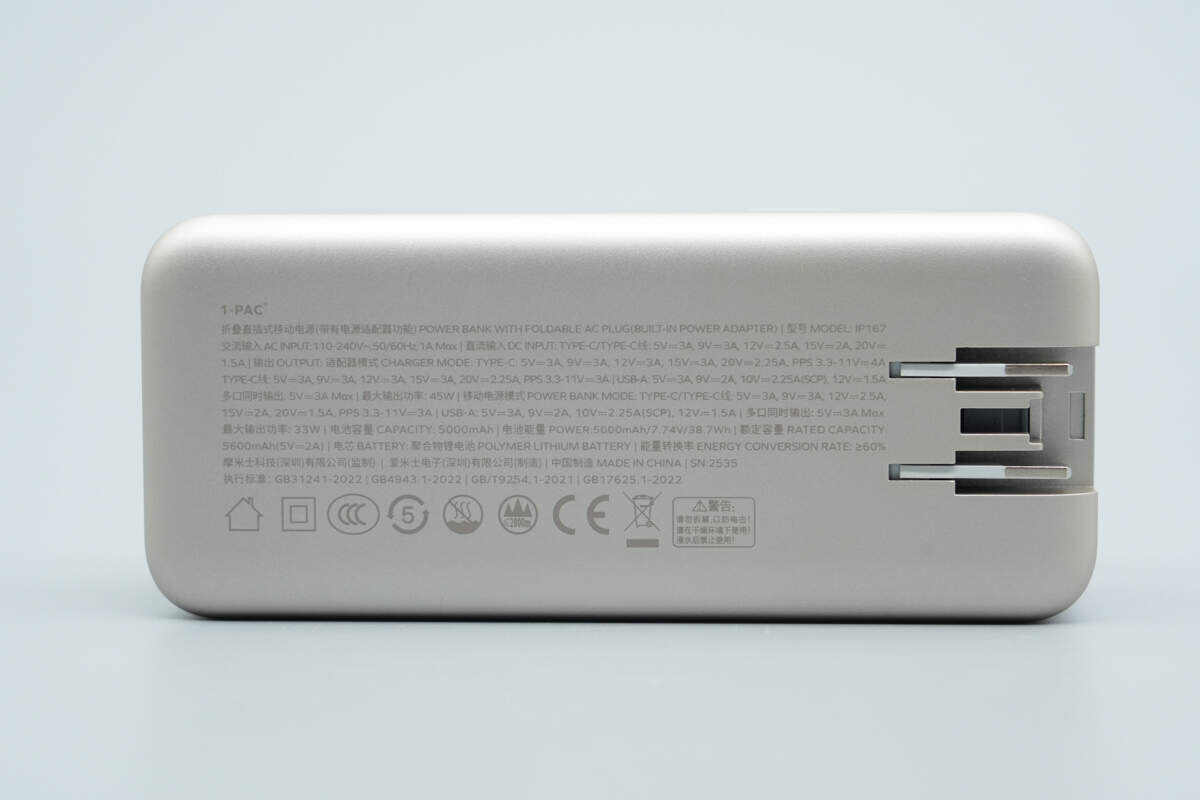
The specifications are printed on the bottom of the enclosure.
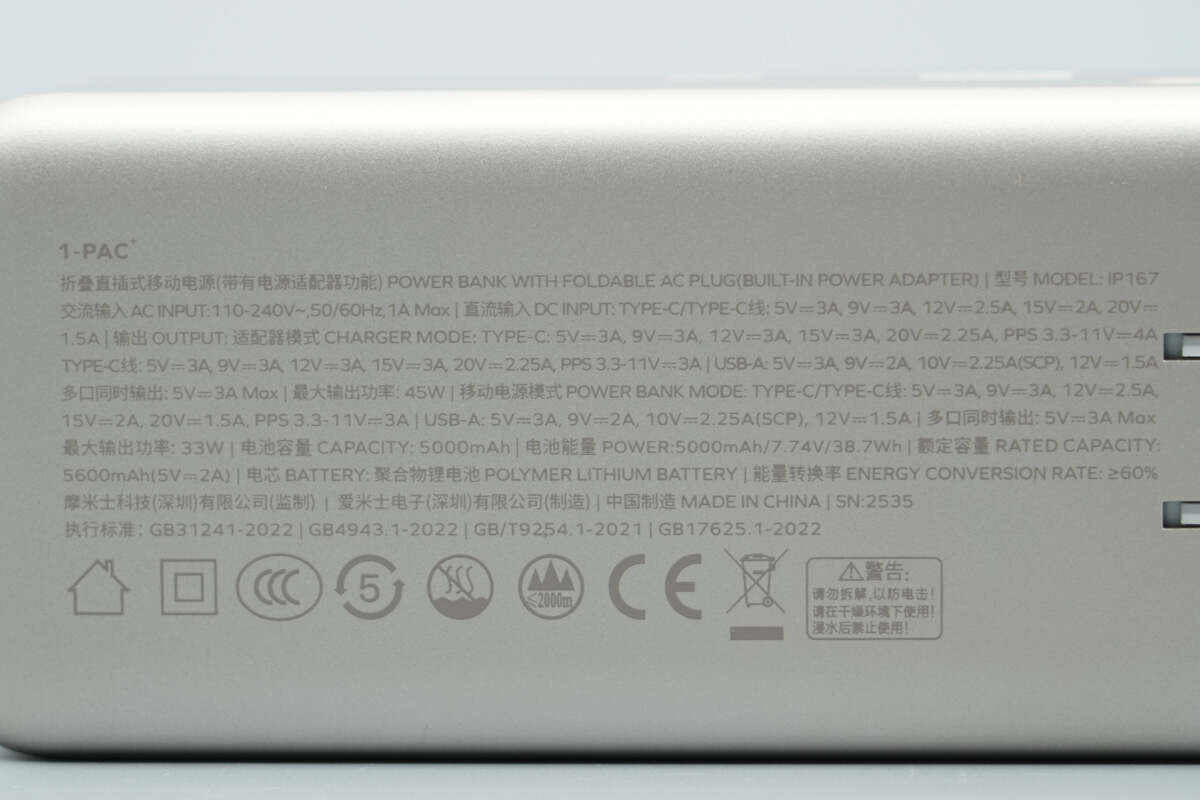
Model: IP167
AC Input: 110–240V~50/60Hz 1A Max
DC Input: USB-C / USB-C cable: 5V⎓3A, 9V⎓3A, 12V⎓2.5A, 15V⎓2A, 20V⎓1.5A
Output:
Charger Mode:
USB-C: 5V⎓3A, 9V⎓3A, 12V⎓3A, 15V⎓3A, 20V⎓2.25A, PPS 3.3–11V⎓4A
USB-C cable: 5V⎓3A, 9V⎓3A, 12V⎓3A, 15V⎓3A, 20V⎓2.25A, PPS 3.3–11V⎓3A
USB-A: 5V⎓3A, 9V⎓2A, 10V⎓2.25A (SCP), 12V⎓1.5A
Multi-port simultaneous output: 5V⎓3A Max
Maximum output power: 45W
Power Bank Mode:
USB-C / USB-C cable: 5V⎓3A, 9V⎓3A, 12V⎓2.5A, 15V⎓2A, 20V⎓1.5A, PPS 3.3–11V⎓3A
USB-A: 5V⎓3A, 9V⎓2A, 10V⎓2.25A (SCP), 12V⎓1.5A
Multi-port simultaneous output: 5V⎓3A Max
Maximum output power: 33W
Battery Capacity: 5000mAh
Battery Energy: 5000mAh / 7.74V / 38.7Wh
Rated Capacity: 5600mAh (5V⎓2A)
Battery Type: Polymer lithium battery
Energy Conversion Efficiency: ≥60%
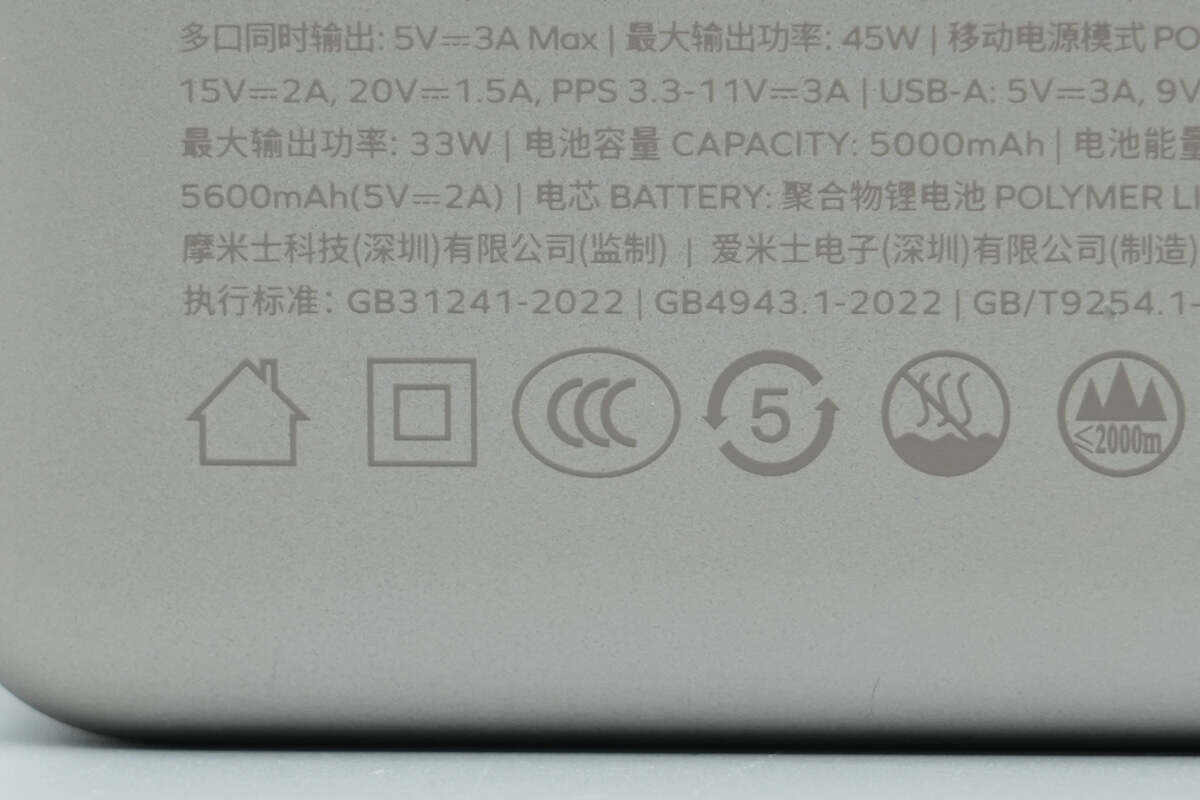
It has obtained both CCC and CE certifications.
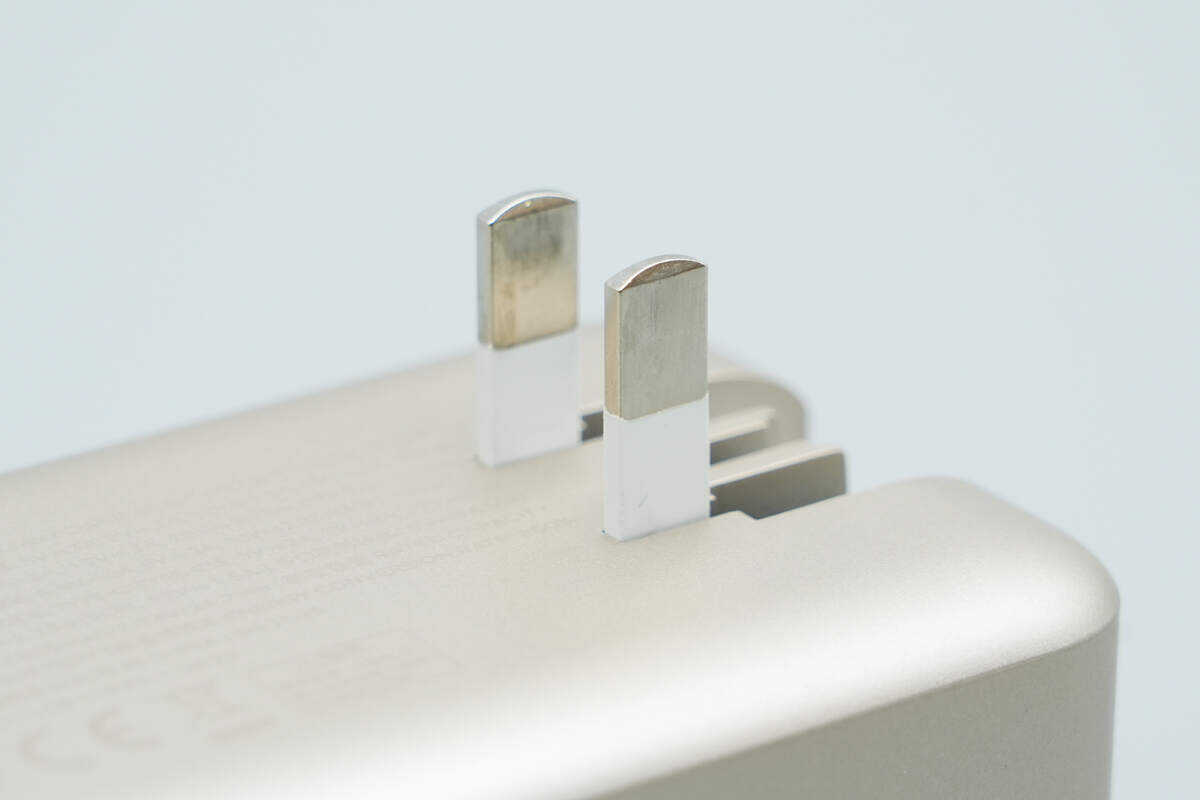
It is equipped with foldable plug pins.
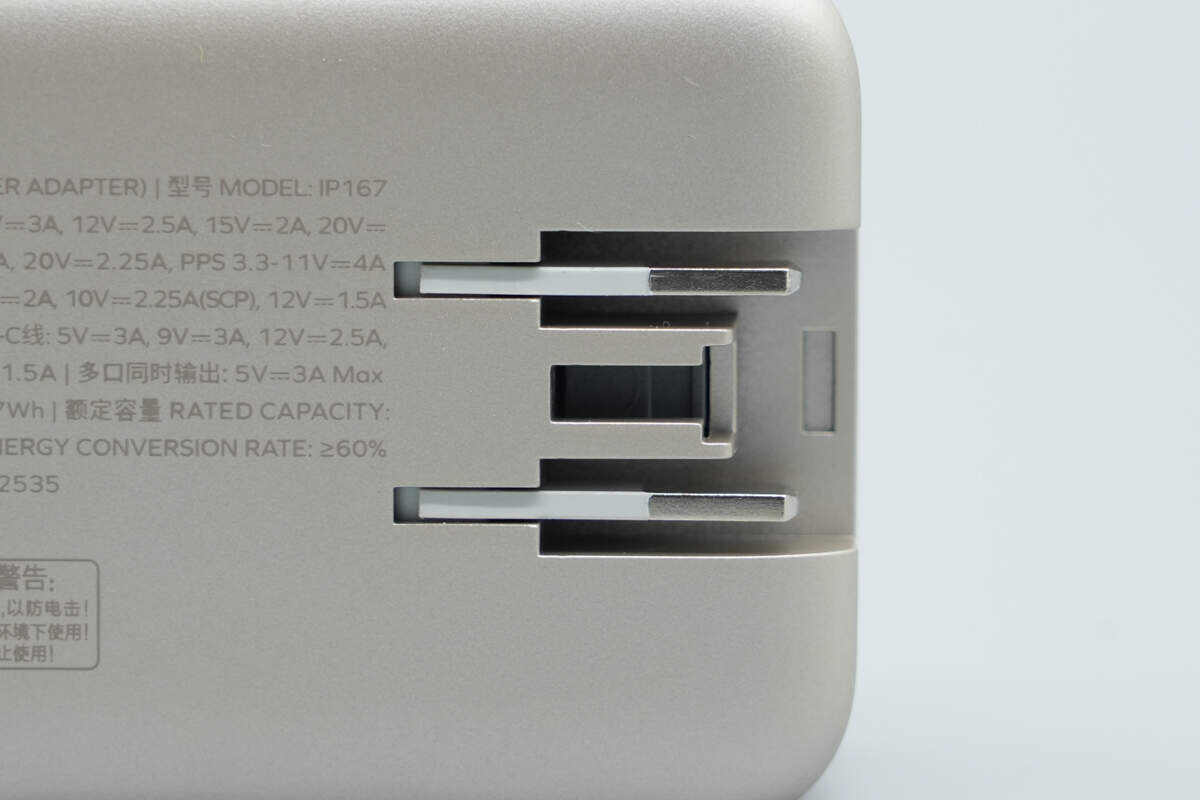
The plug housing features a modular design, allowing different types of plug pins to be assembled for wider compatibility.
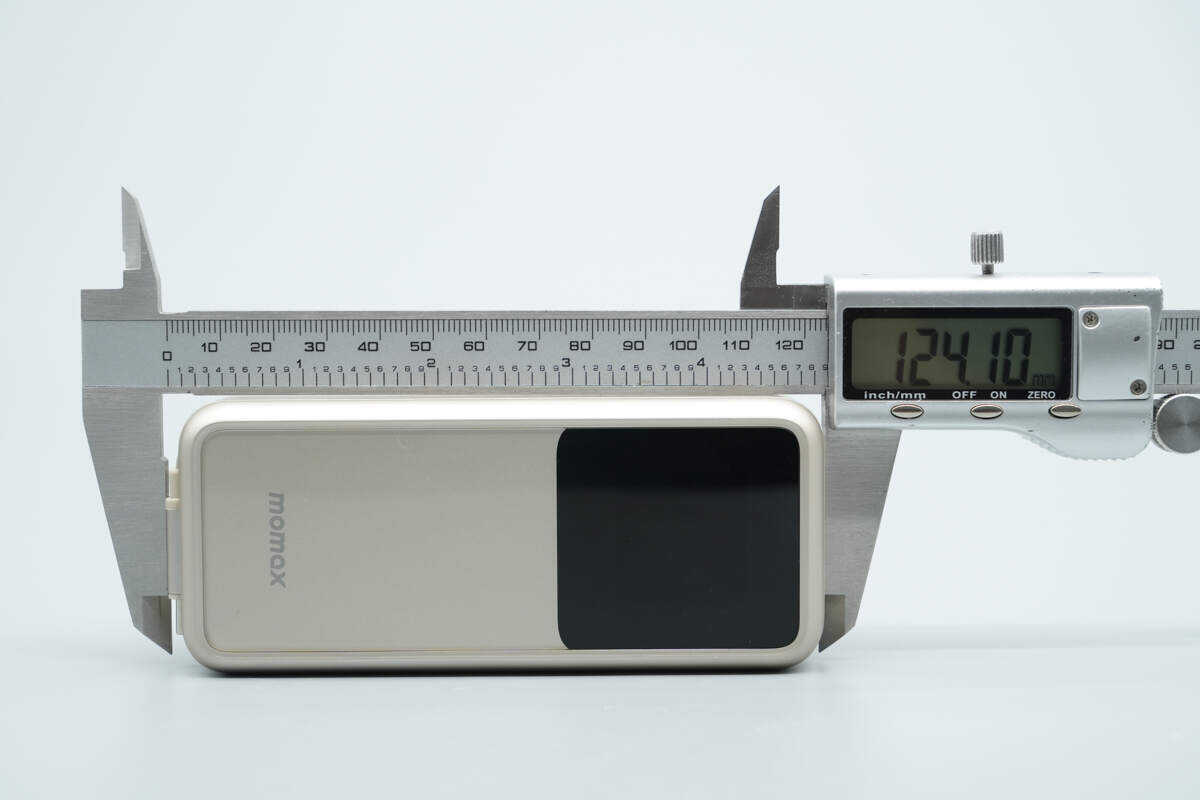
The length is about 124.1 mm (4.89 inches).
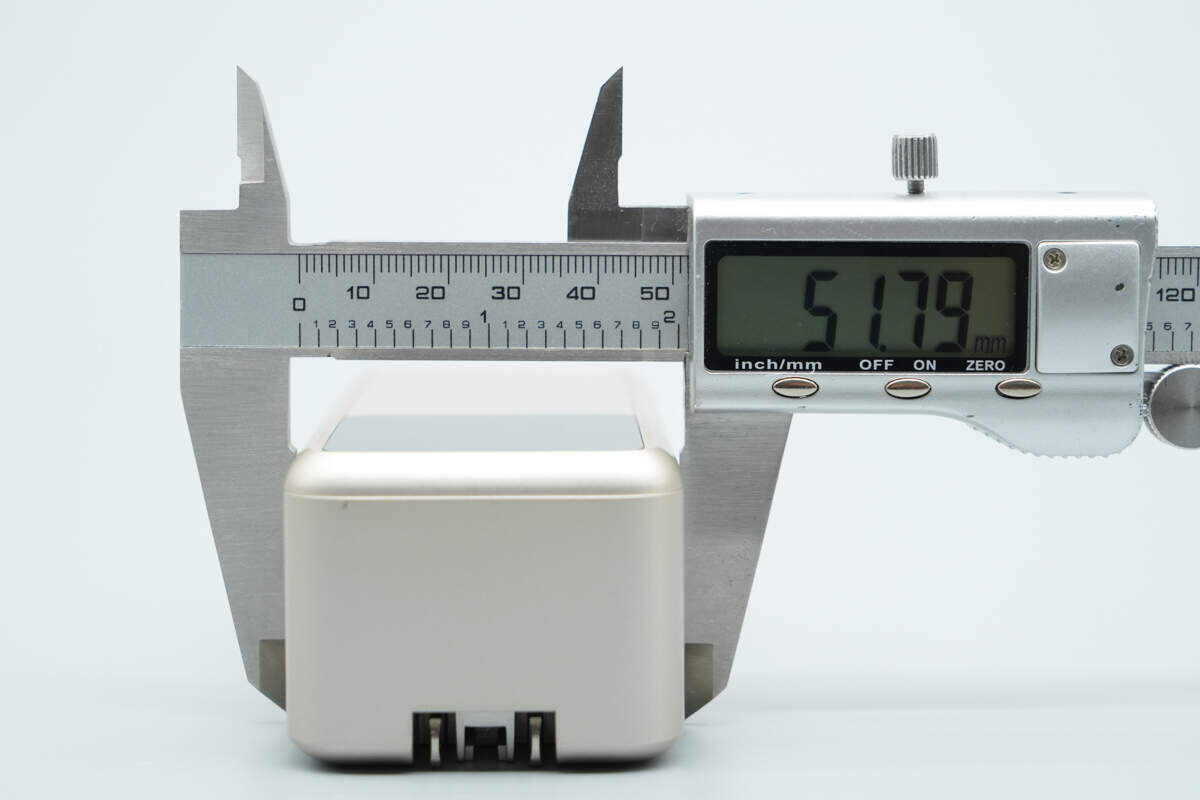
The width is about 51.79 mm (2.039 inches).
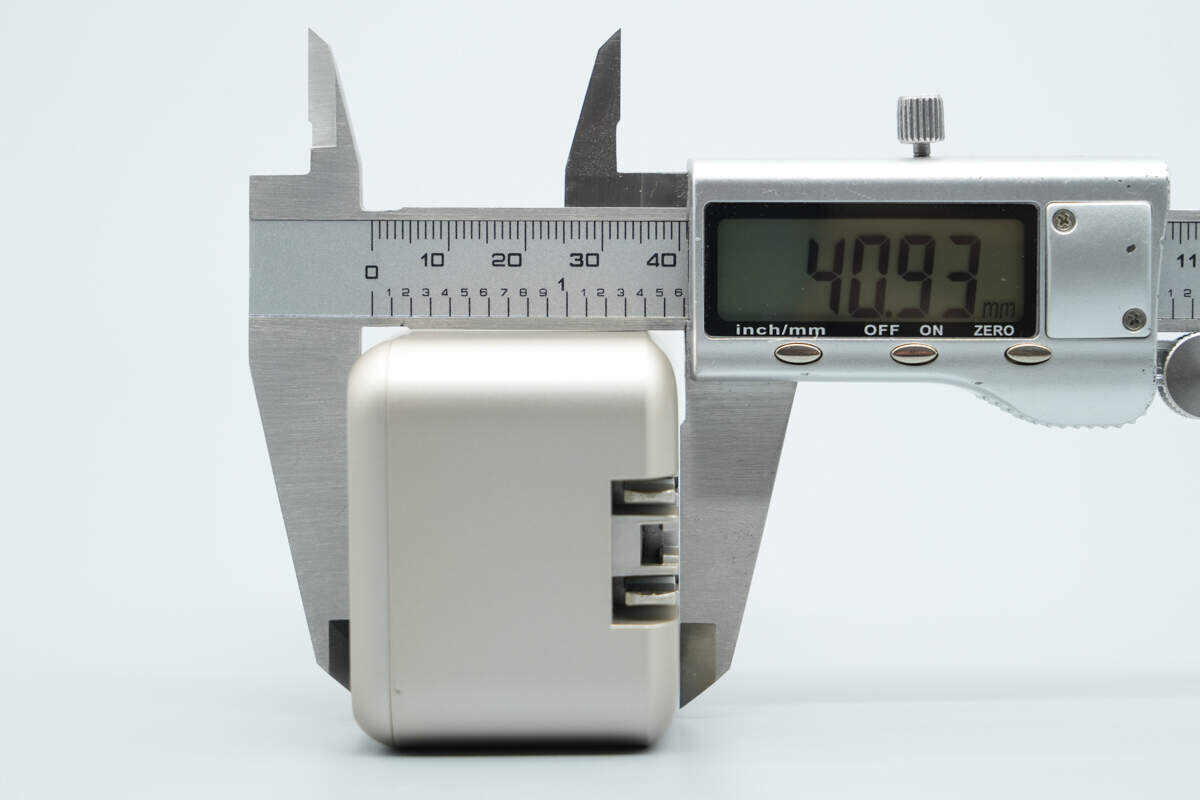
The thickness is about 40.93 mm (1.61 inches).
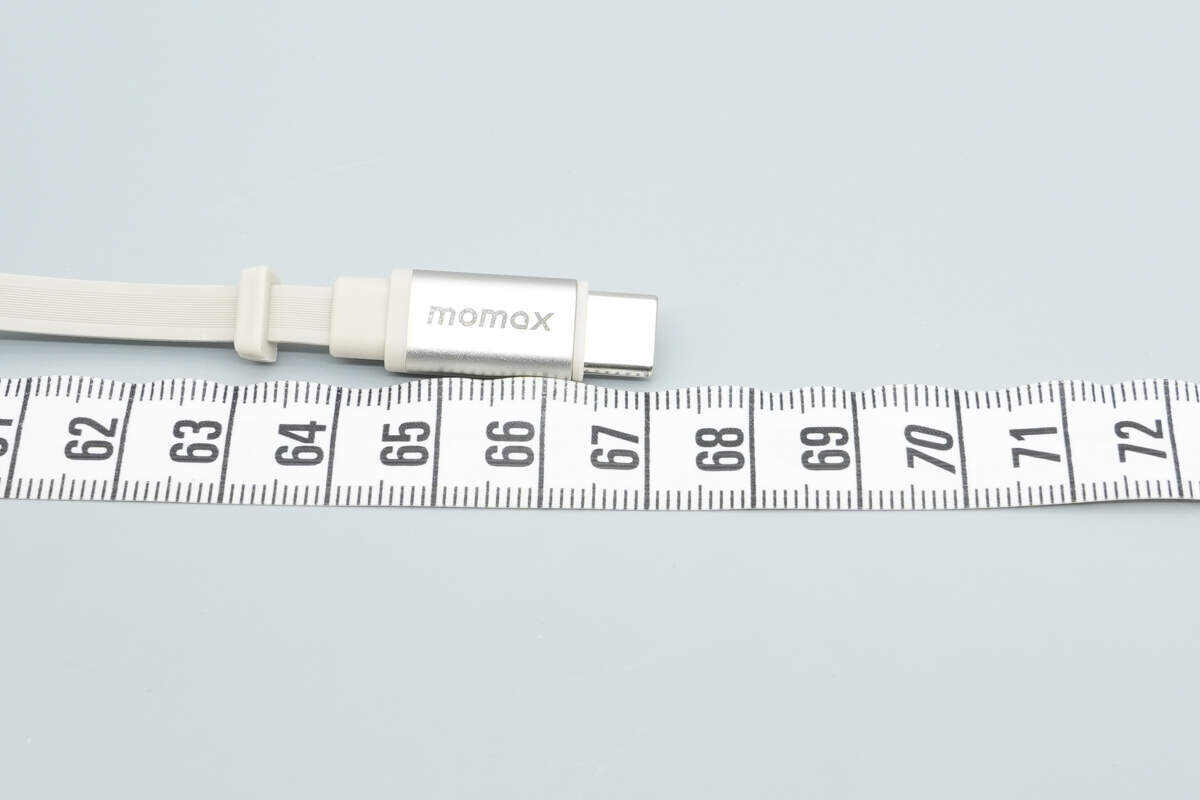
The length of the cable is about 67 cm (26.38 inches).

That's how big it is in the hand.
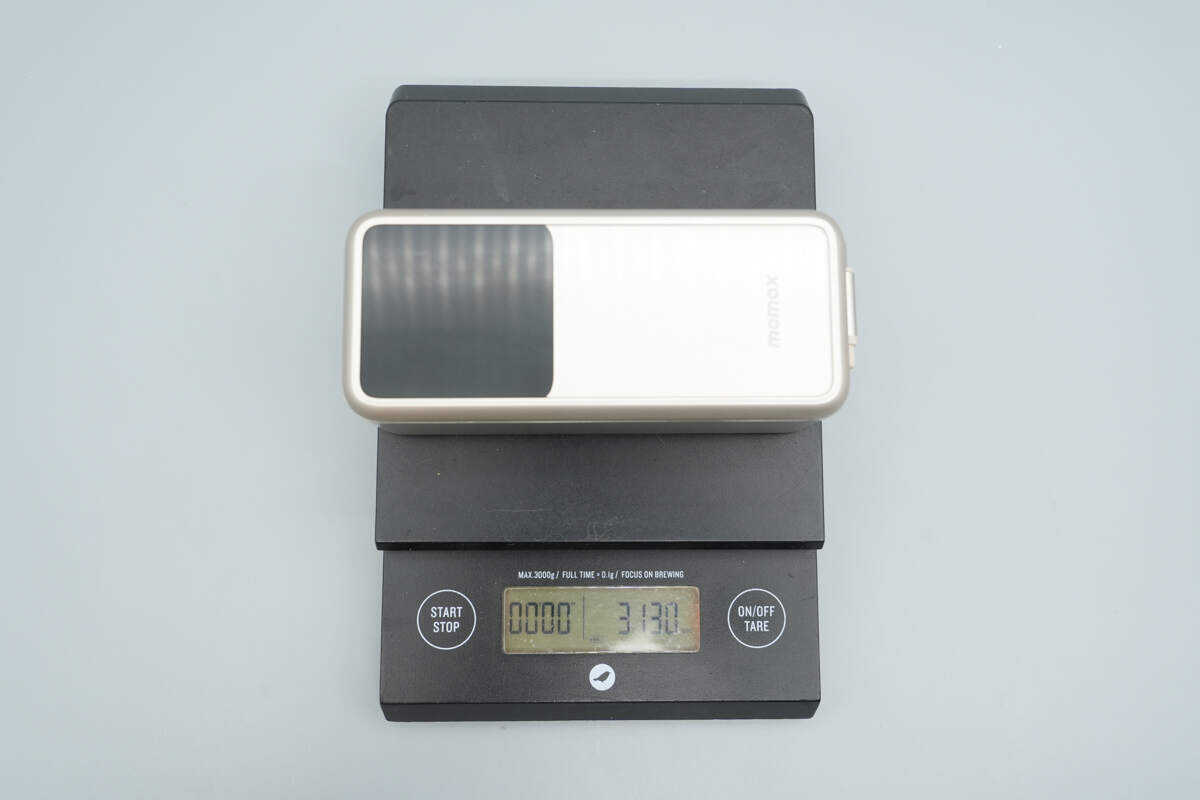
The weight is about 313 g (11.041 oz).
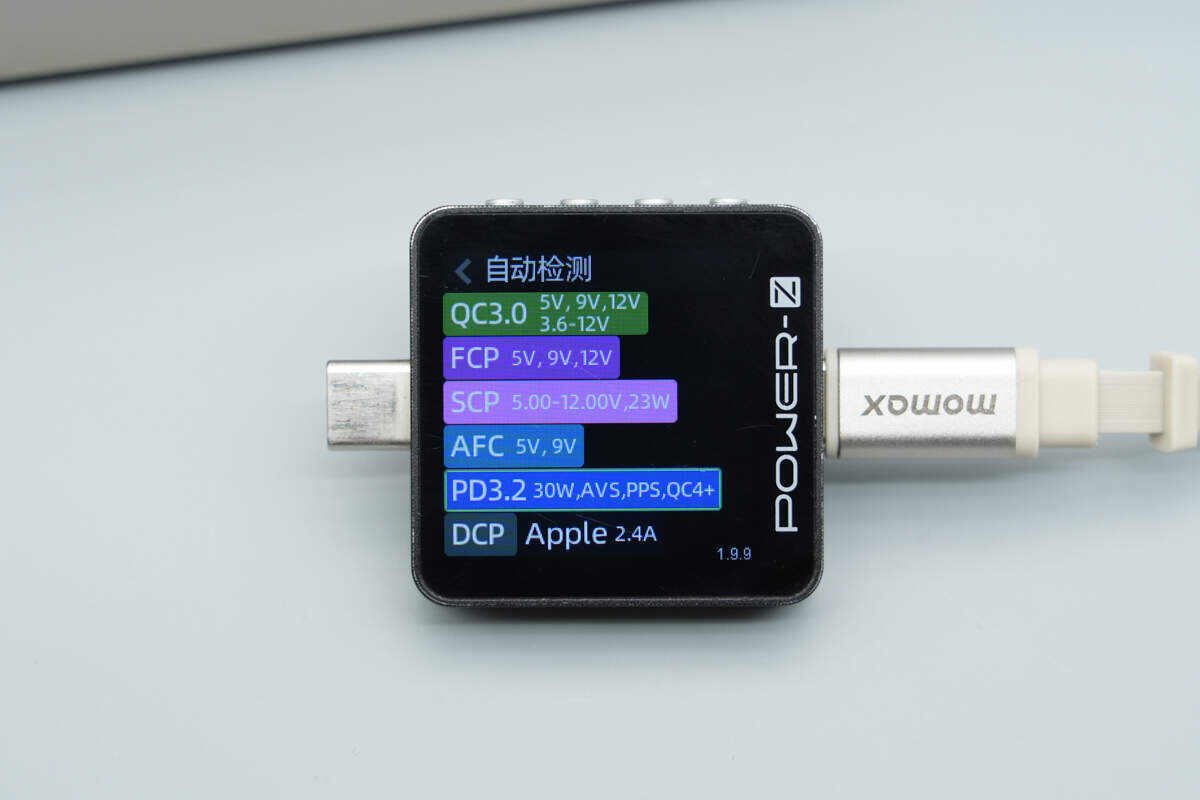
In power bank mode, the ChargerLAB POWER-Z KM003C shows that the USB-C cable supports QC3.0/4+, FCP, SCP, AFC, PD3.2, PPS, DCP, and Apple 2.4A charging protocols.
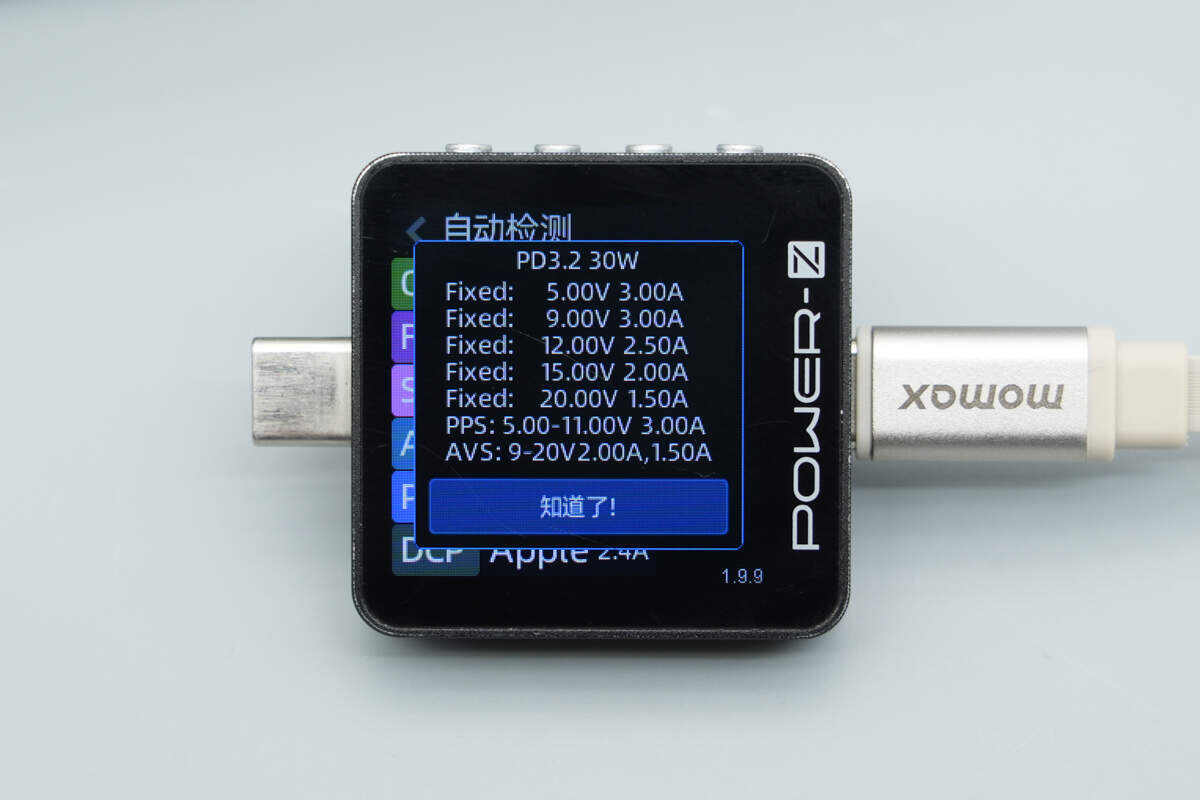
And it has five fixed PDOs of 5V3A, 9V3A, 12V2.5A, 15V2A, and 20V1.5A. It has one set of PPS, which is 5-11V3A. It also has one set of 1.5A SPR AVS, which is 9-20V2A.
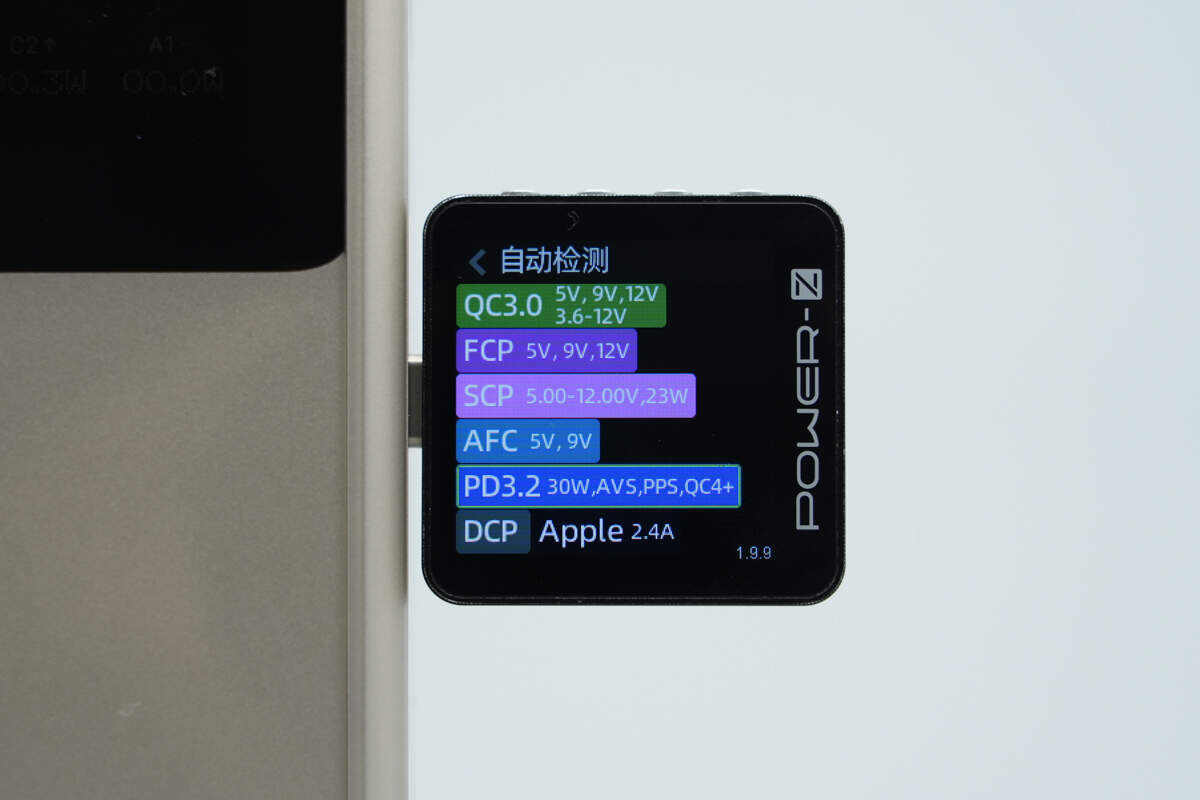
The USB-C2 port is compatible with the same protocols as the USB-C retractable cable.
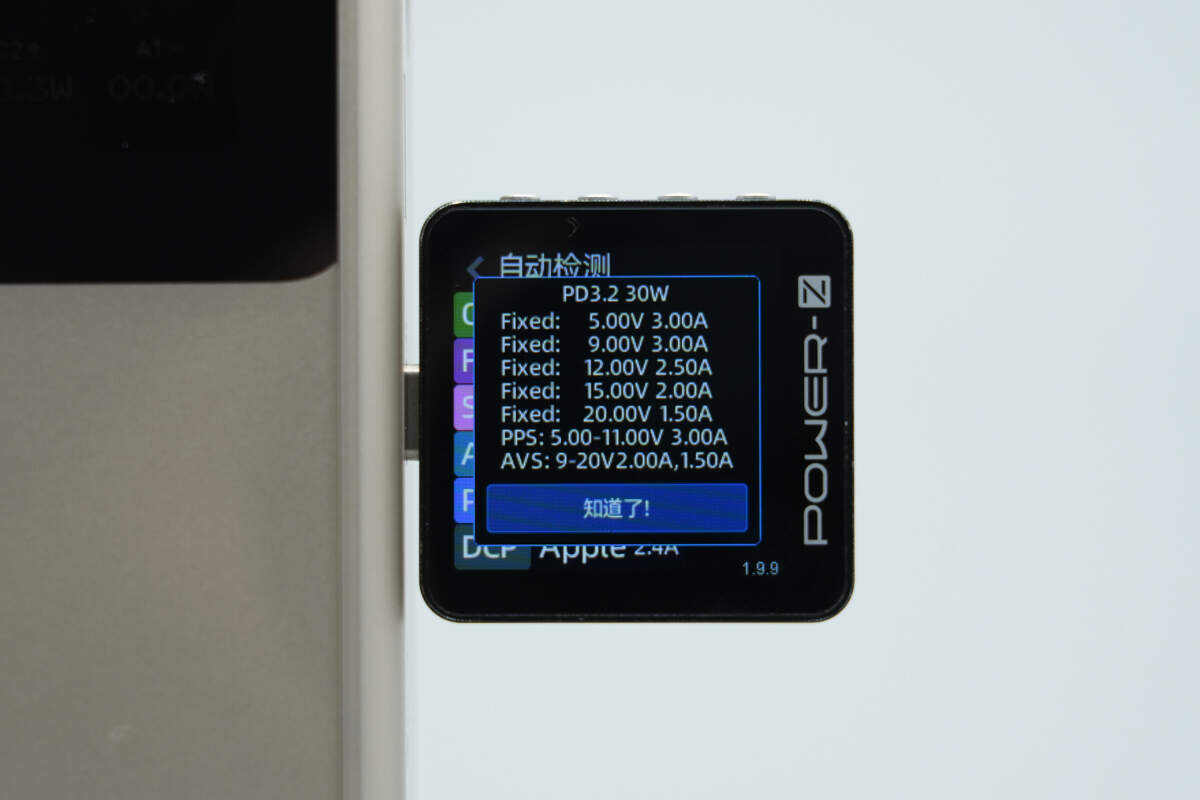
The PDO messages are also identical, meaning the output performance is the same.
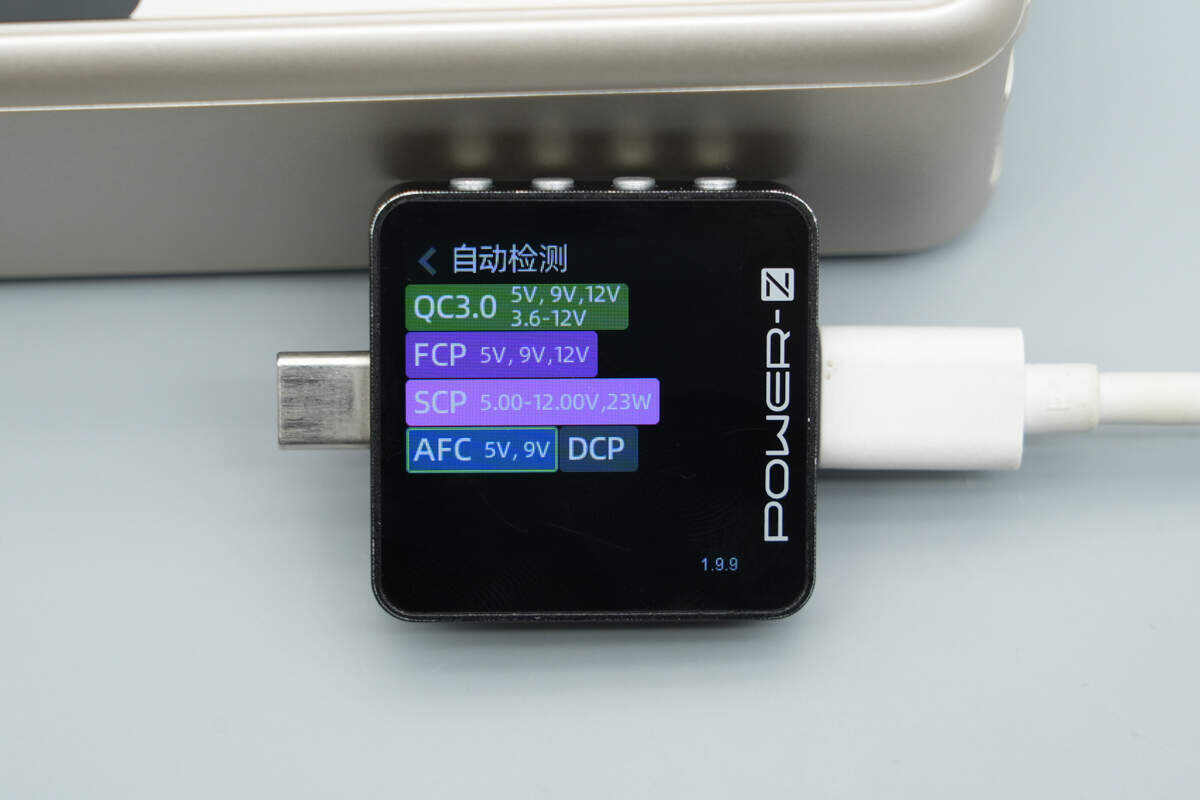
The USB-A supports QC3.0, FCP, SCP, AFC, and DCP charging protocols.

In charger mode, testing showed that the USB-C retractable cable also supports QC3.0/4+, FCP, SCP, AFC, PD3.2, PPS, DCP, and Apple 2.4A charging protocols, with the maximum PD fast charging output increased to 45W.
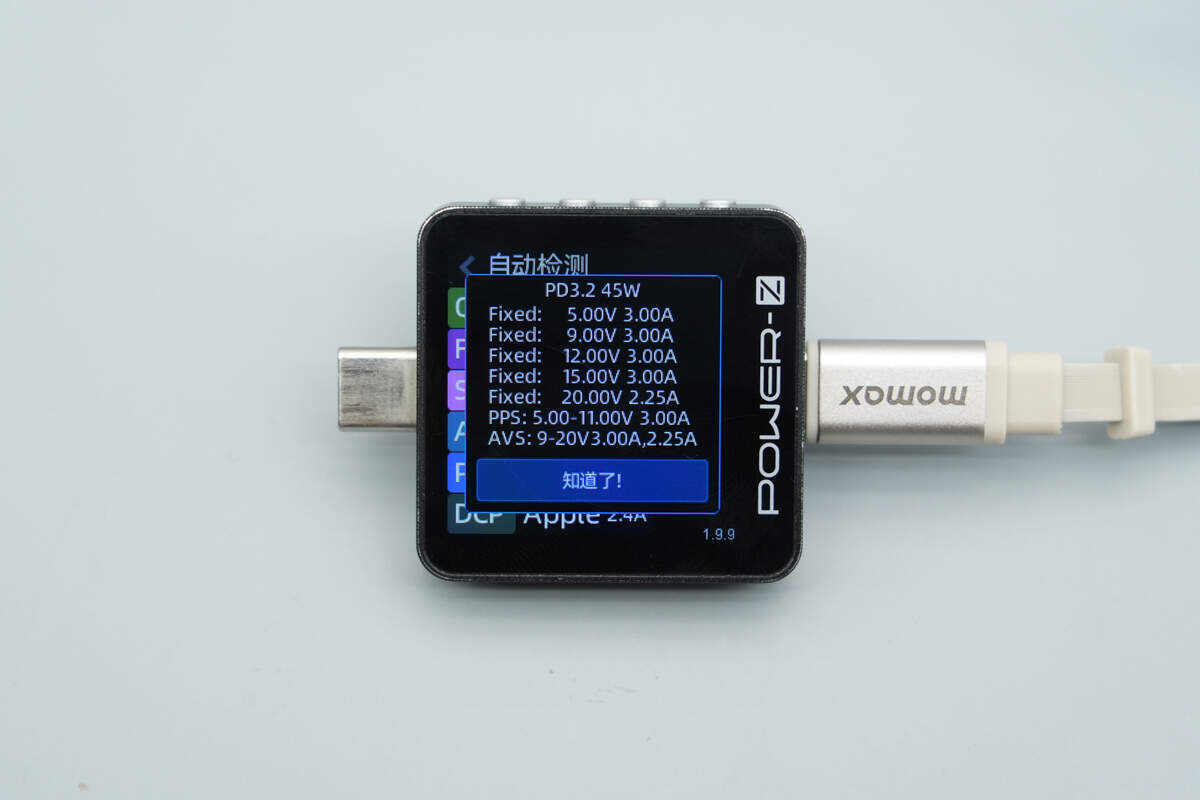
The PDO messages indicate that the USB-C retractable cable supports five fixed voltage levels: 5V 3A, 9V 3A, 12V 3A, 15V 3A, and 20V 2.25A, as well as a 5–11V 3A PPS voltage range and a 9–20V, 2.25A SPRA VS voltage range.
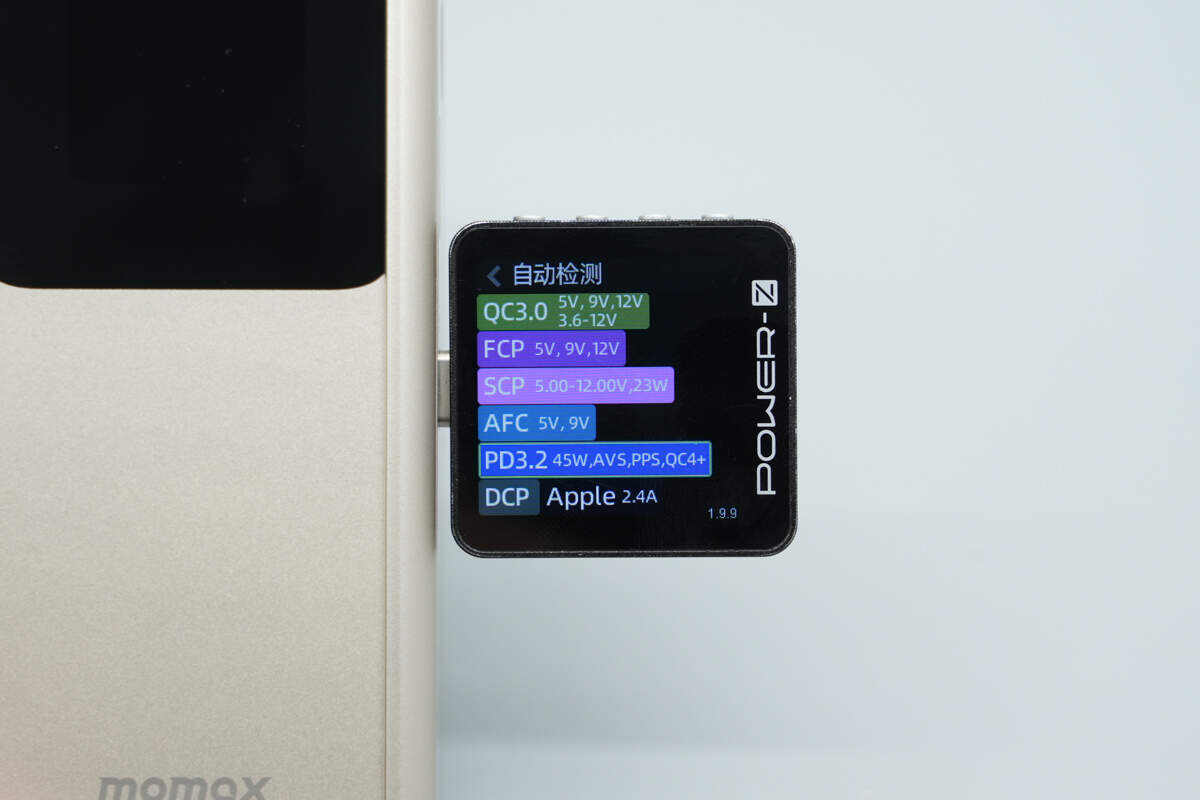
The USB-C2 port is compatible with the same protocols.
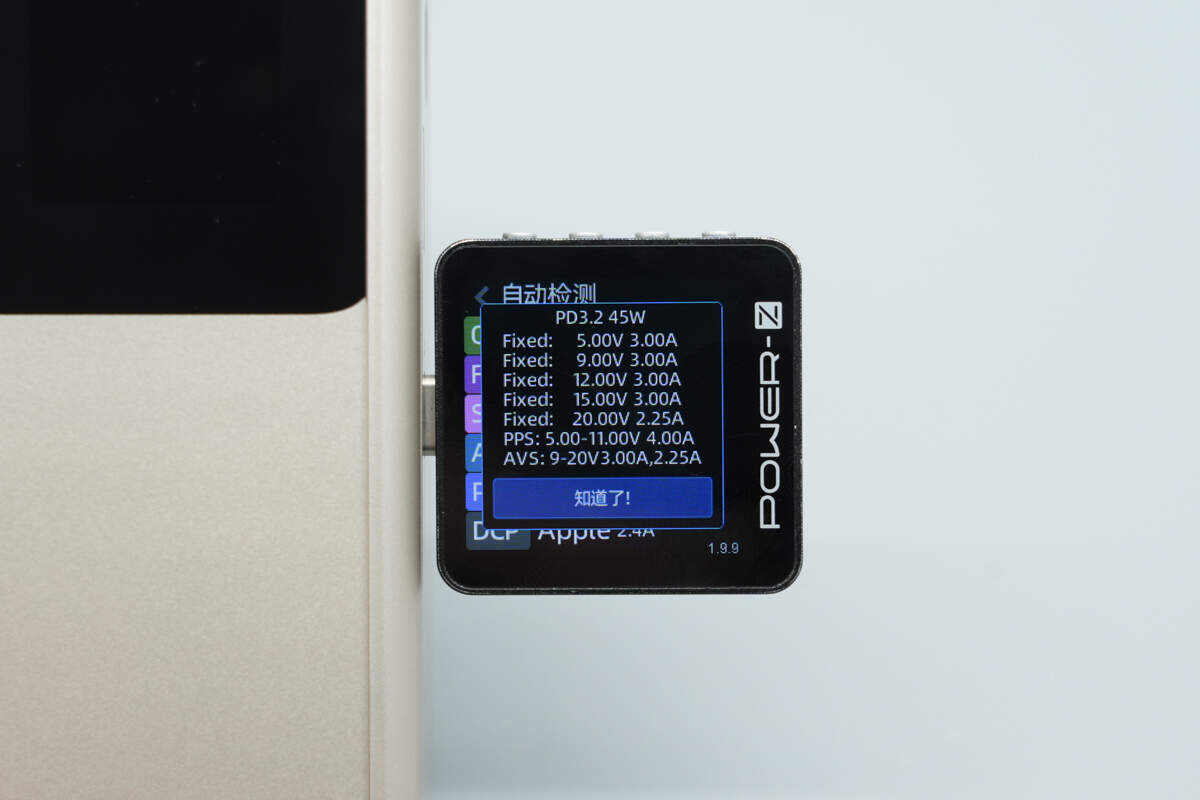
The PDO messages are also identical.
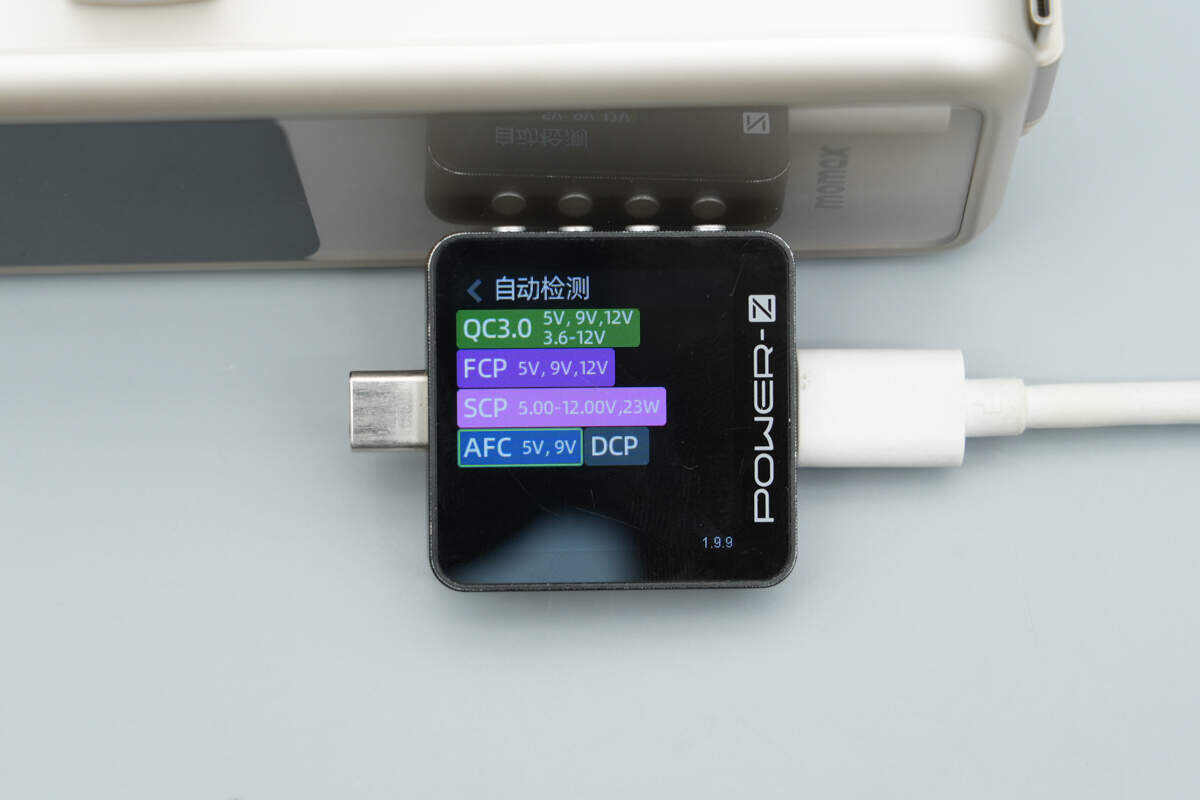
The USB-A supports QC3.0, FCP, SCP, AFC, and DCP charging protocols.
Teardown
Next, let's take it apart to see its internal components and structure.
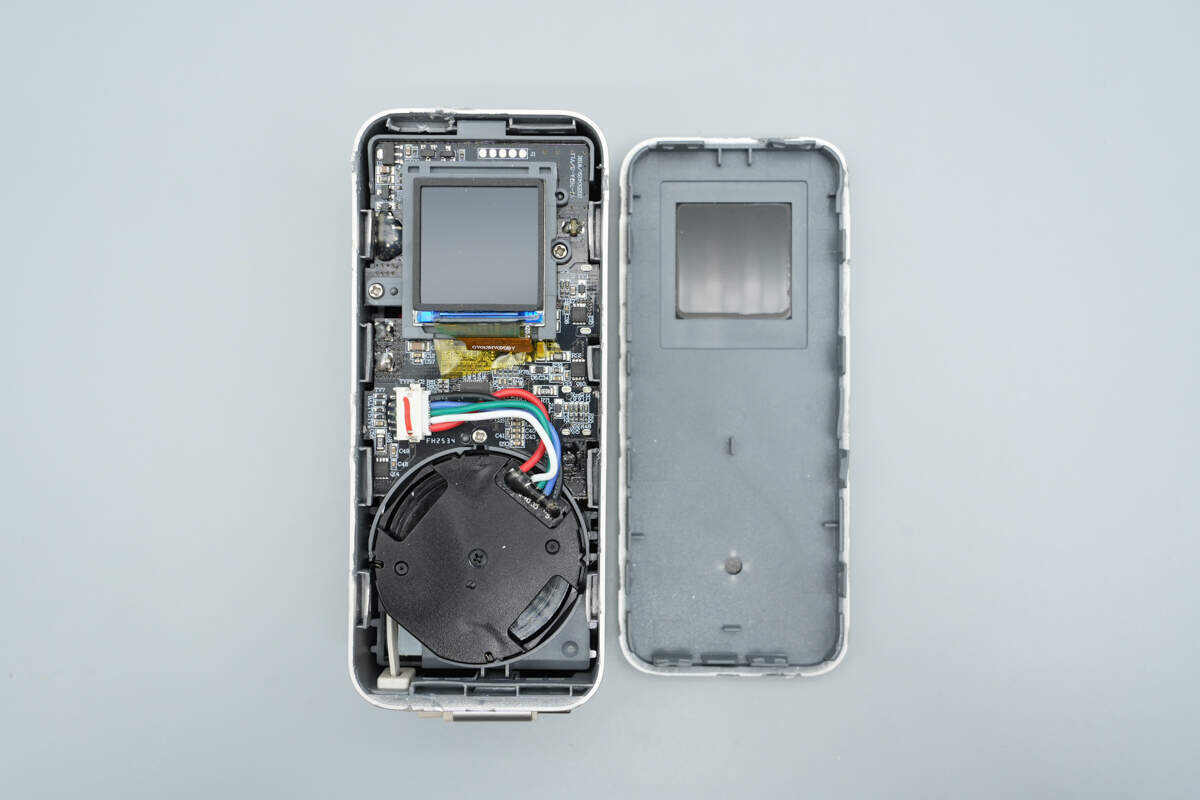
When opening the enclosure, the edges are secured with snap-fit clips.

The display is connected to the PCB via a ribbon cable, supported by a plastic bracket, and secured with screws.
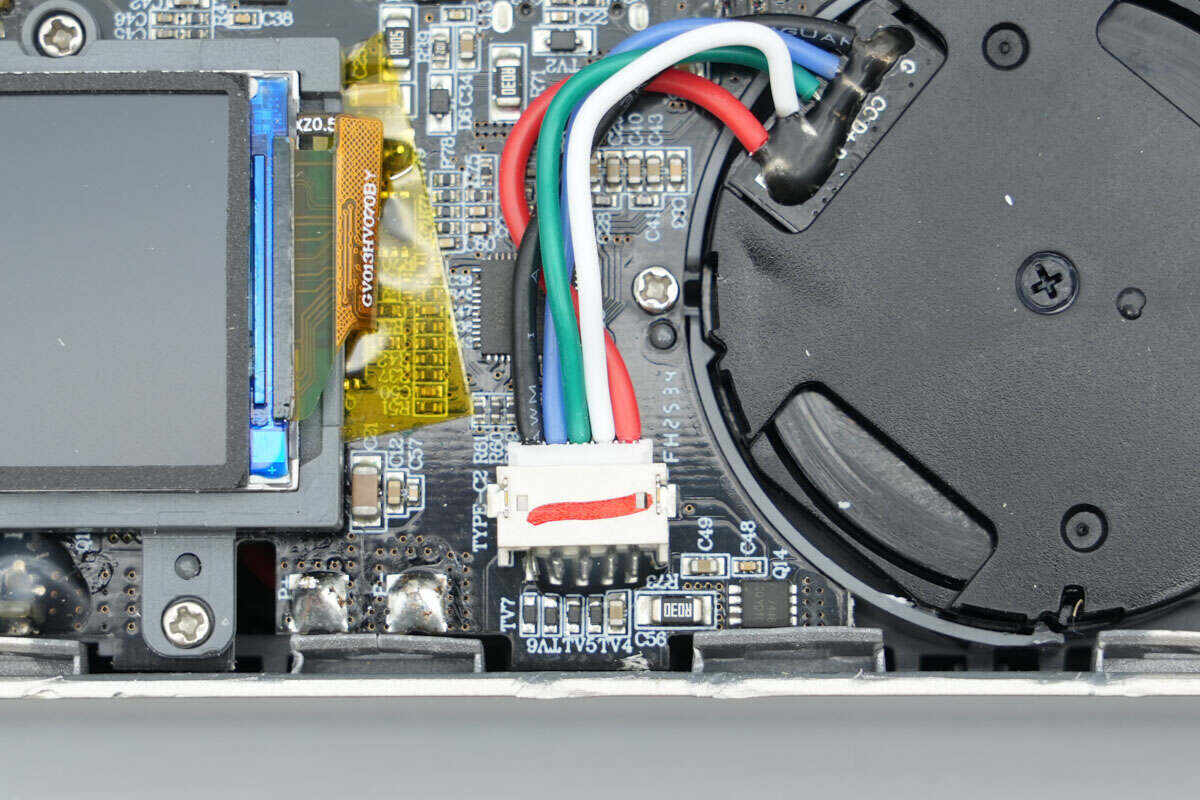
The retractable cable module is placed in a plastic slot on the right side and is connected to the PCB via a plug-and-play wire harness.
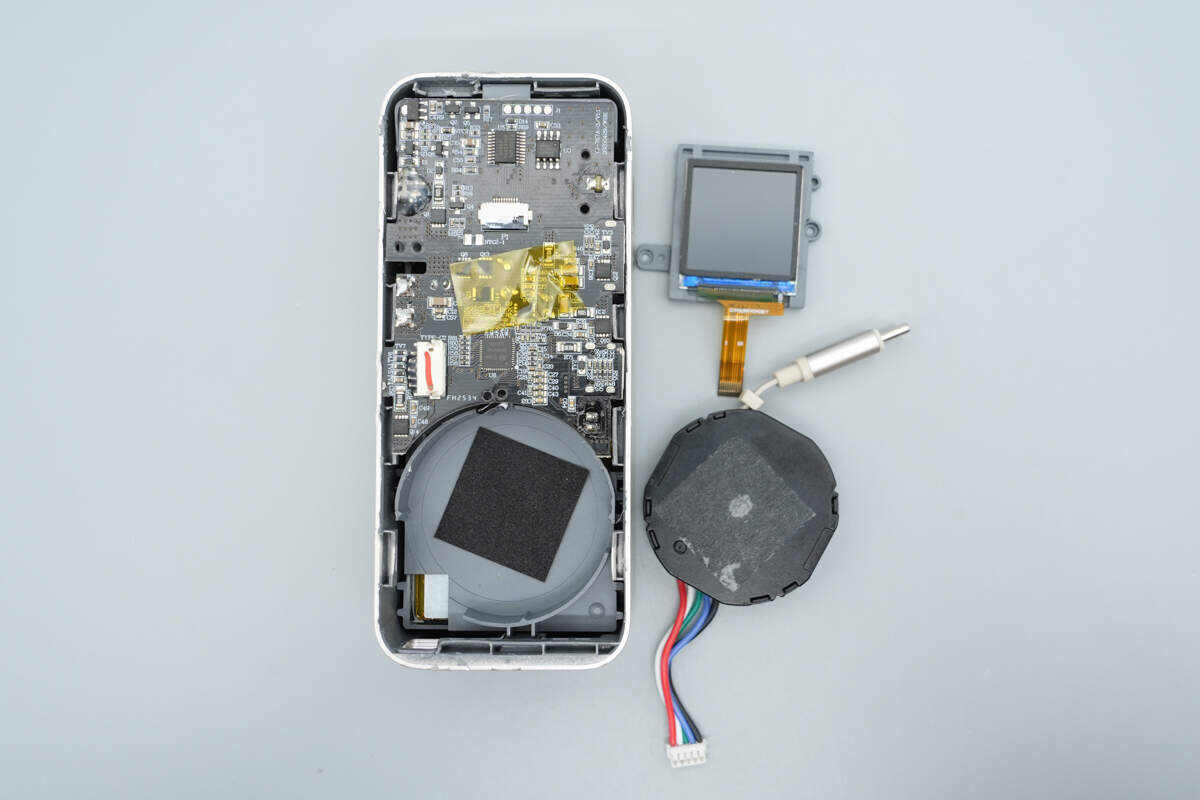
Remove the digital display and retractable cable module.

Remove the PCBA module and battery pack. The enclosure around the battery compartment is sealed with adhesive, and the PCBA module connects to the plug pins through a contact-based electrical design.
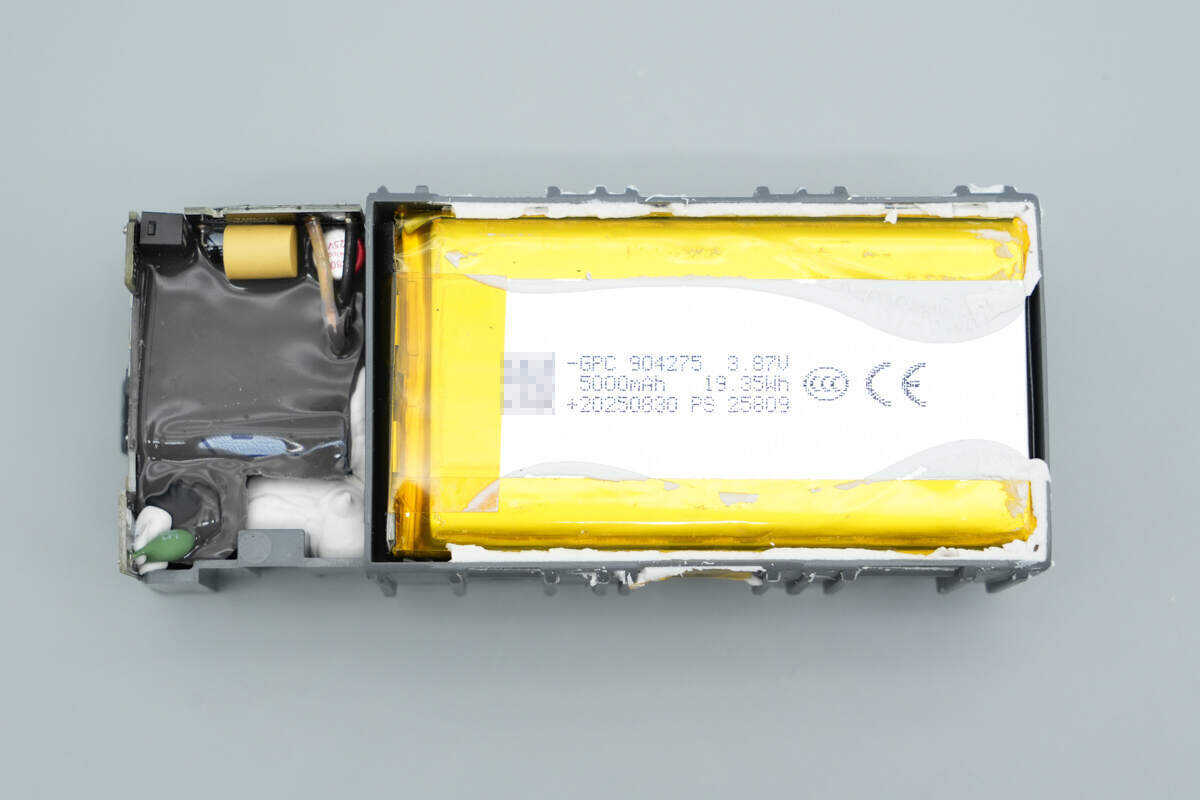
Both the PCBA module and the battery pack are placed within plastic compartments, with a plastic partition separating them.
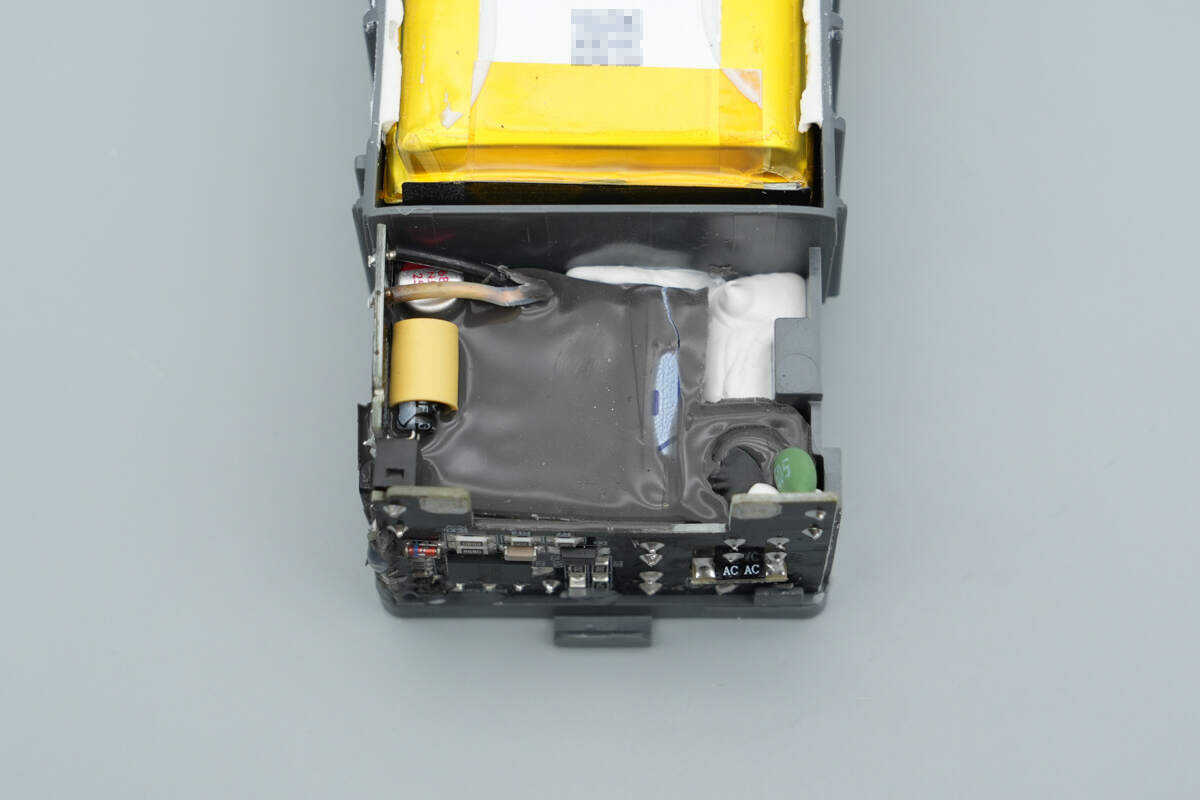
The PCBA module area is extensively filled with black and white adhesive.
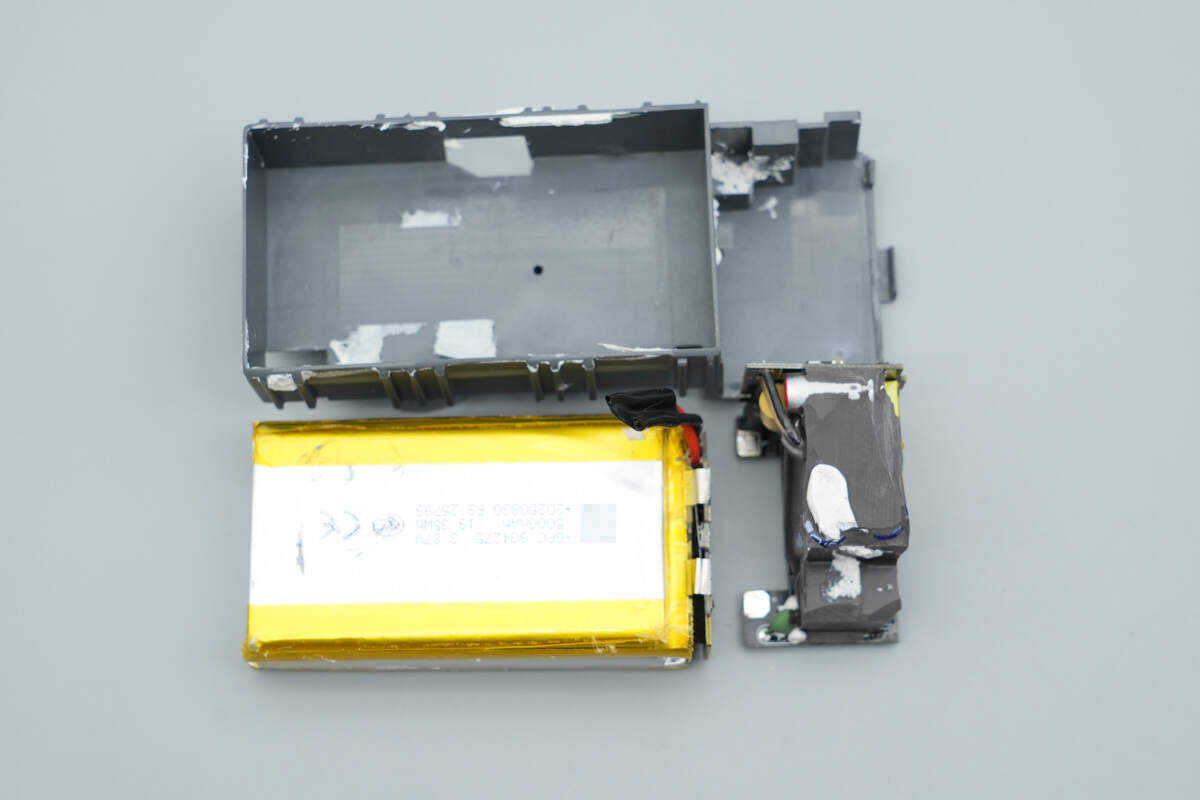
Separate and remove the PCBA module and battery pack.
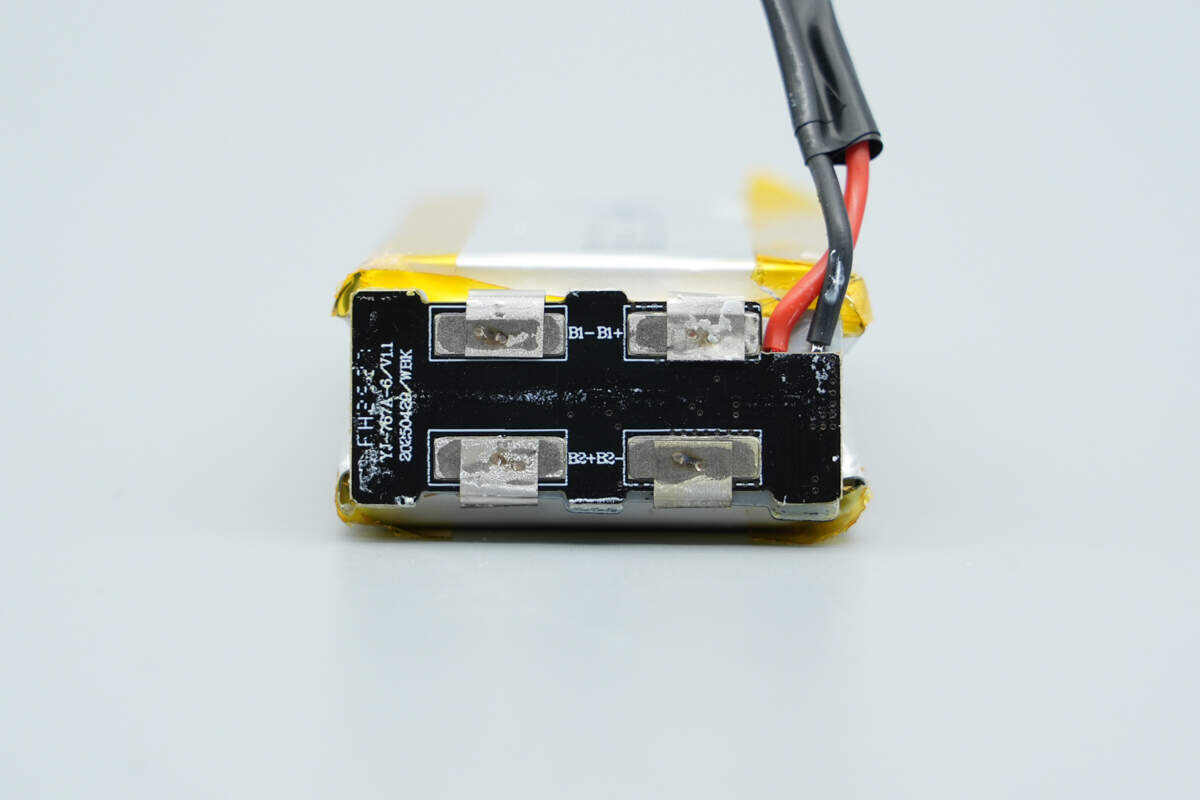
The front end of the battery pack has nickel tabs spot-welded to a lithium battery protection PCB.

The battery pack consists of two identical polymer cells. The cells are from GPC, model 904275, with a nominal voltage of 3.87V, a rated capacity of 5Ah, and an energy of 19.35Wh. They have obtained CCC and CE certifications.
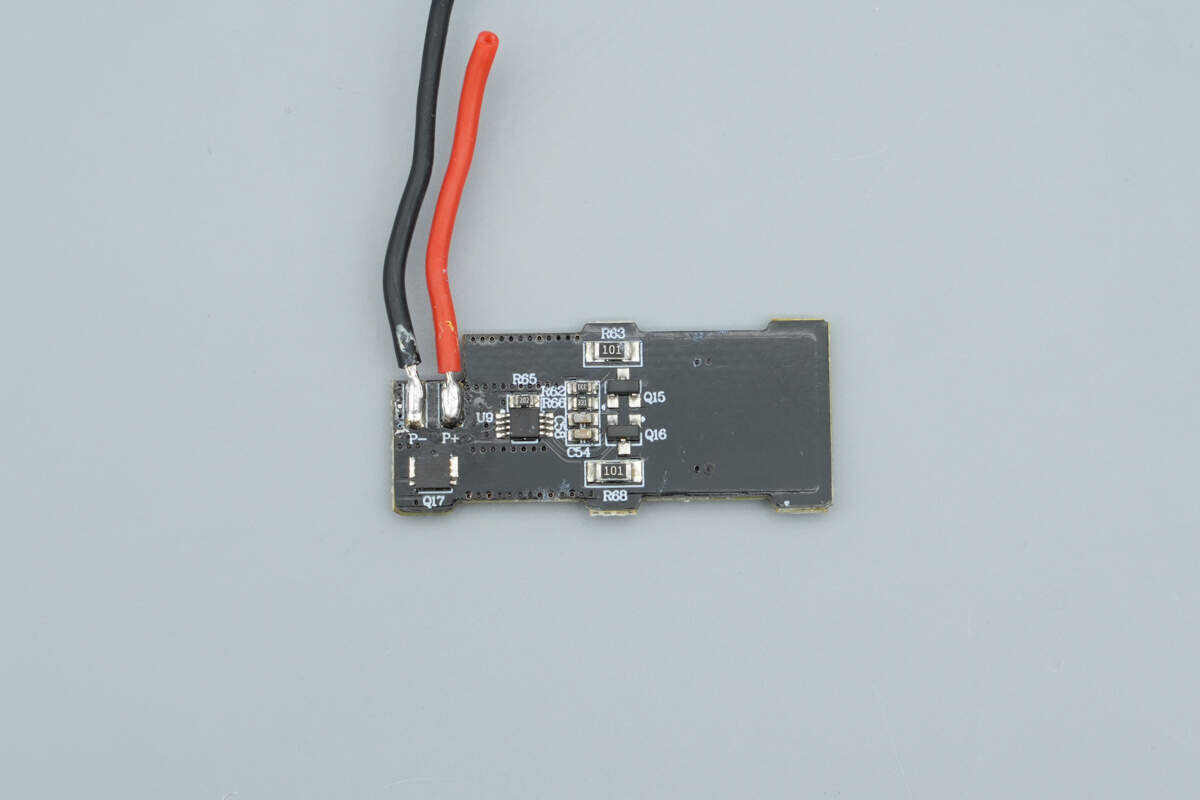
The back of the lithium battery protection PCB features a battery protection chip, battery protection MOSFETs, and includes a balancing circuit.
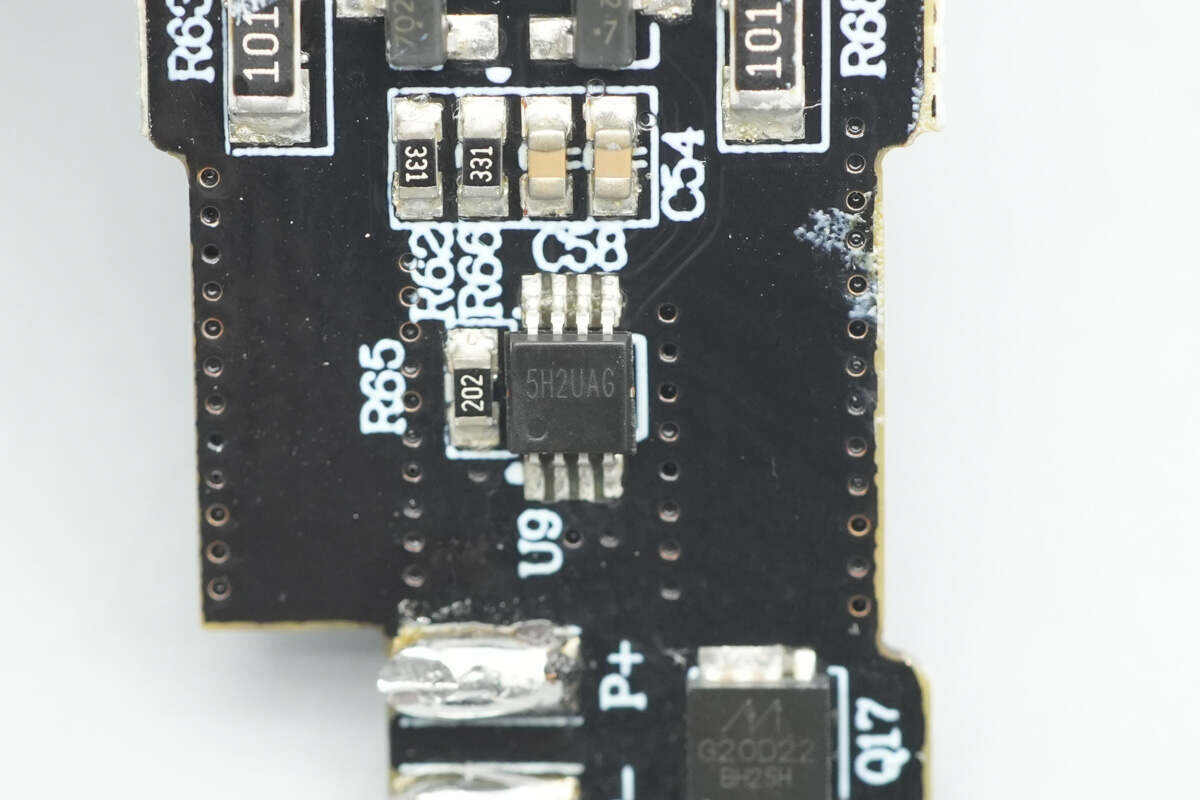
The battery protection chip, marked 5H2UAG, uses an MSOP-8 package.
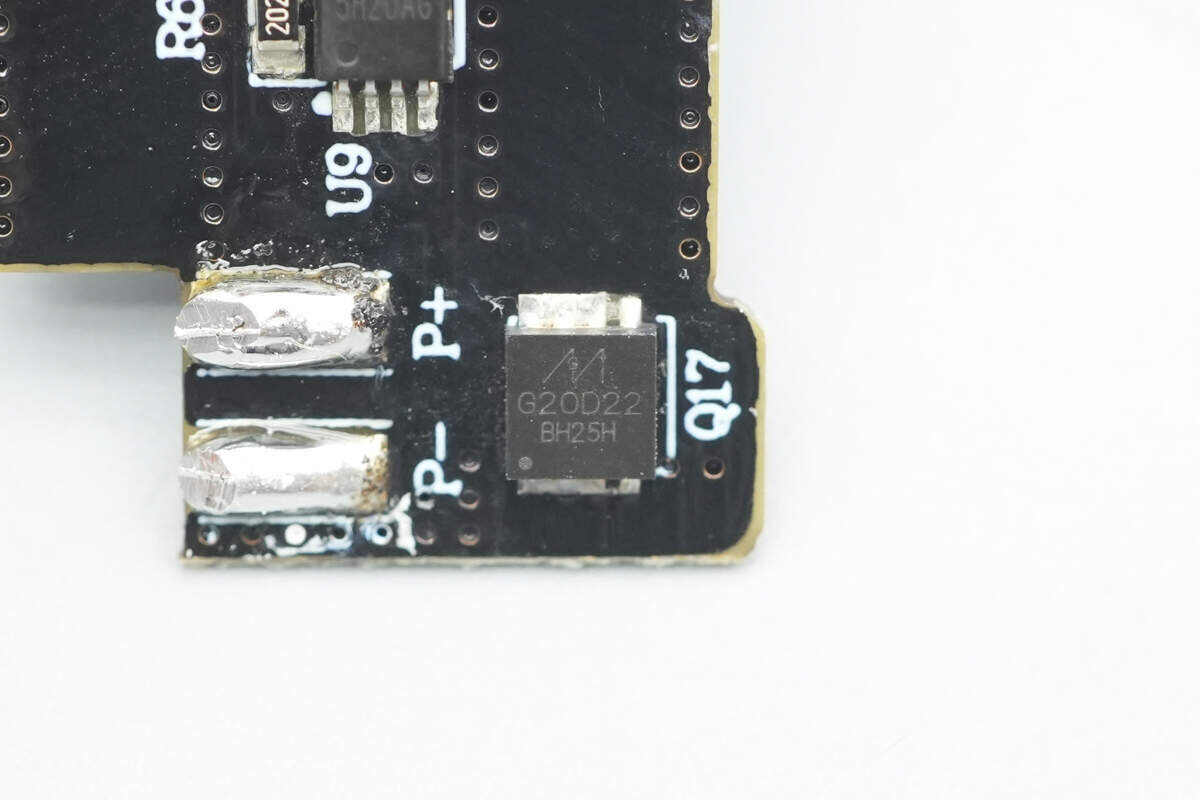
The battery protection MOSFETs are from Gigastech, marked G20D22, model GTMQ20D22. They are dual NMOS transistors with a voltage rating of 20V, an on-resistance of 3.3mΩ, and come in a DFN 3.0×3.0–8L package.
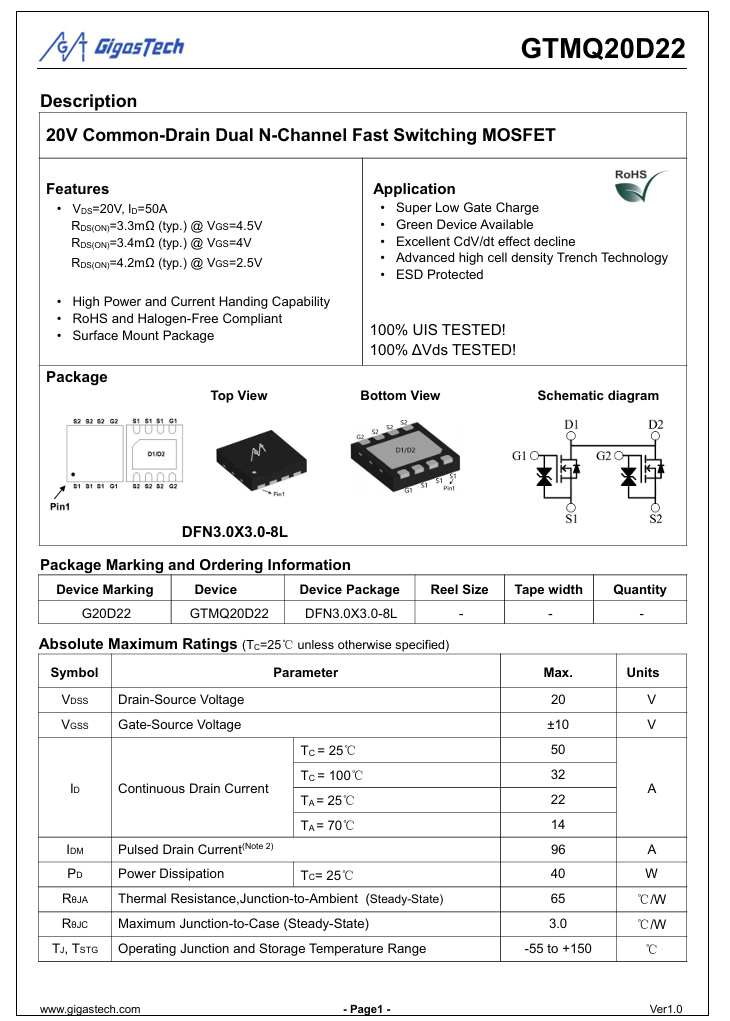
Here is the information about Gigastech GTMQ20D22.
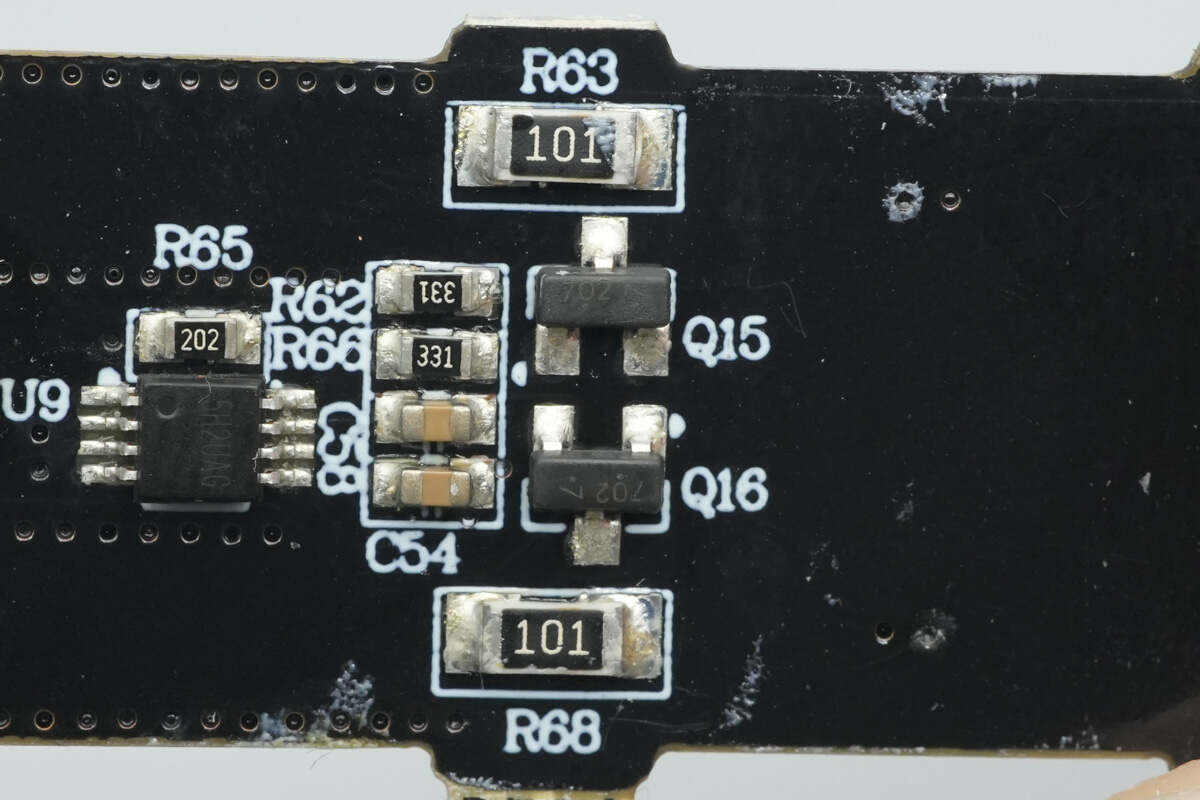
Close-up of the balancing circuit.

The PCBA module consists of three small stacked PCBs, with potting applied to enhance heat dissipation and environmental durability.
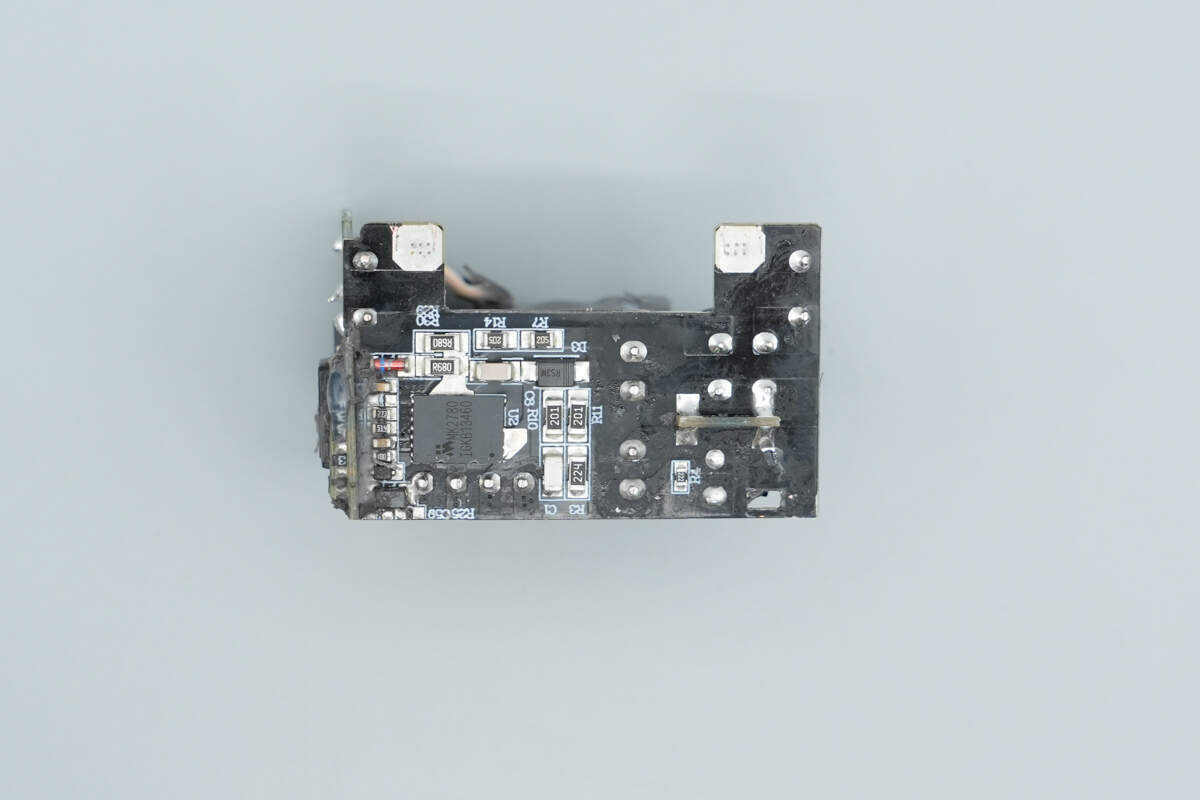
On the back of the mainboard, there is a power management chip.
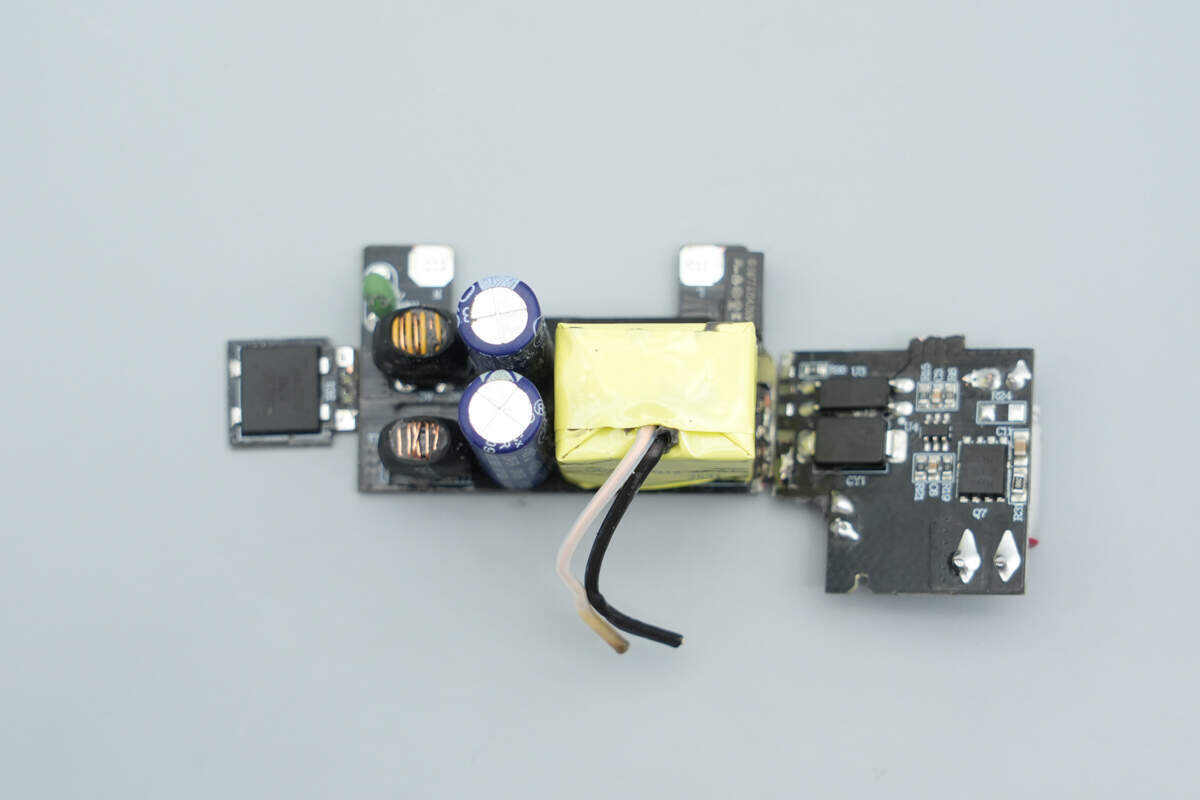
Clean the module and separate the small PCBs.

The front of the mainboard is equipped with a time-delay fuse, an NTC thermistor, a common-mode choke, a filter inductor, high-voltage electrolytic capacitors, and a transformer.
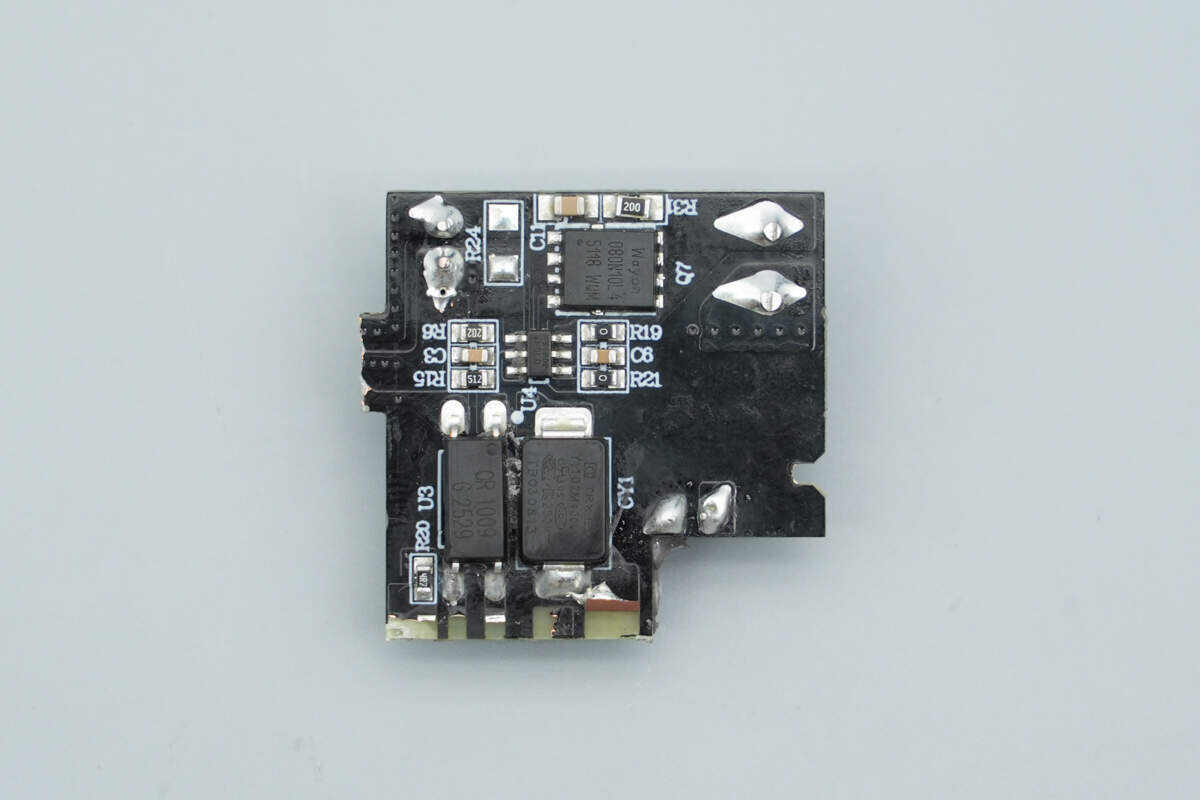
The front of the small PCB on the side features an optocoupler, an SMD Y capacitor, a synchronous rectifier controller, and a synchronous rectifier.
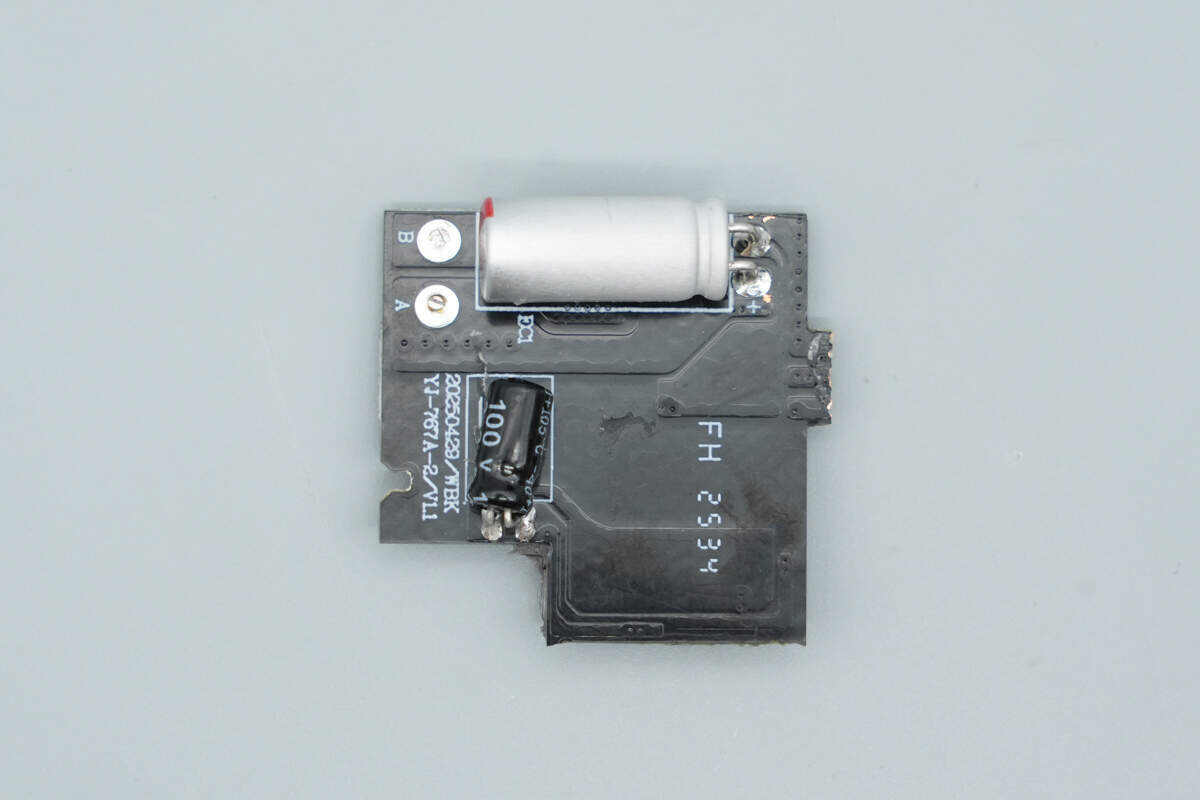
The back of the small PCB contains the capacitor that supplies power to the master control chip, as well as a solid capacitor for output filtering.
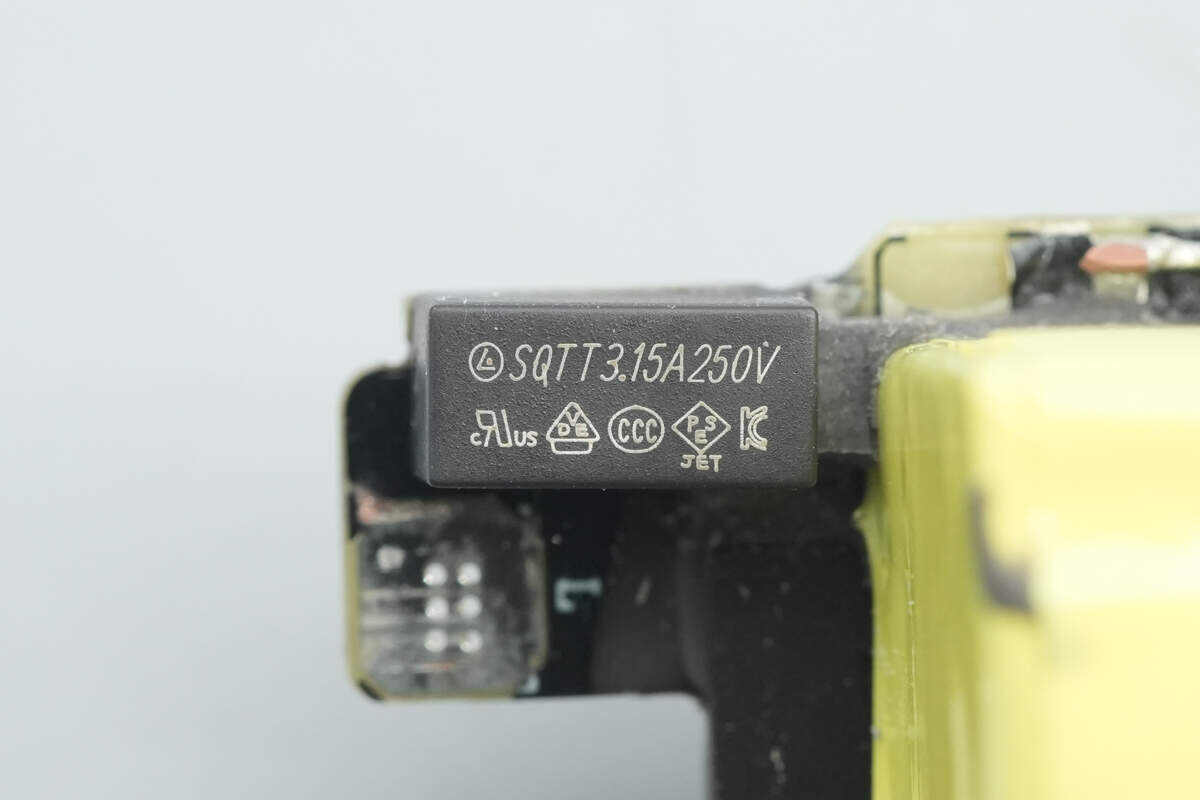
The time-delay fuse is rated at 3.15A, 250V.

The NTC thermistor is used to suppress inrush current during power-on.

The common mode choke is wound with two wires and is insulated with a heat-shrink tube for protection.
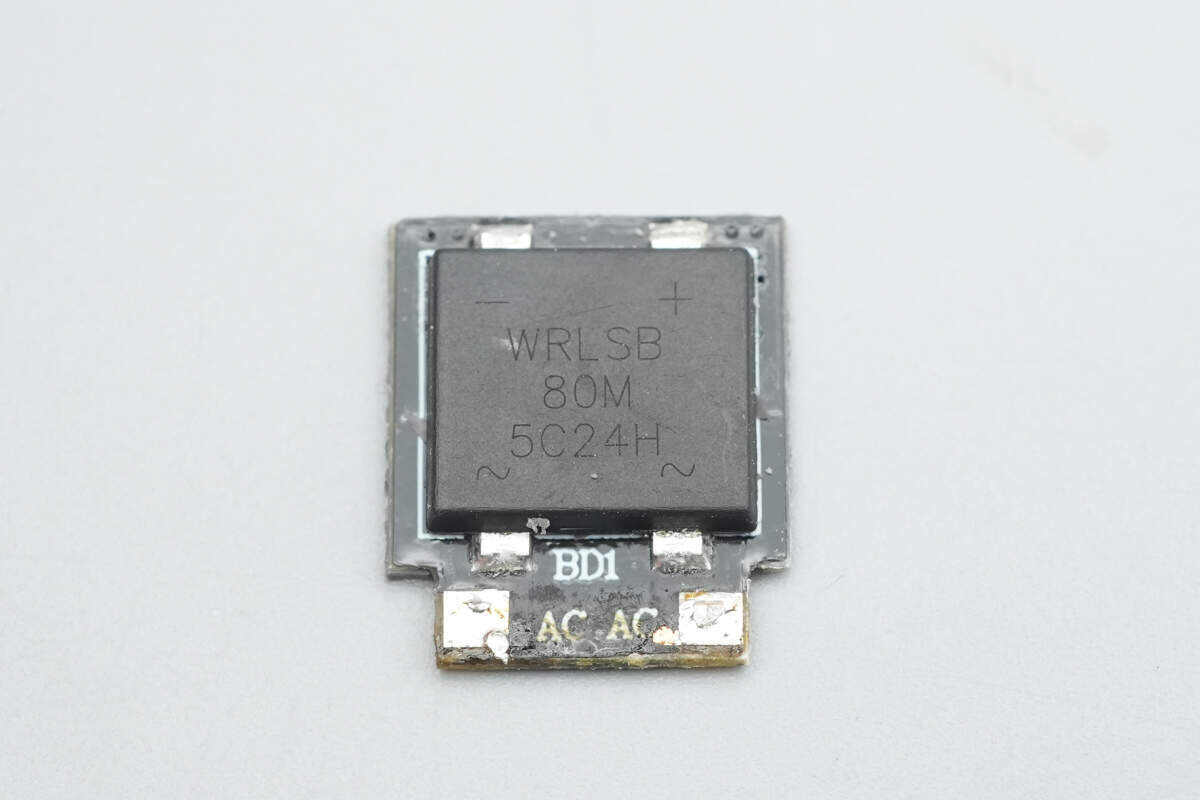
The bridge rectifier is from World Industrial, model WRLSB80M. This soft bridge rectifier, with its softer recovery curve and smoother turn-off characteristics, helps reduce diode junction capacitance, thereby minimizing harmonic oscillations. The LSB package used provides excellent heat dissipation, enhancing the reliability of medium- to high-power adapters. Each unit is capable of handling over 60W.
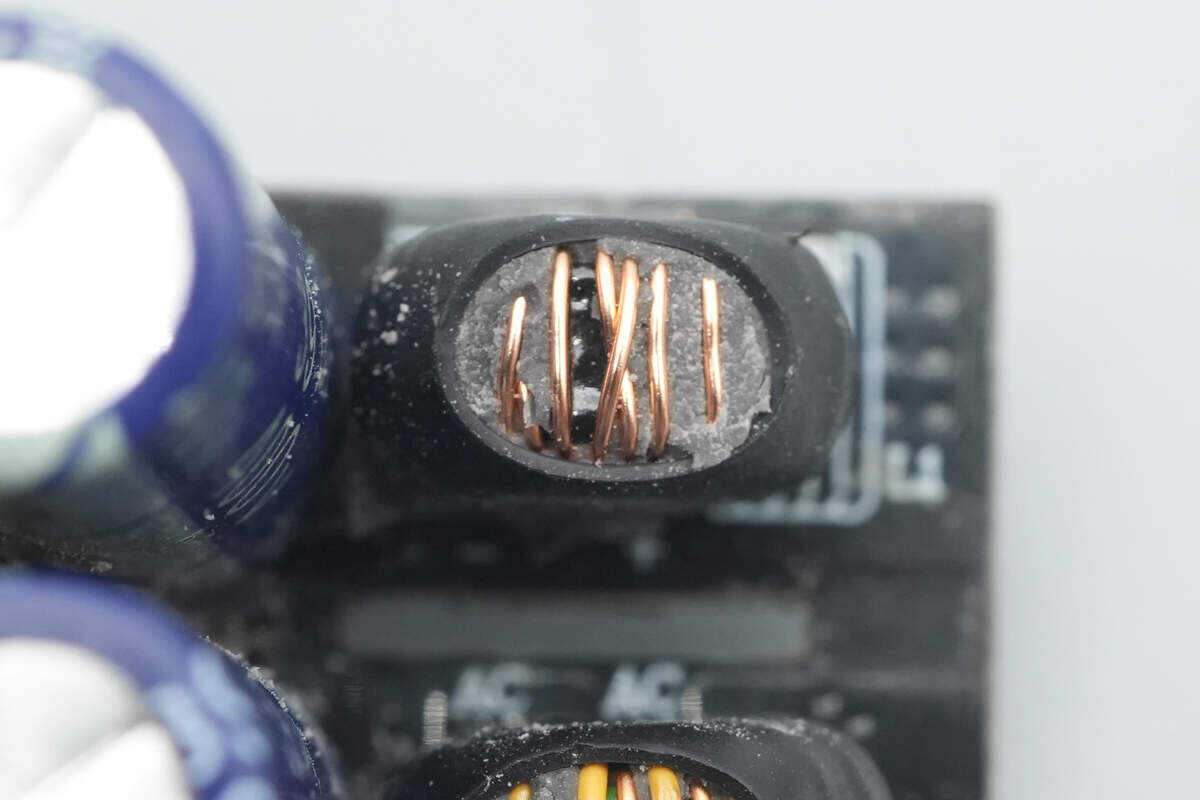
The filter inductor is insulated with a heat-shrink tube for protection.
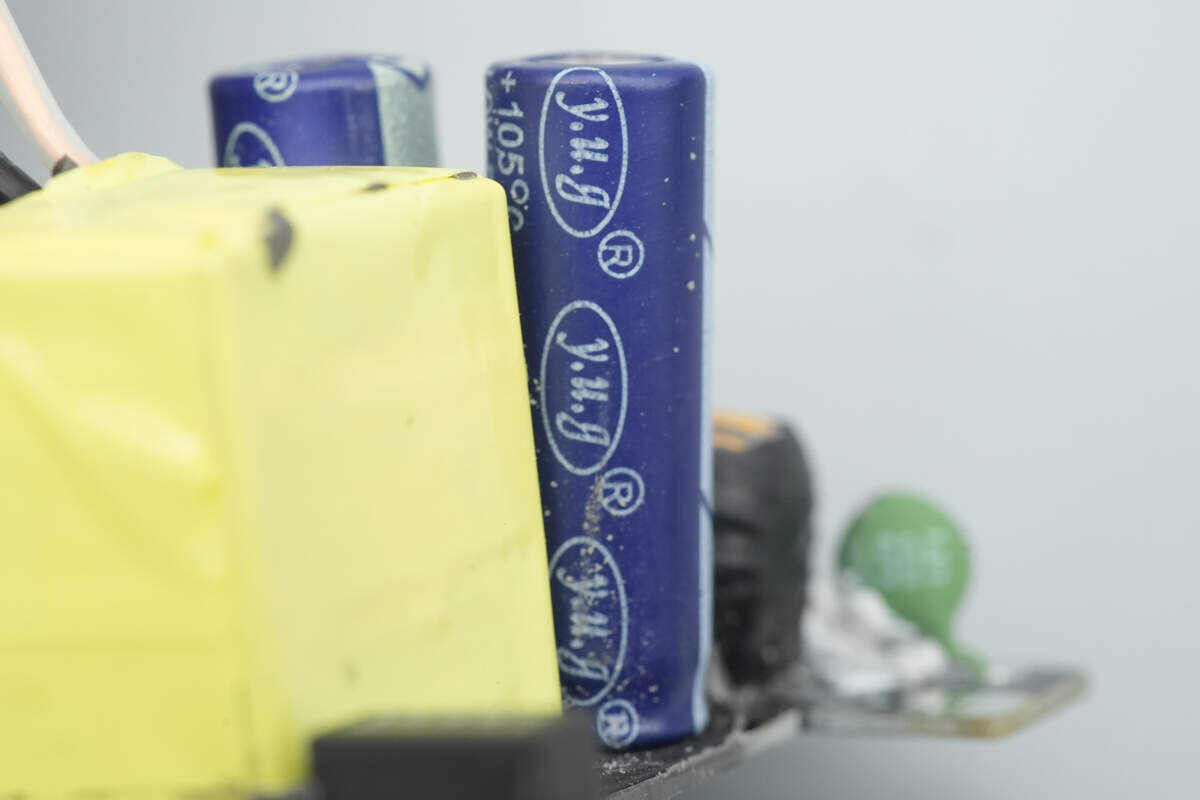
The two high-voltage electrolytic filter capacitors are from y.u.g.
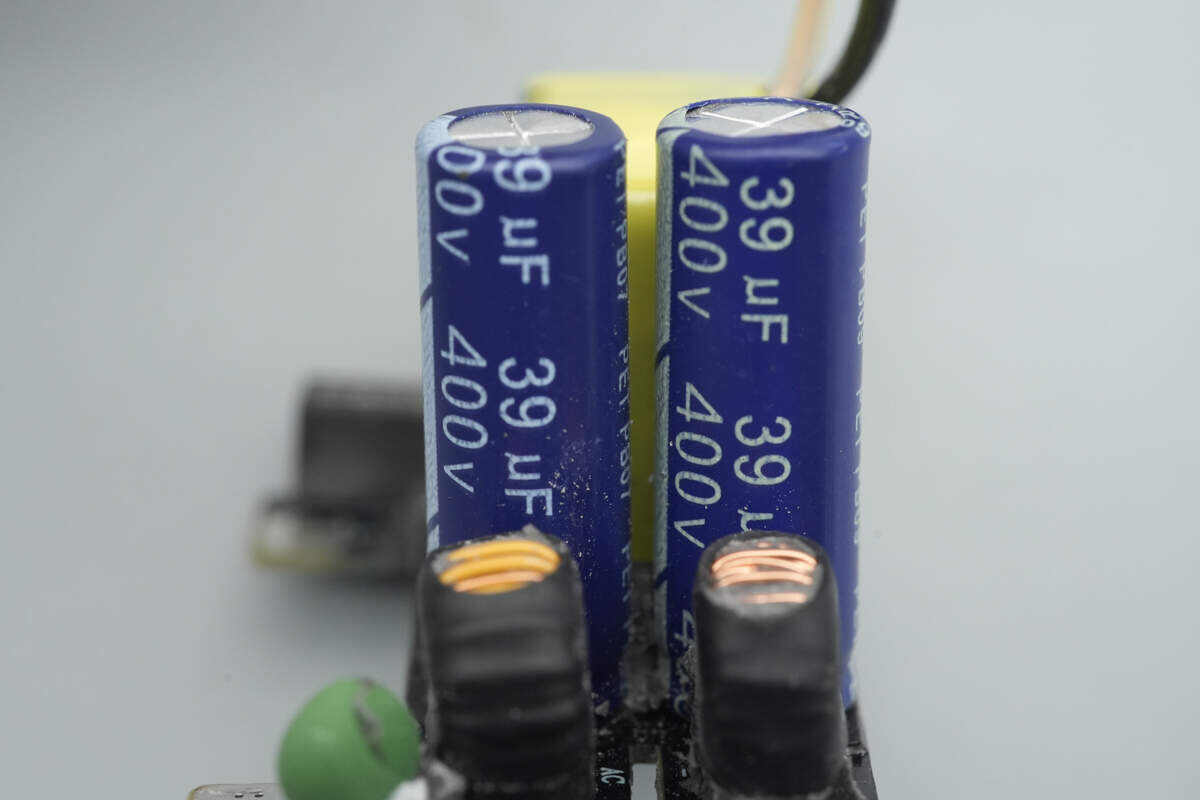
The specifications for both capacitors are 400V, 39μF.
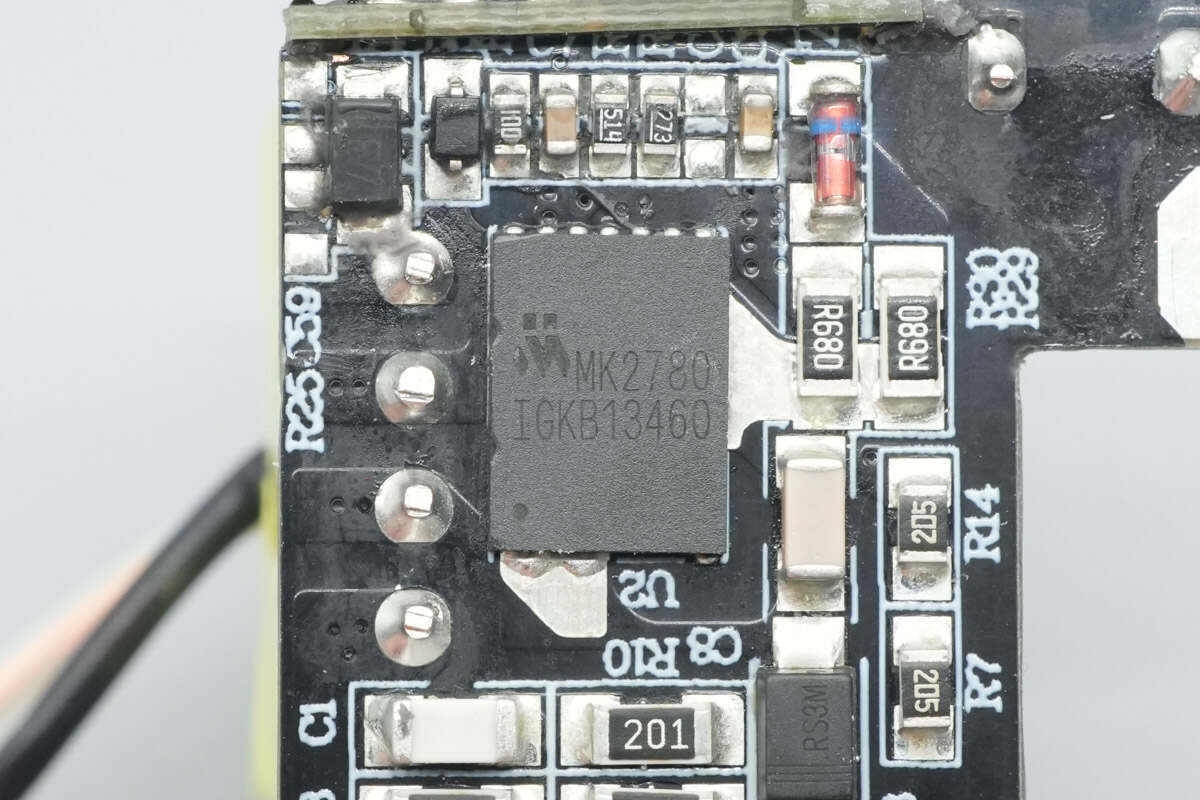
The integrated GaN chip is from Meraki, model MK2780. This is a high-frequency quasi-resonant (QR) controller optimized for PD/fast charging applications, with an integrated 700V/170mΩ GaN FET. Its wide VCC operating voltage range (9-85V) enables it to cover the PD/PPS protocol range of 3.3V-21V output, without the need for additional VCC auxiliary windings or linear step-down circuits.
To achieve high efficiency under varying load conditions with universal input voltage, the device adopts an adaptive DCM/QR operating mode. In light load conditions, the device enters burst mode to enhance energy efficiency.
It also integrates comprehensive protection features, including: output over-voltage protection (OVP), output over-power protection (OPP), VCC over-voltage protection, under-voltage protection (Brown in/out), secondary-side synchronous rectification short-circuit protection (SSCP), and current-sensing short-circuit protection.
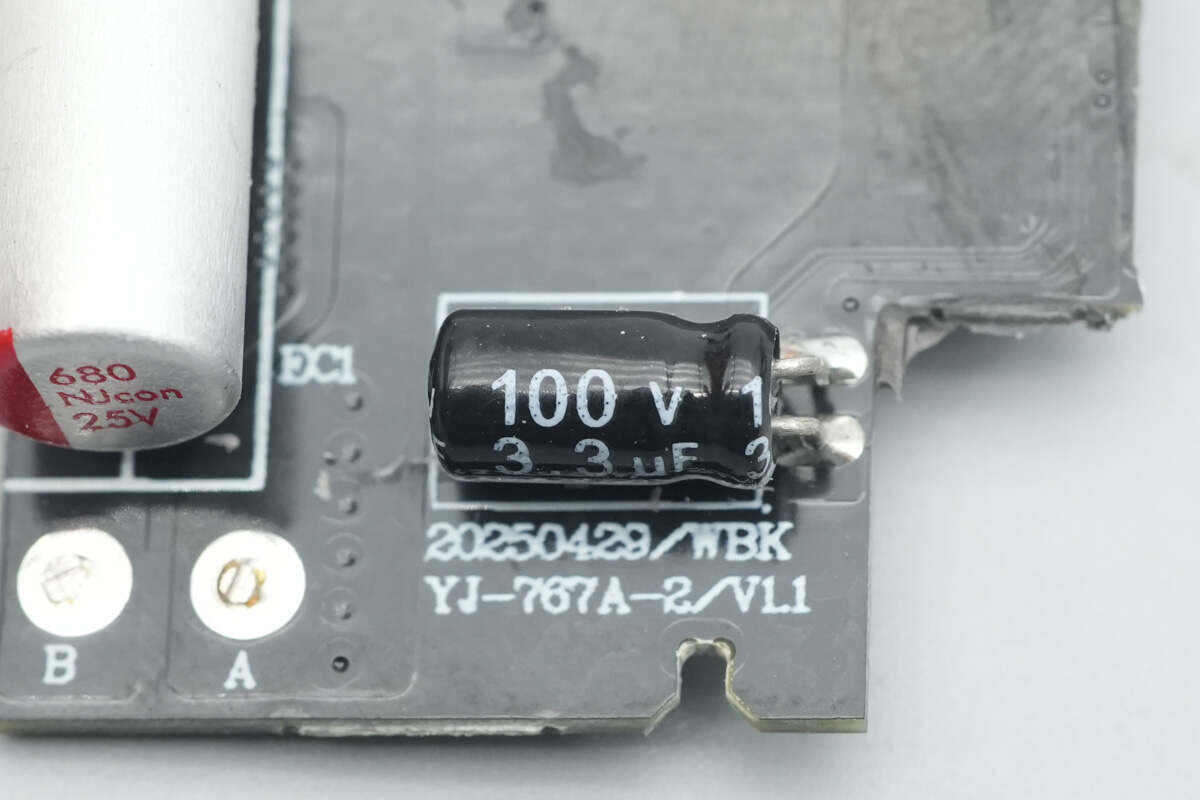
The capacitor supplying power to the master control chip is rated at 100V, 3.3μF.
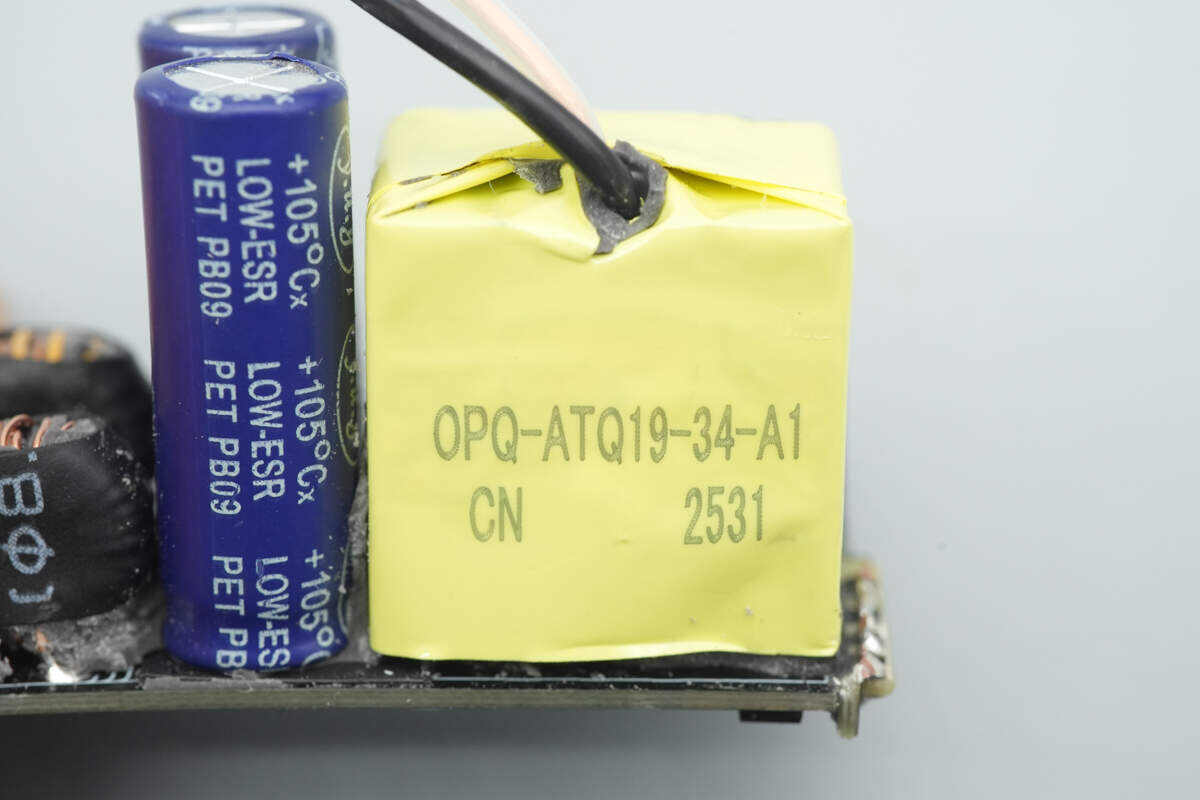
The transformer uses an ATQ19 core.

The optocoupler is from OR, model OR-1009, and is used for output voltage feedback.
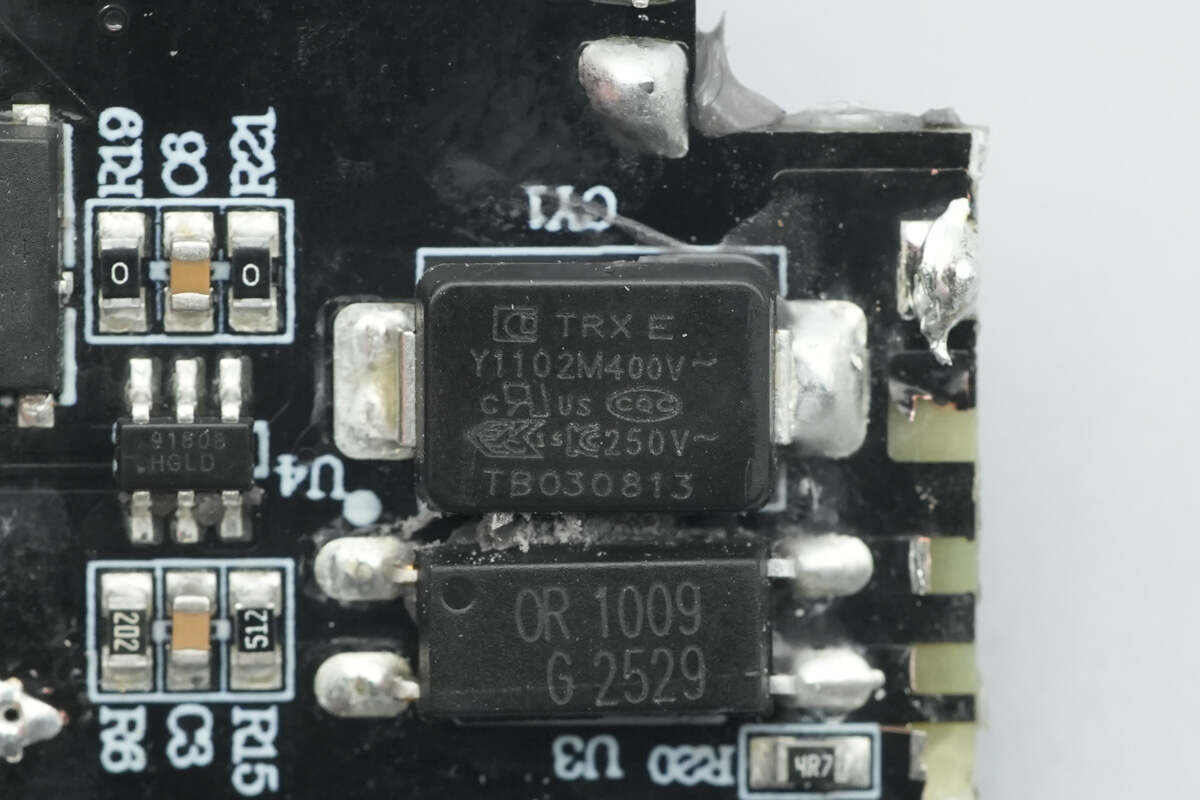
The SMD Y capacitor is from TRX, with the part number TMY1102M. Its compact size and lightweight design make it ideal for high-density power products, such as GaN fast chargers.

The synchronous rectifier controller is from Meraki, model MK91808H. It supports CCM, DCM, and QR operating modes. The chip uses proprietary self-powering technology to supply power to the VCC, allowing it to be placed directly in the primary side without the need for auxiliary windings. It comes in a SOT23-6 package.
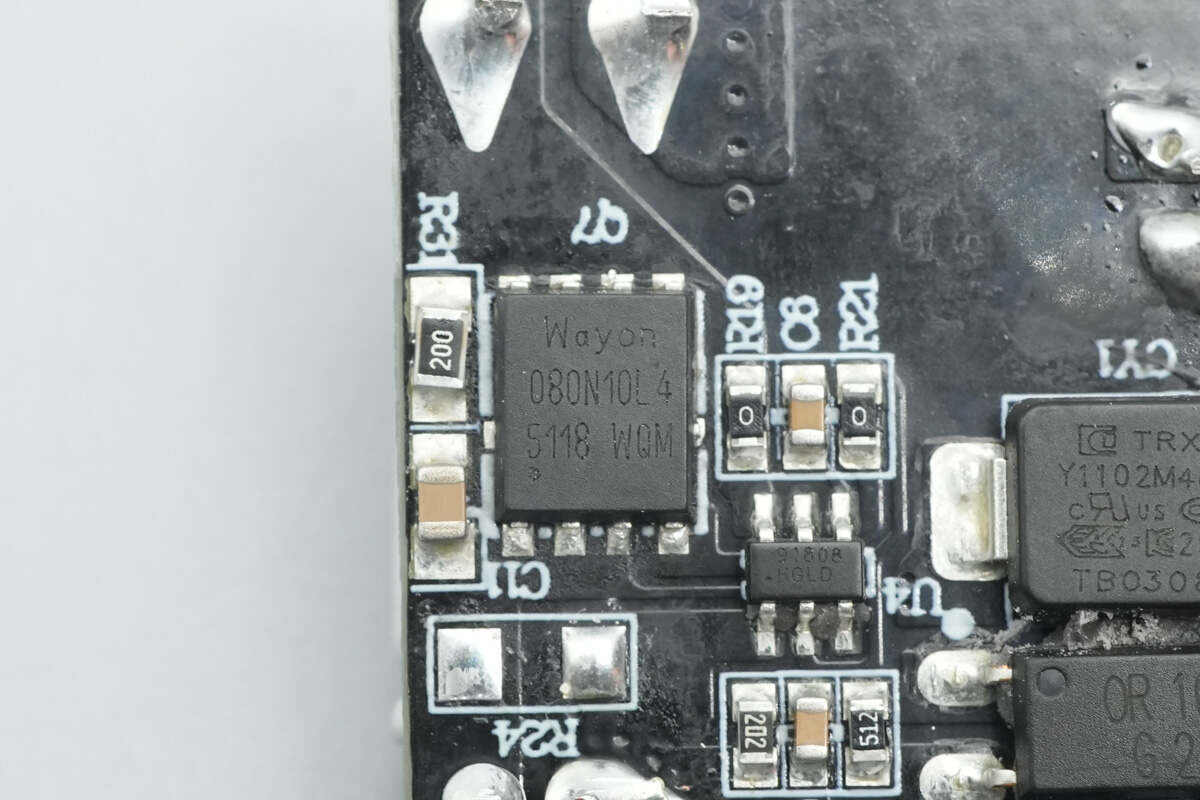
The synchronous rectifier is from WAYON, marked with 080N10L4, model WMB080N10LG4. It is an NMOS transistor with a voltage rating of 100V, an on-resistance of 7.8mΩ, and comes in a PDFN 5060-8L package.
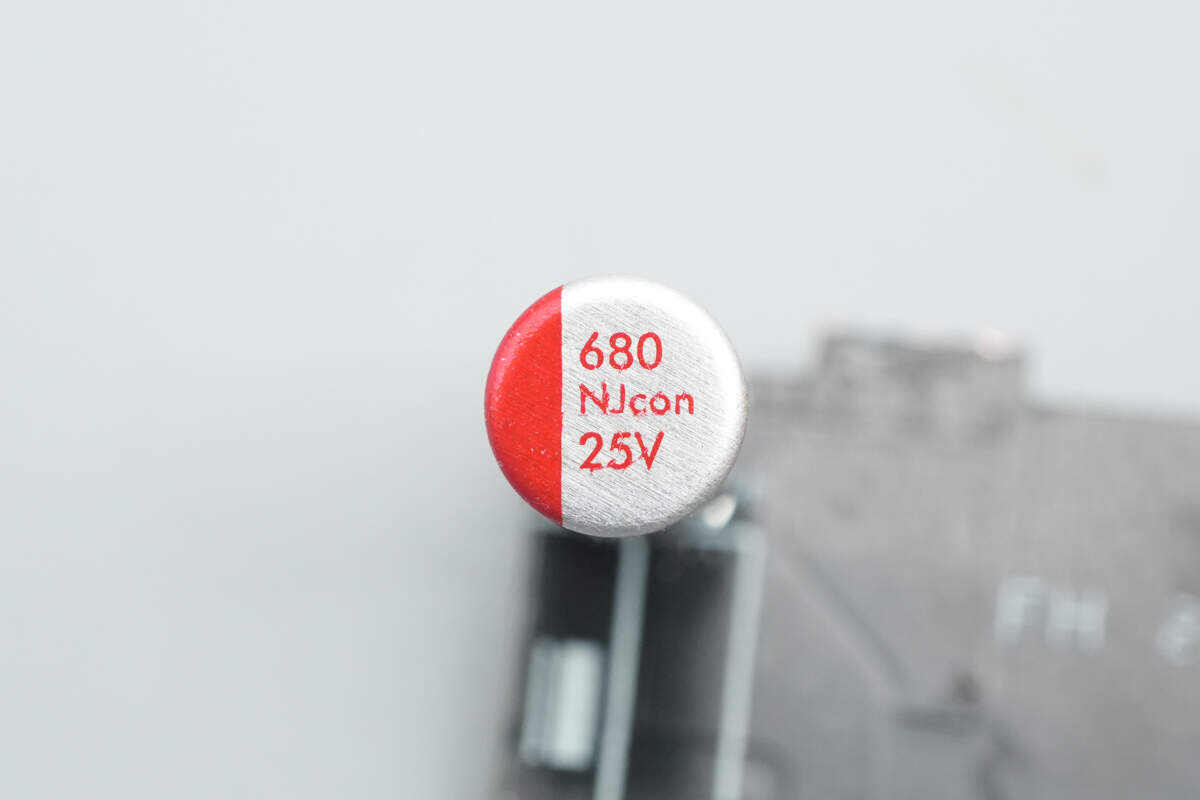
The solid capacitor for output filtering is from NJcon, with a specification of 25V, 680μF.

The front of the master control PCB features the MCU, memory, power bank SoC, synchronous buck-boost MOSFETs, and multiple VBUS MOSFETs.
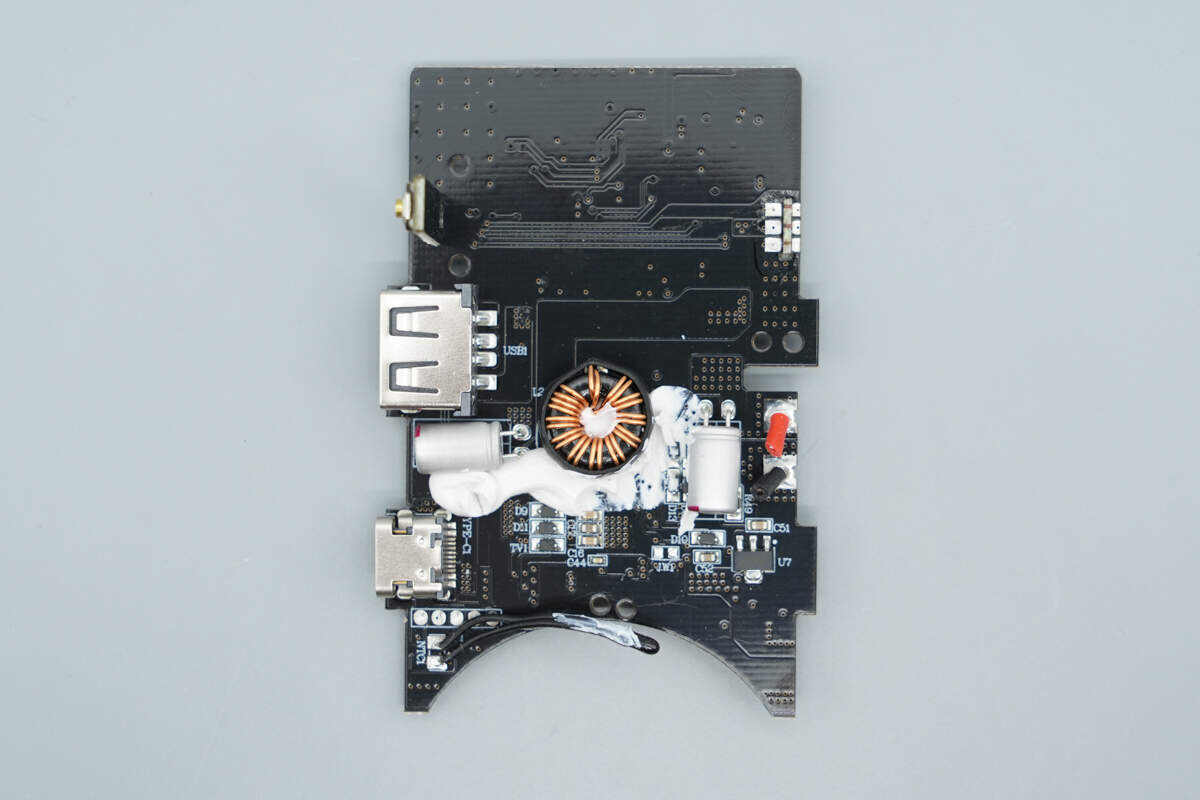
The other side of the PCB features a buck-boost inductor, solid capacitors, and a thermistor.
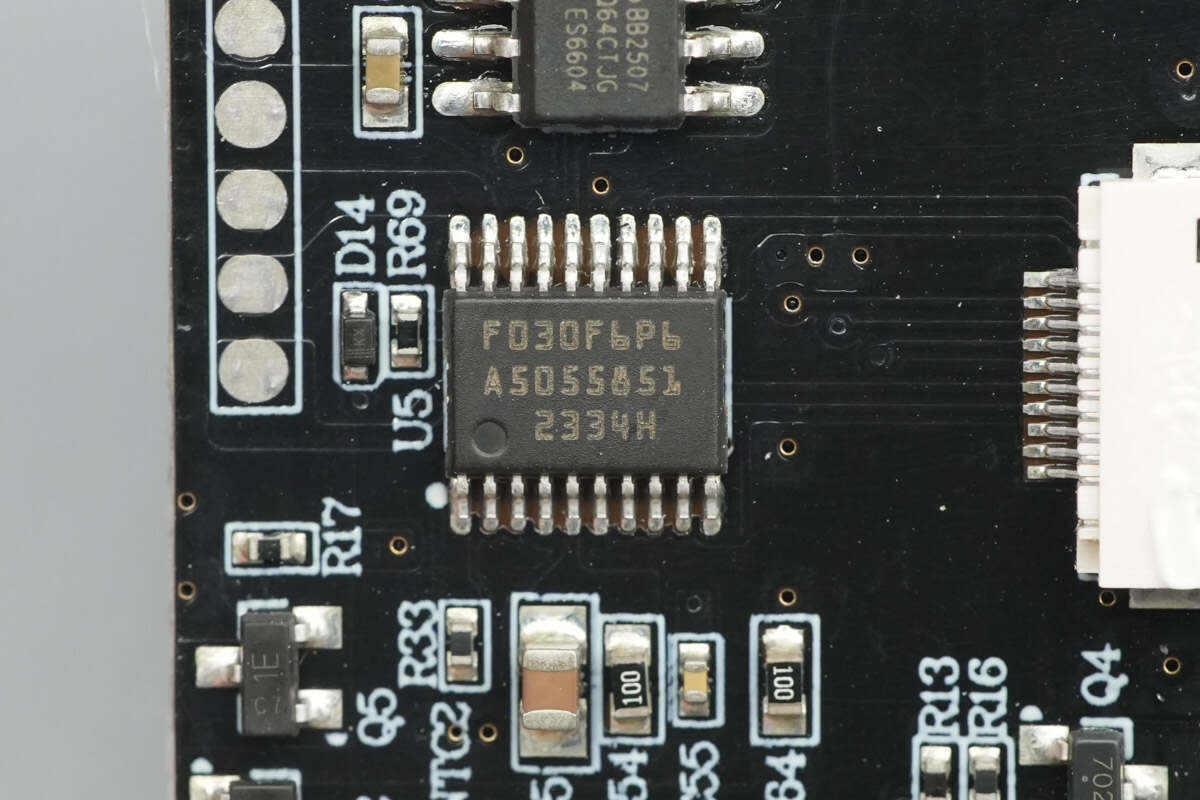
The MCU is from MPS, model CW32F030F6P6. It is a single-chip microcontroller based on eFlash, integrating an ARM Cortex-M0+ core with a maximum frequency of 64MHz, high-speed embedded memory, and a range of enhanced peripherals and I/O ports. It operates over a temperature range of -40 to 105°C, with a wide supply voltage range of 1.65V to 5.5V. It supports two low-power modes: Sleep and Deep Sleep, and comes in a TSSOP-20 package.
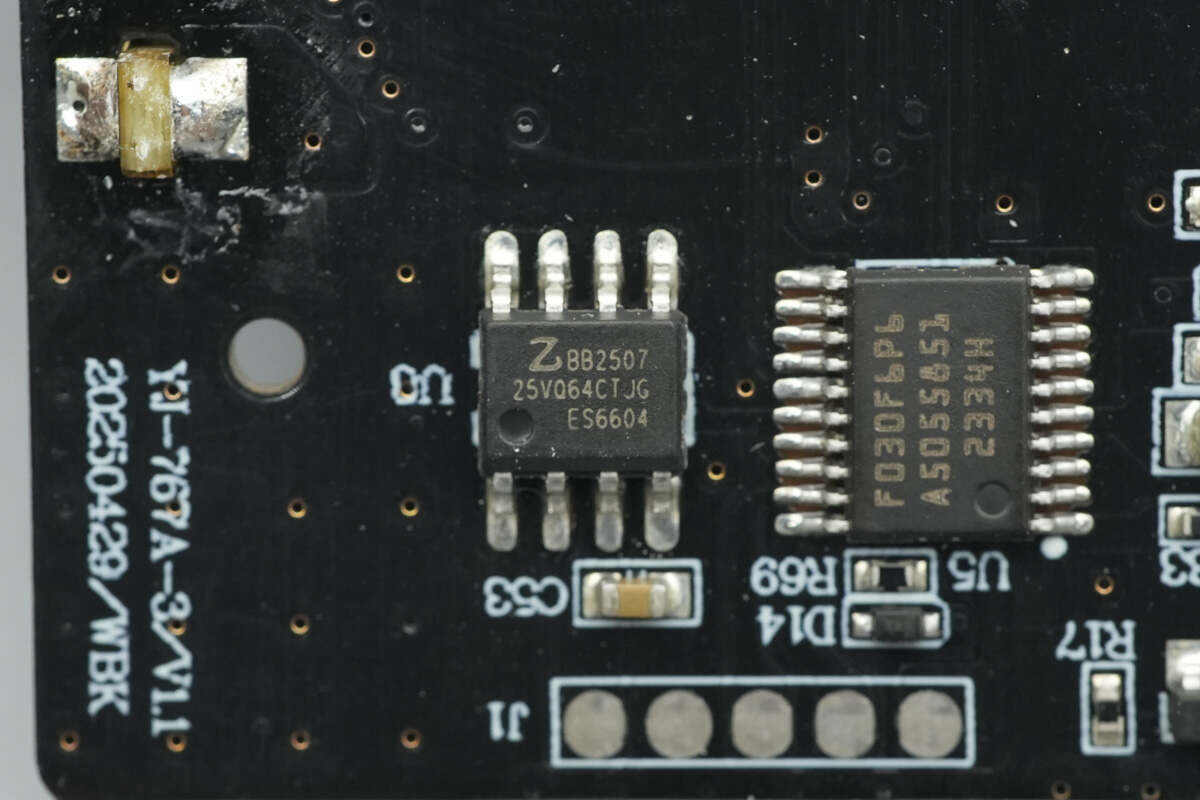
The memory is from Zbit, model ZB25VQ64C, with a capacity of 8MB. It comes in a DFN-8 package.
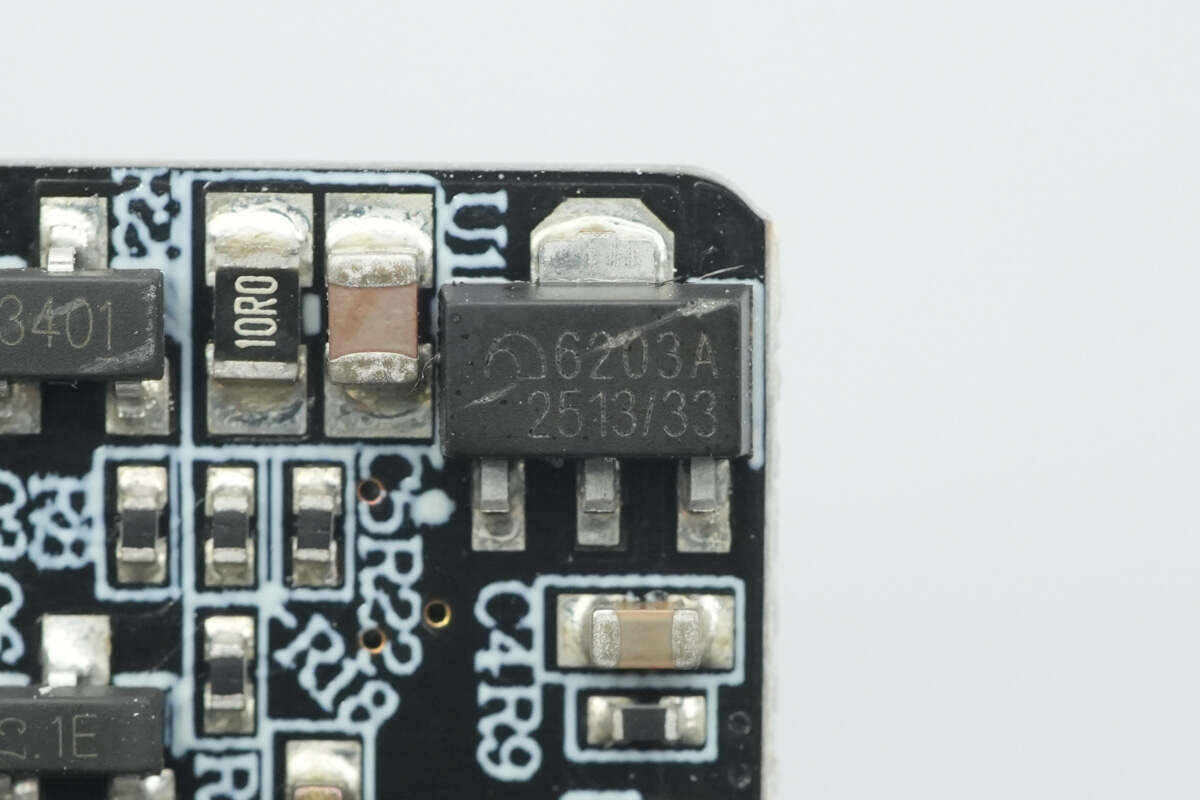
The voltage regulator chip is from Microne, marked with 6203A.
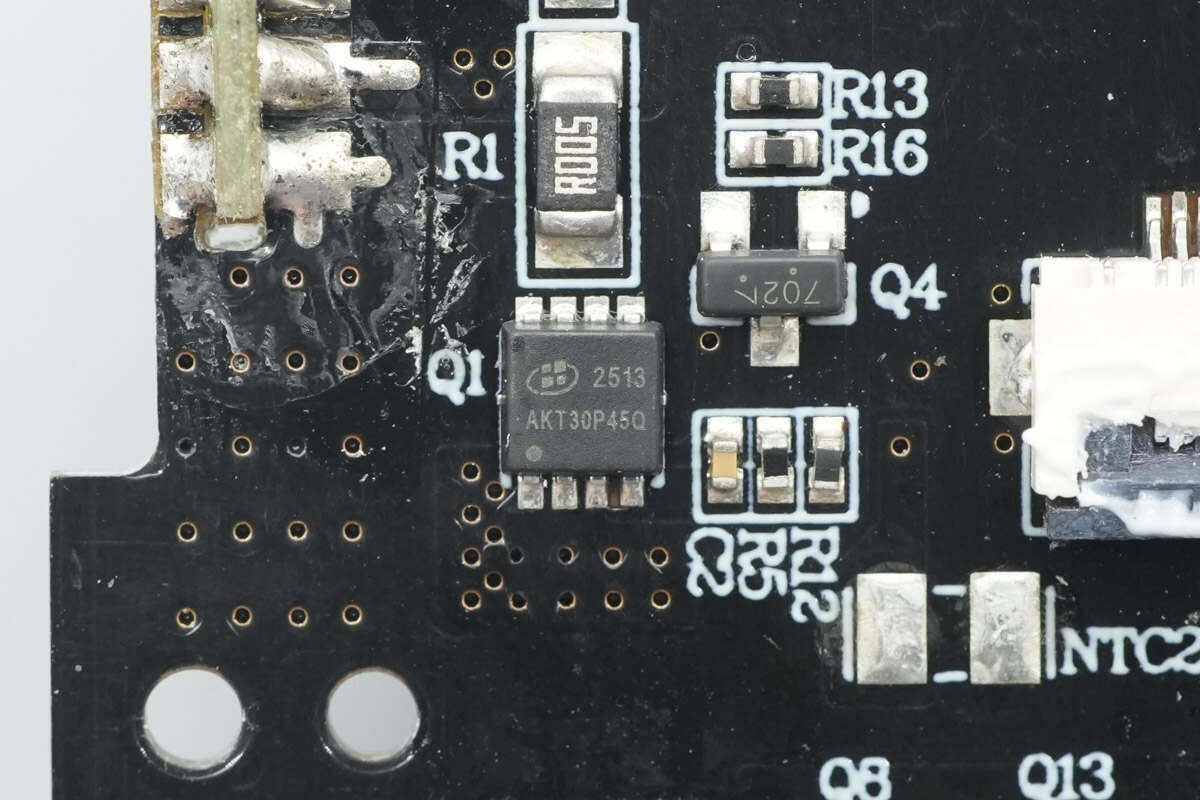
This VBUS MOSFET is from ALKAIDSEMI, model AKT30P40Q. It is a PMOS with a voltage rating of -30V, an on-resistance of 9mΩ, and comes in a PDFN 3×3 package.
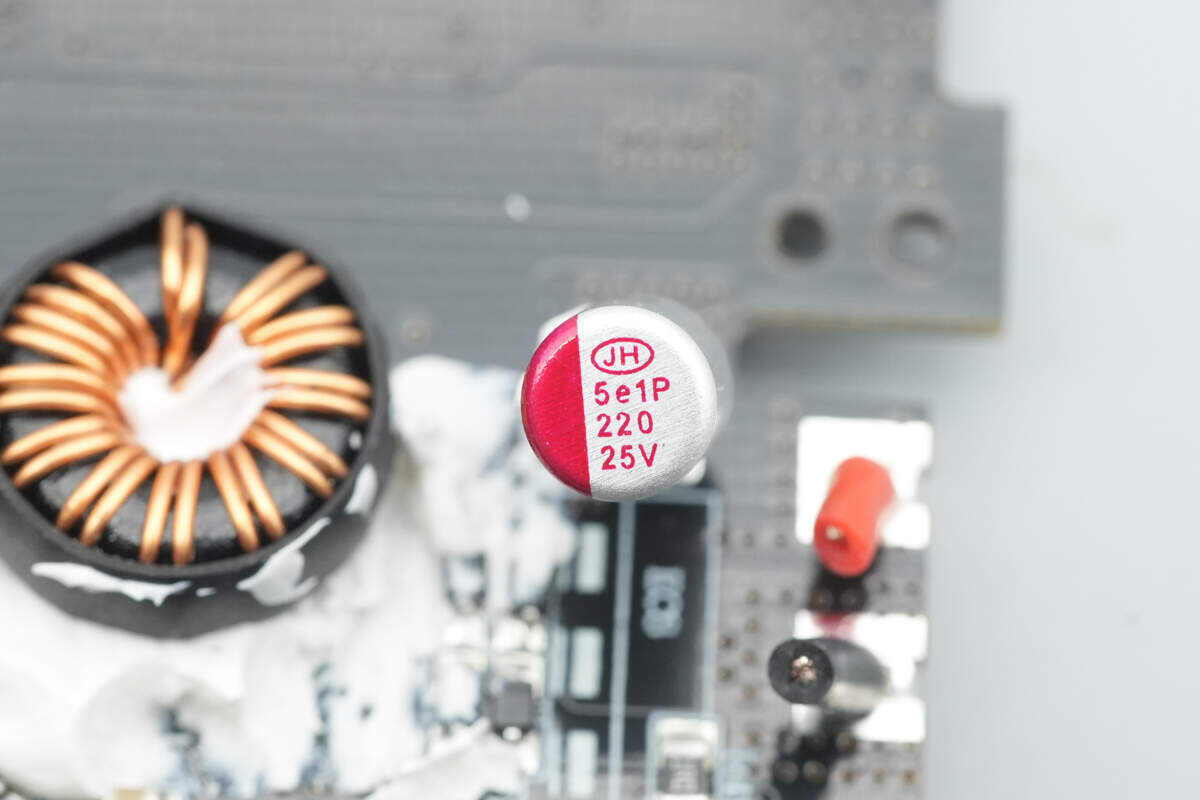
The solid capacitor on the battery side is from Jianghai, with a specification of 25V, 220μF.
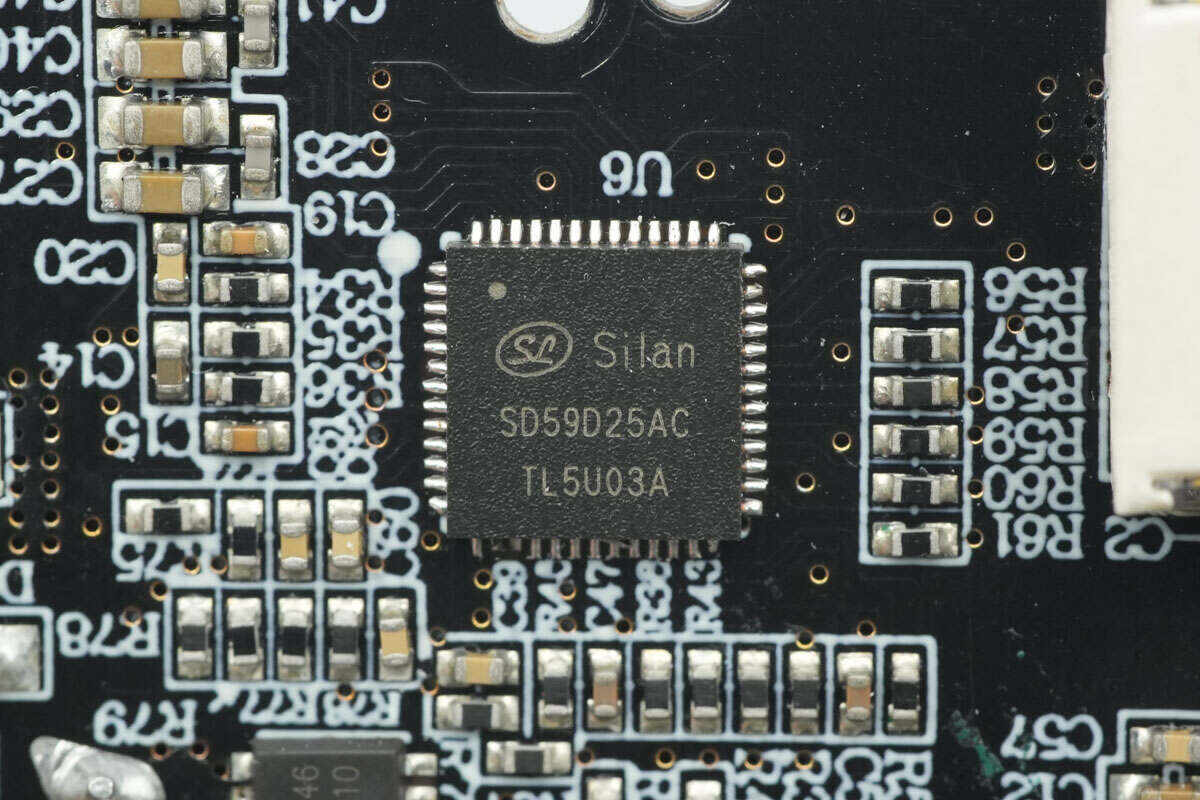
The power bank SoC is from Silan, model SD59D25AC. This highly integrated protocol and power control chip is designed for multi-functional applications in travel chargers and power banks. It integrates three USB ports (with up to two USB-C ports) and supports fast charging protocols such as PD3.1, PPS, QC4.0+, FCP, SCP, AFC, BC1.2, Apple 2.4A, VOOC, and UFCS.
In power bank mode, the chip includes a built-in 4-channel dead-zone controllable PWM controller to achieve bidirectional, buck/boost power conversion. It supports high-precision constant voltage and constant current regulation for lithium battery charge and discharge management. The chip also features a high-precision ADC for accurate coulomb counting.
In charger mode, it integrates a TL431 and supports optocoupler control mode, allowing for flexible AC-DC power control and constant voltage/constant current output. It also supports LPS (low-power standby) functionality. The chip comes in a QFN-52 package.
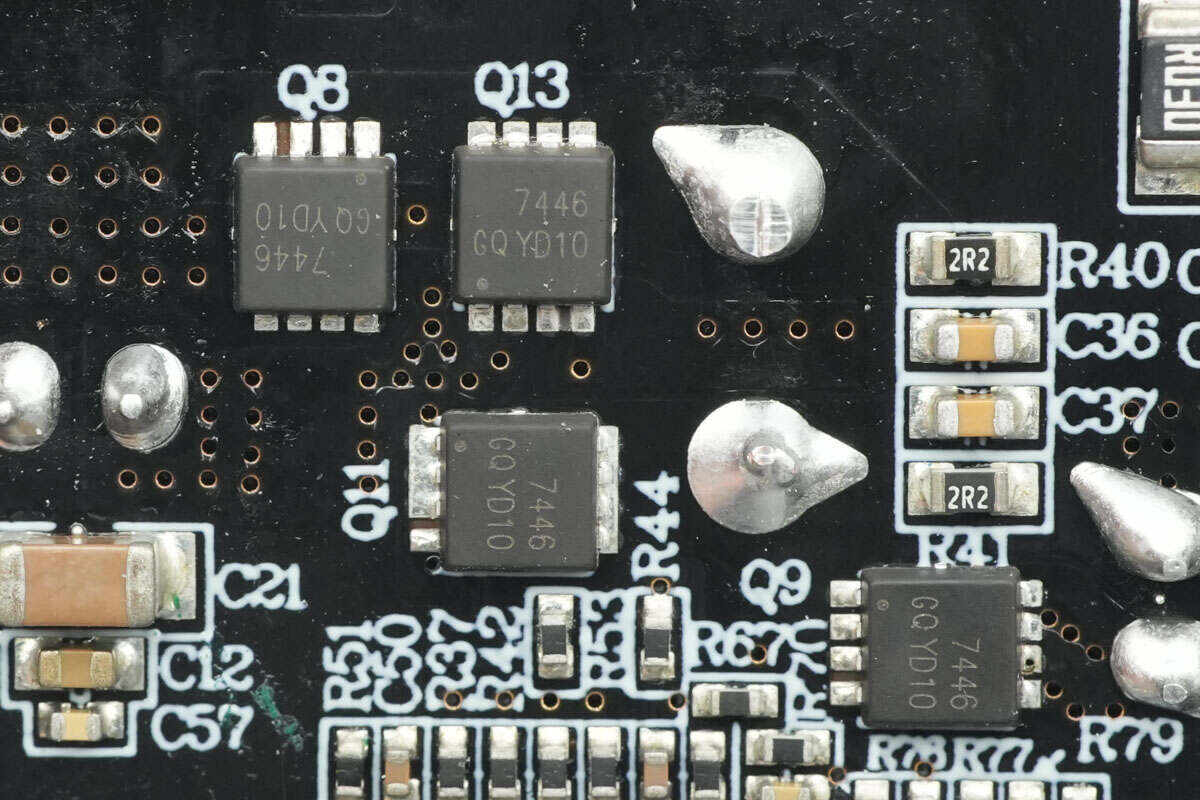
The four synchronous buck-boost MOSFETs are identical, marked with 7446, and come in a DFN 3×3 package.
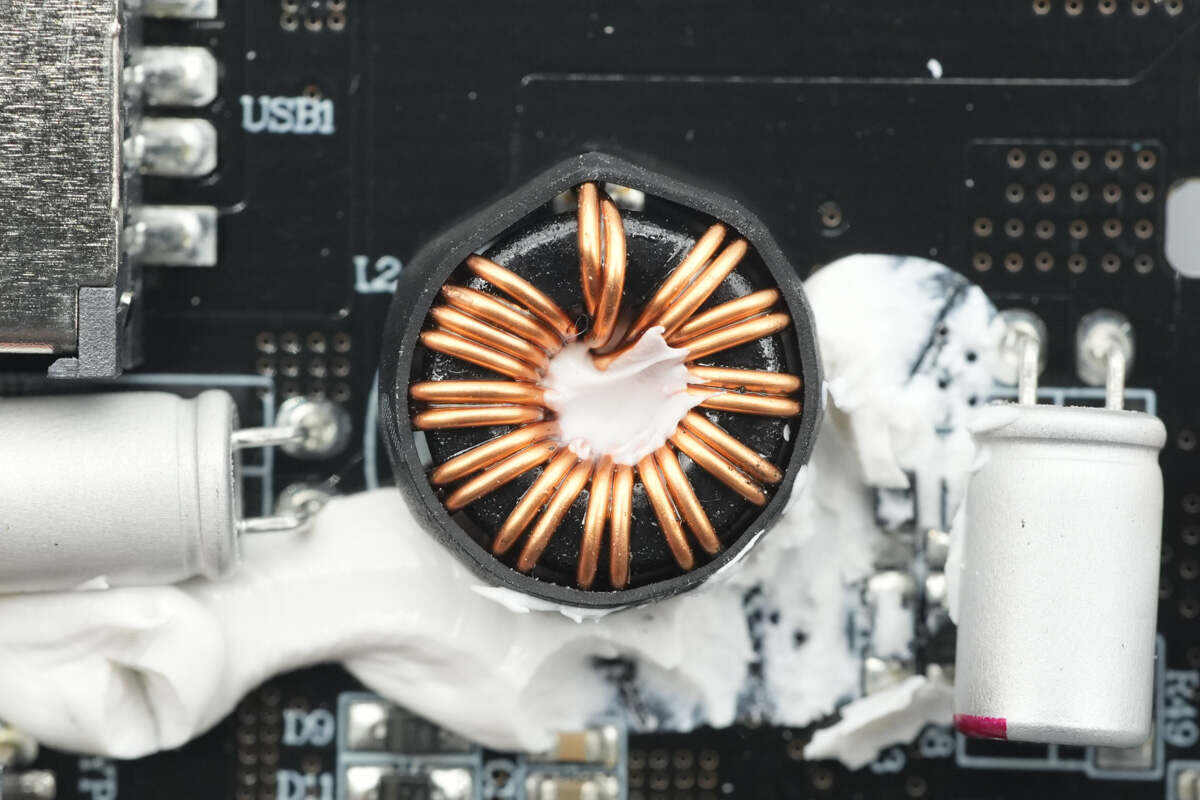
The paired inductor is insulated with a heat-shrink tube and reinforced with potting for protection.
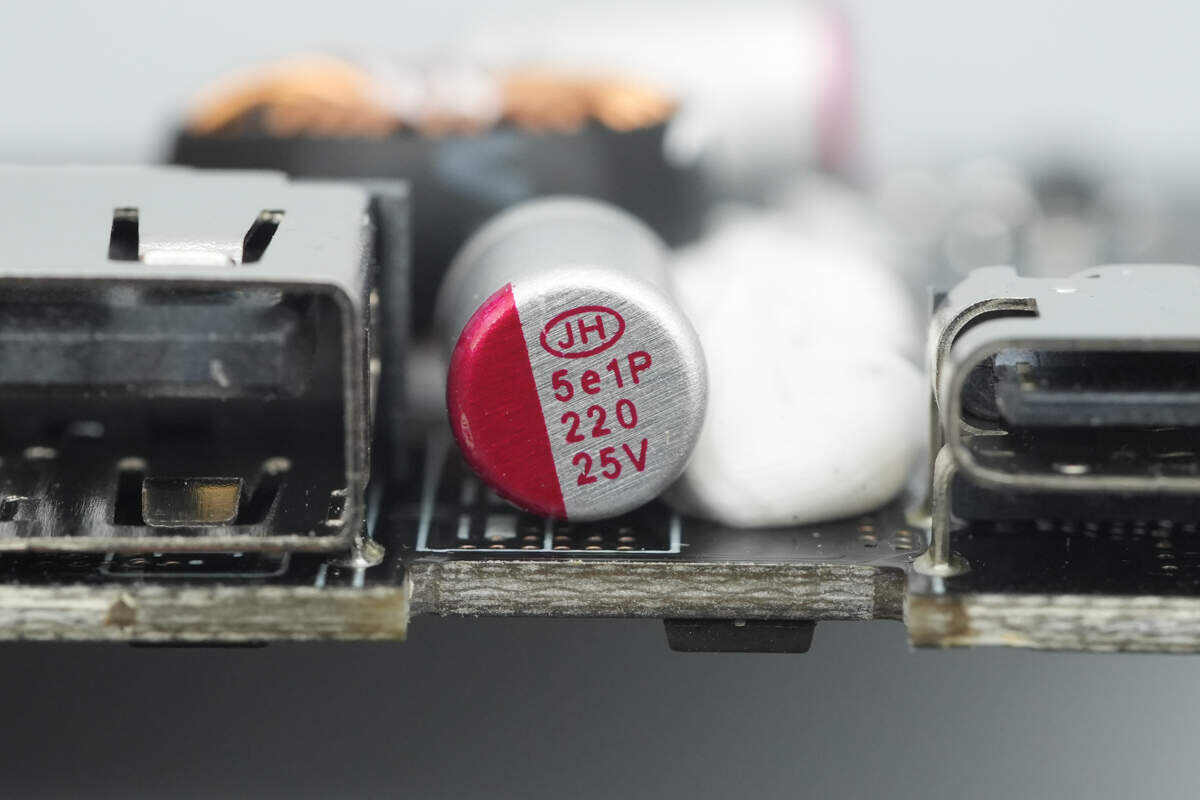
The solid capacitor is from Jianghai, with a specification of 25V, 220μF.

Close-up of the thermistor.
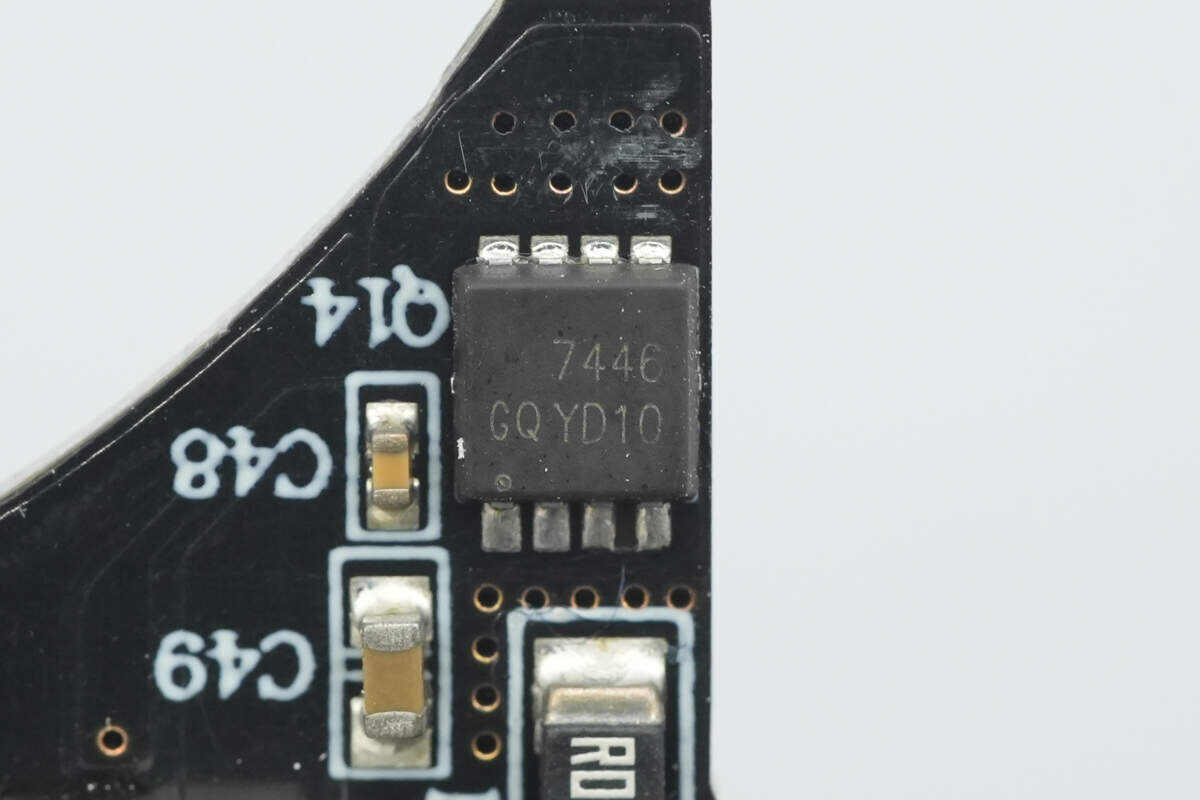
The VBUS MOSFET of the USB-C retractable cable is also marked with 7446.

The VBUS MOSFET of the USB-C2 port is also the same.

The VBUS MOSFET of the USB-A port is also the same.

The soldering points where the wires connect to the retractable cable module are sealed with adhesive for protection.

Disassemble the retractable cable module. The spool is equipped with three brushes to increase current-carrying capacity.
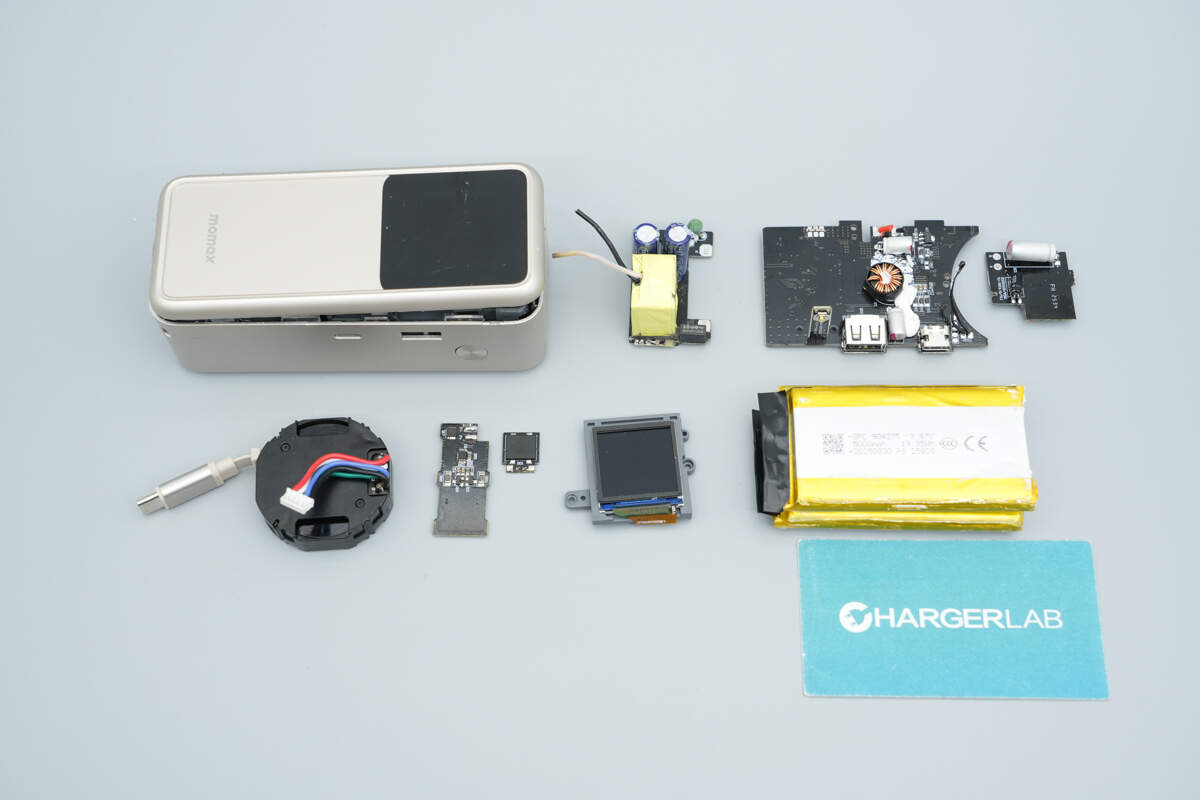
Well, those are all components of the Momax 45W 3-in-1 GaN Power Bank with Retractable Cable.
Summary of ChargerLAB
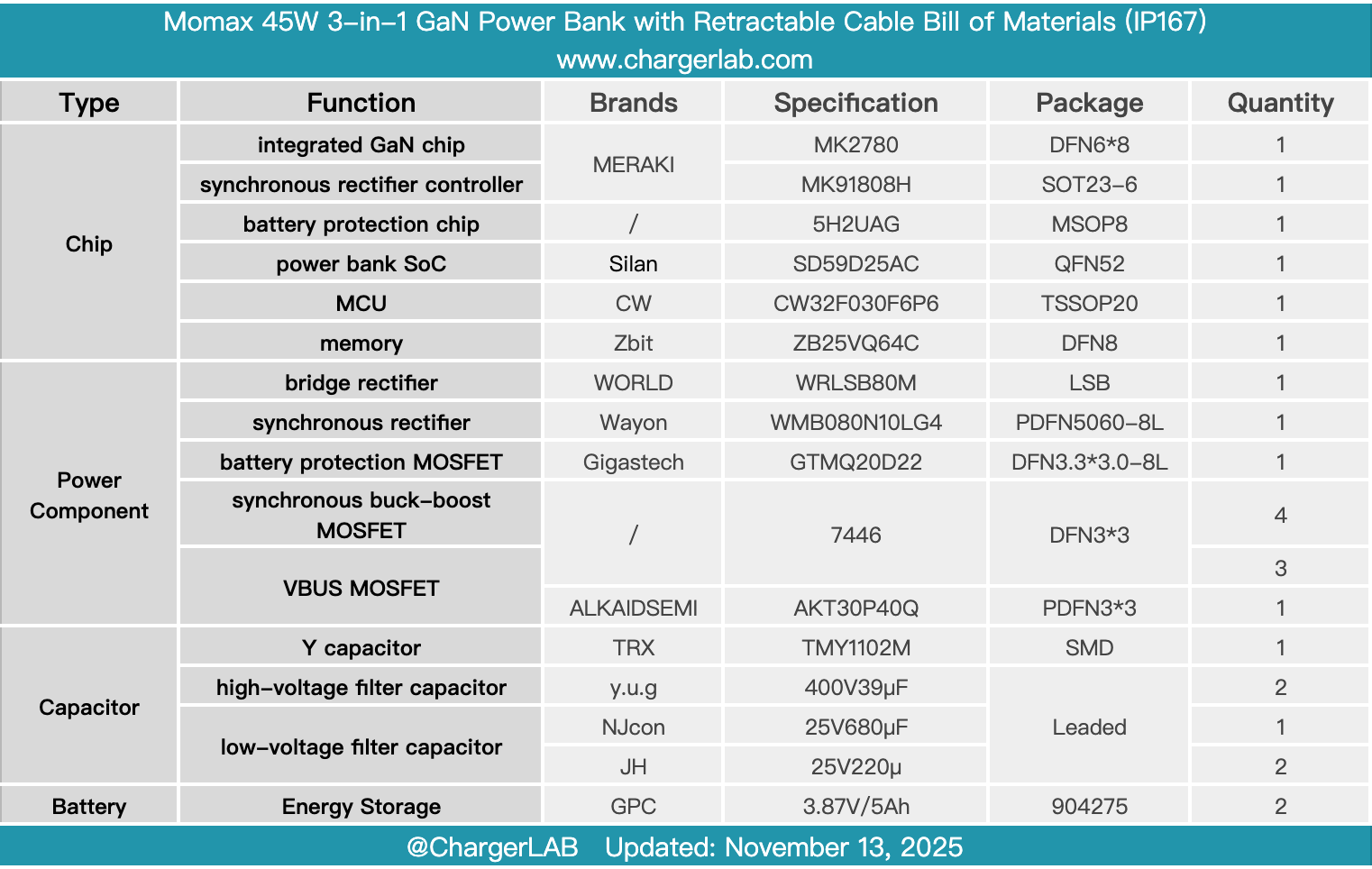
Here is the component list of the Momax 45W 3-in-1 GaN Power Bank with Retractable Cable for your convenience.
It has a 10,000mAh capacity to ensure long-lasting power. Despite the 3-in-1 design, it remains compact in size. The built-in 70cm USB-C retractable cable offers convenience. In both power bank and charger modes, it supports a maximum output of 30W and 45W, respectively. Both modes support protocols such as PD3.2, QC3.0, FCP, SCP, AFC, and PPS.
After taking it apart, we found that it is based on the Meraki MK2780+MK91808H highly integrated GaN power solution. It uses the Silan SD59D25AC SoC. Each module is fully isolated with plastic frames to ensure safety. The stability is further ensured by the use of white adhesive filling and screws for securing, demonstrating reliable craftsmanship.
Related Articles:
1. Teardown of Maxcellent Multi-Function Portable Jump Starter
2. Teardown of CUKTECH 10 Super Magnetic Power Card (WPB100P)
3. Teardown of UGREEN Nexode 160W 5-Port GaN Charger (X774)


